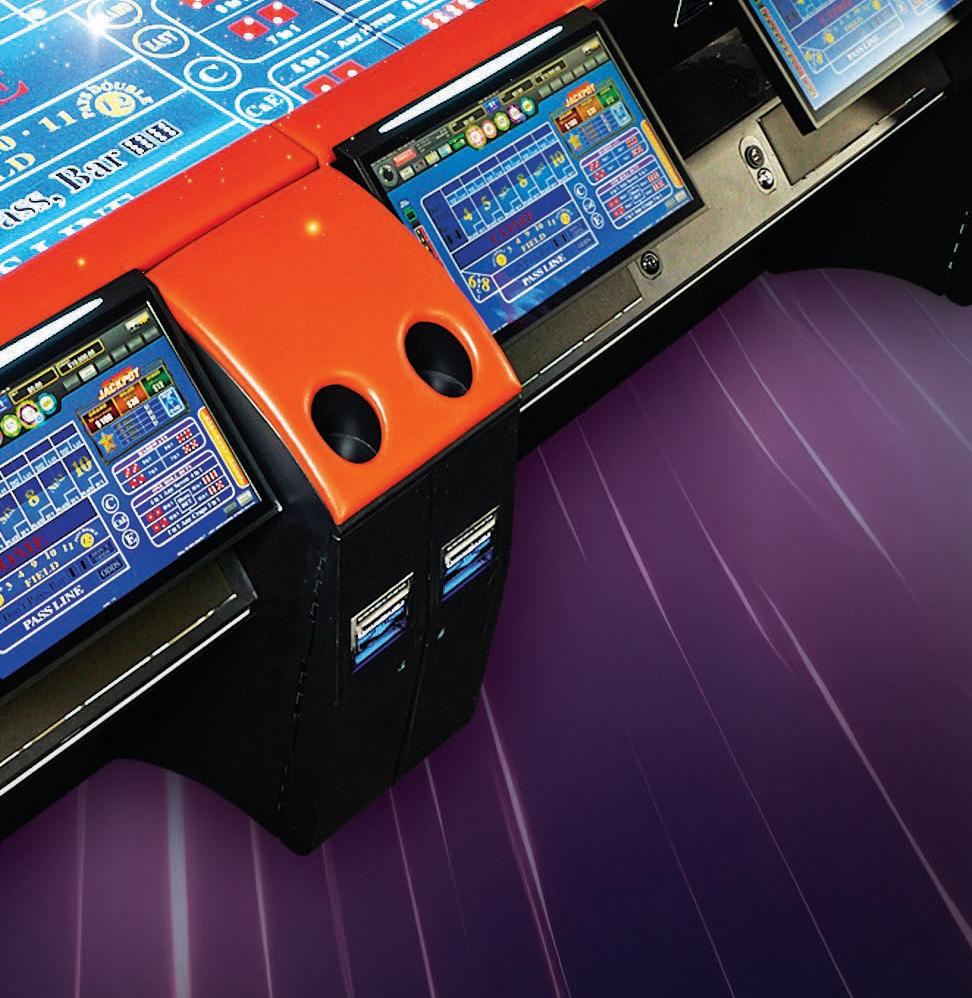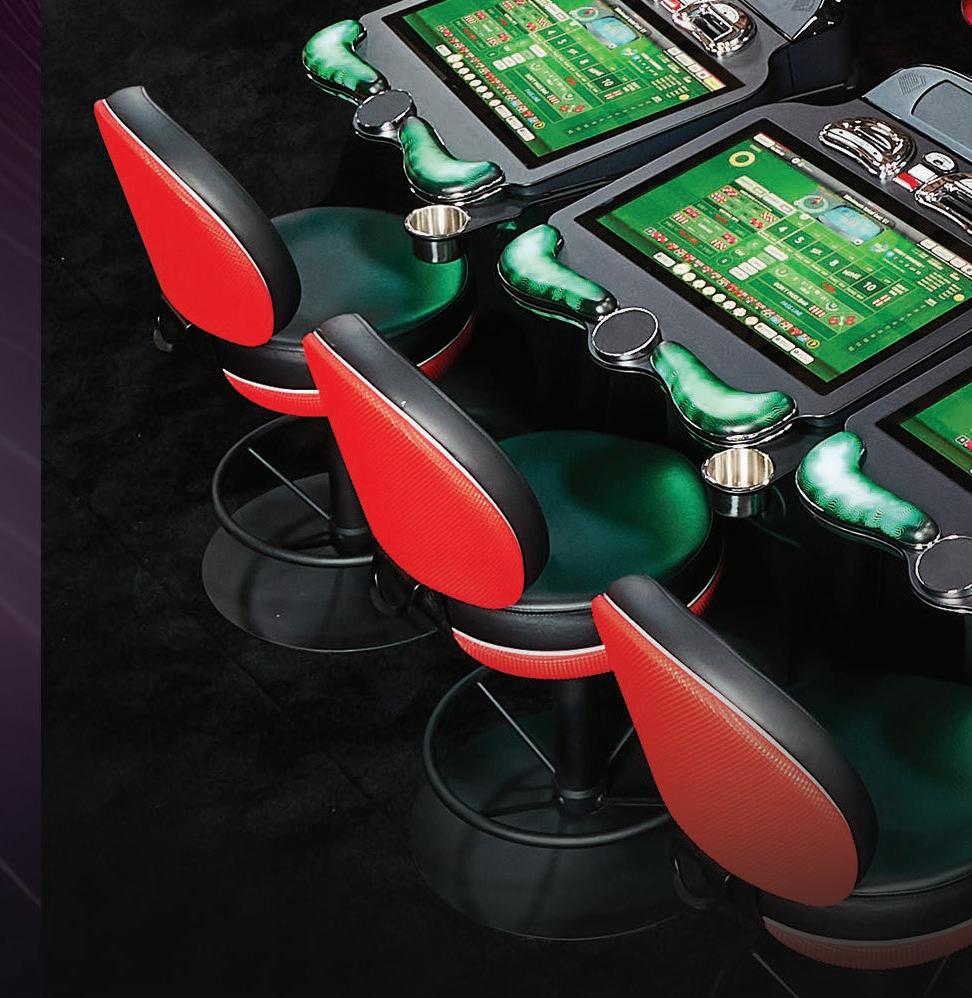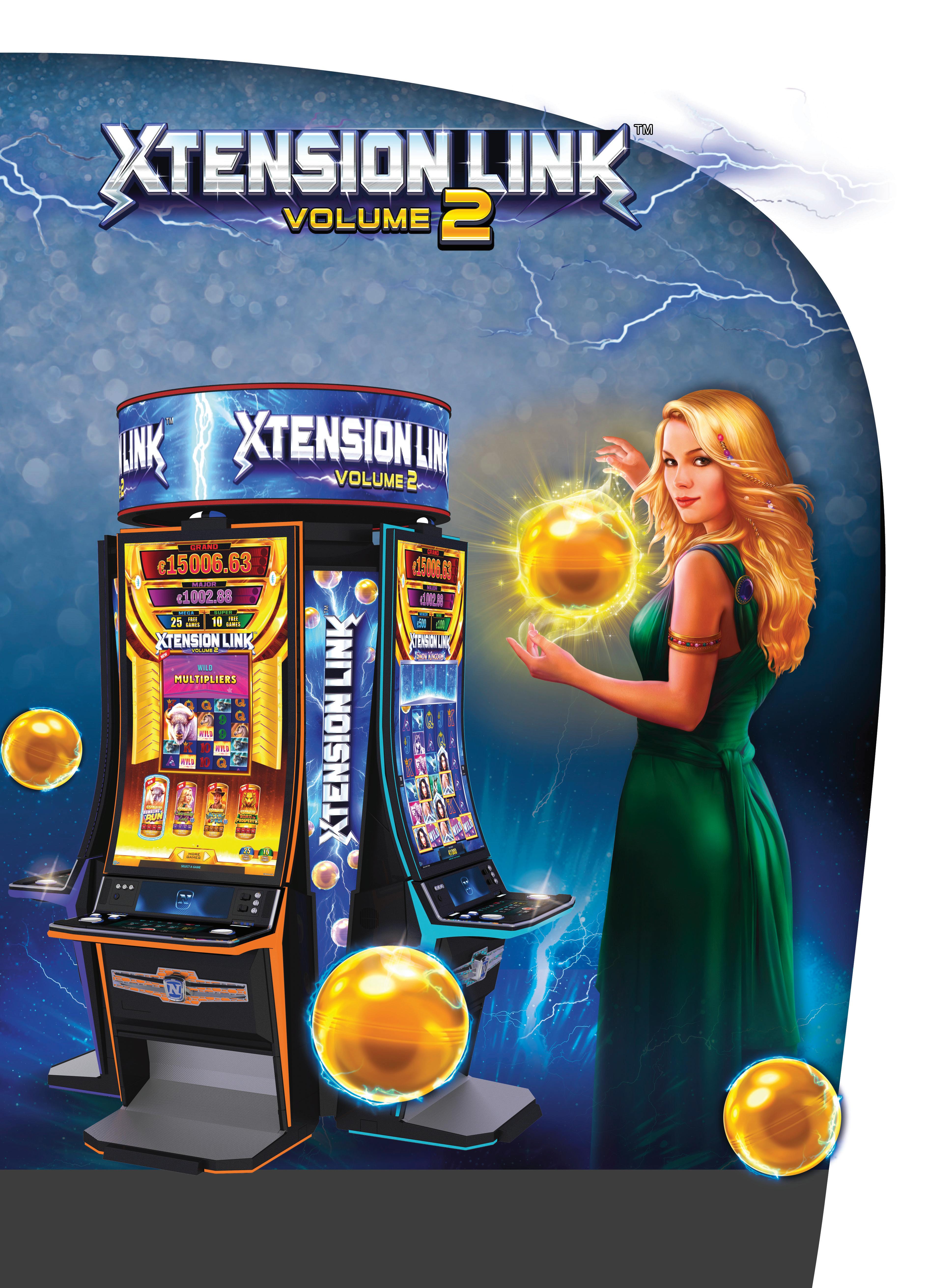









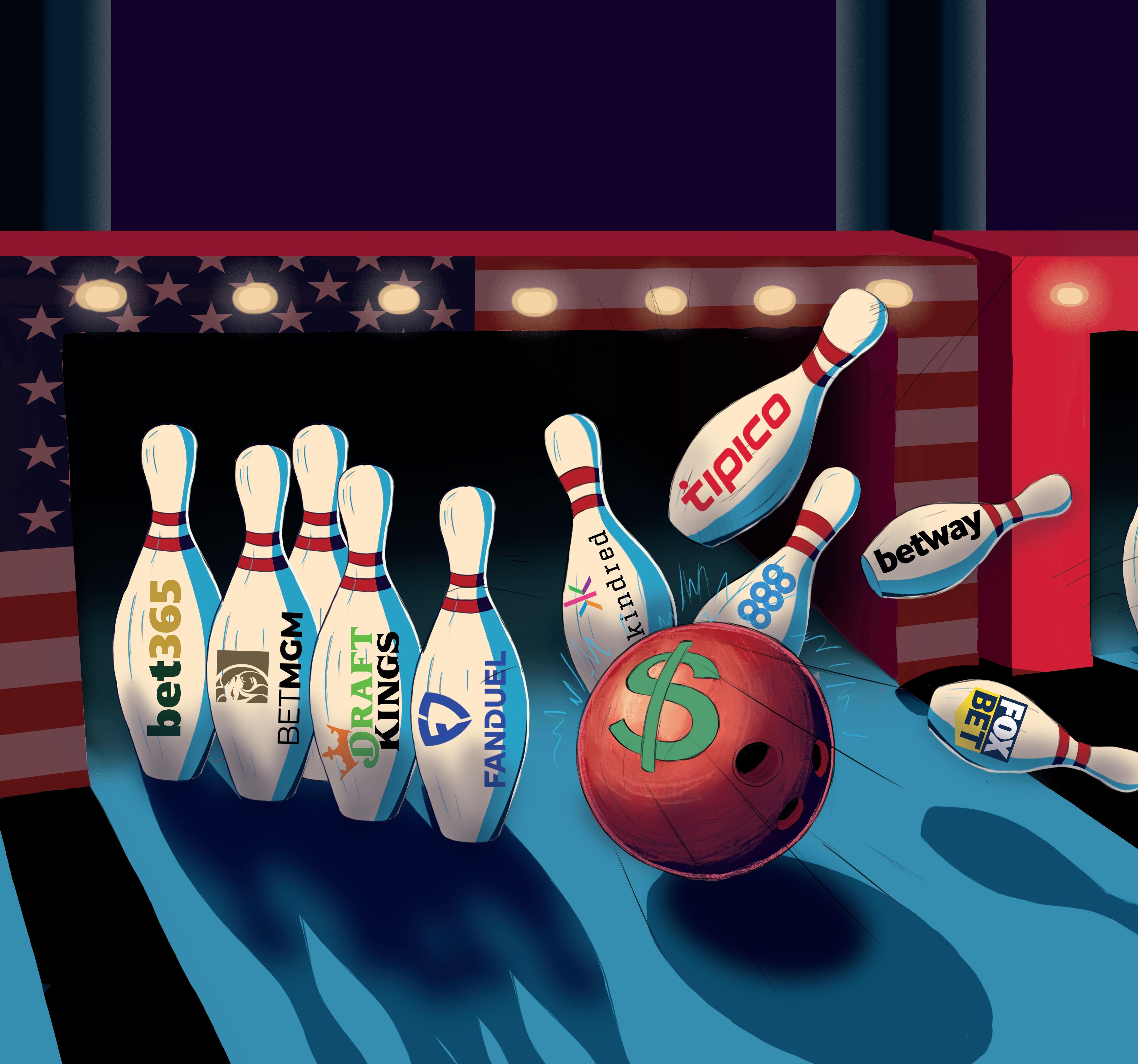

















Gambling Insider assesses the state of US online gaming. As some decide to leave the space, others are in pole position to capitalise




LEADERSHIP Q&A s : The CEOs of BoyleSports & Svenska Spel join us
MARKET FOCUSES: ROUNDTABLE:
What goes into a winning slot theme – and its design?

Latin America, Alberta, Australia & South Africa








































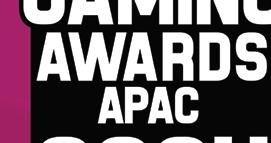












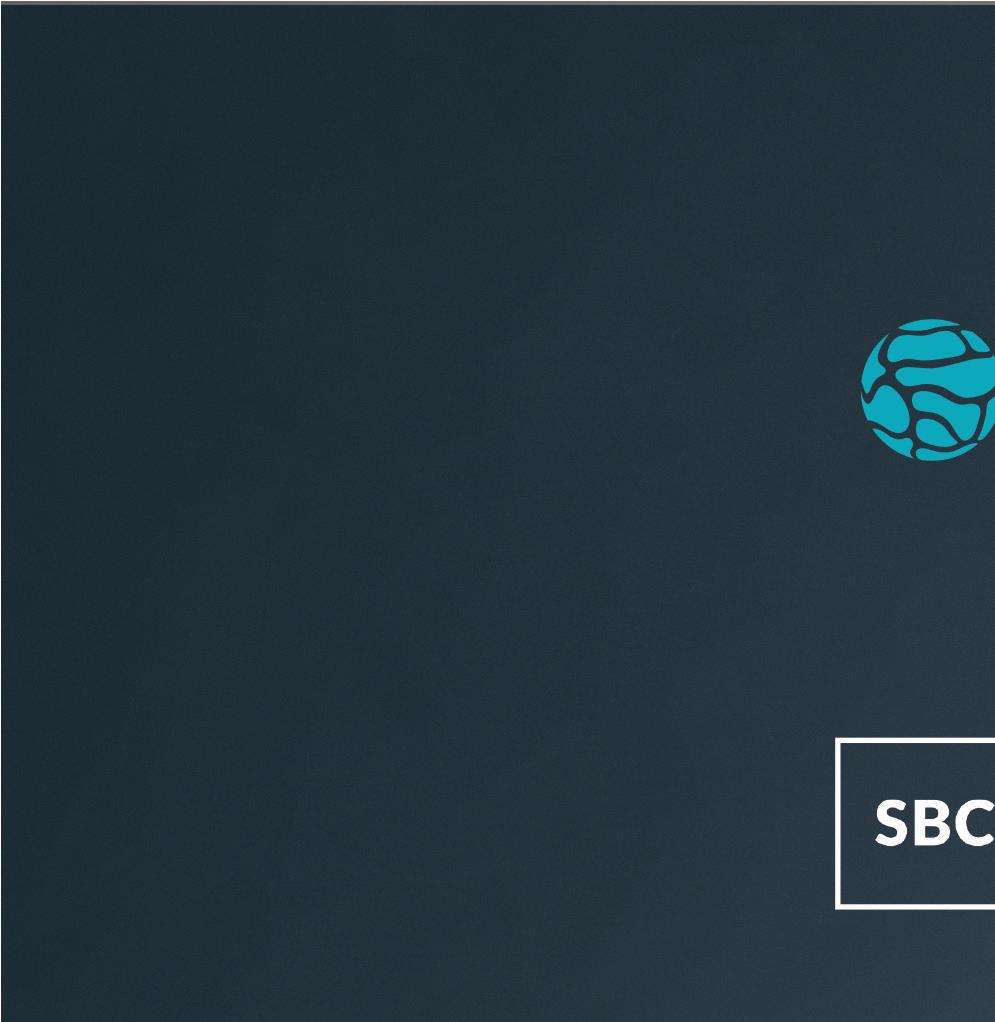


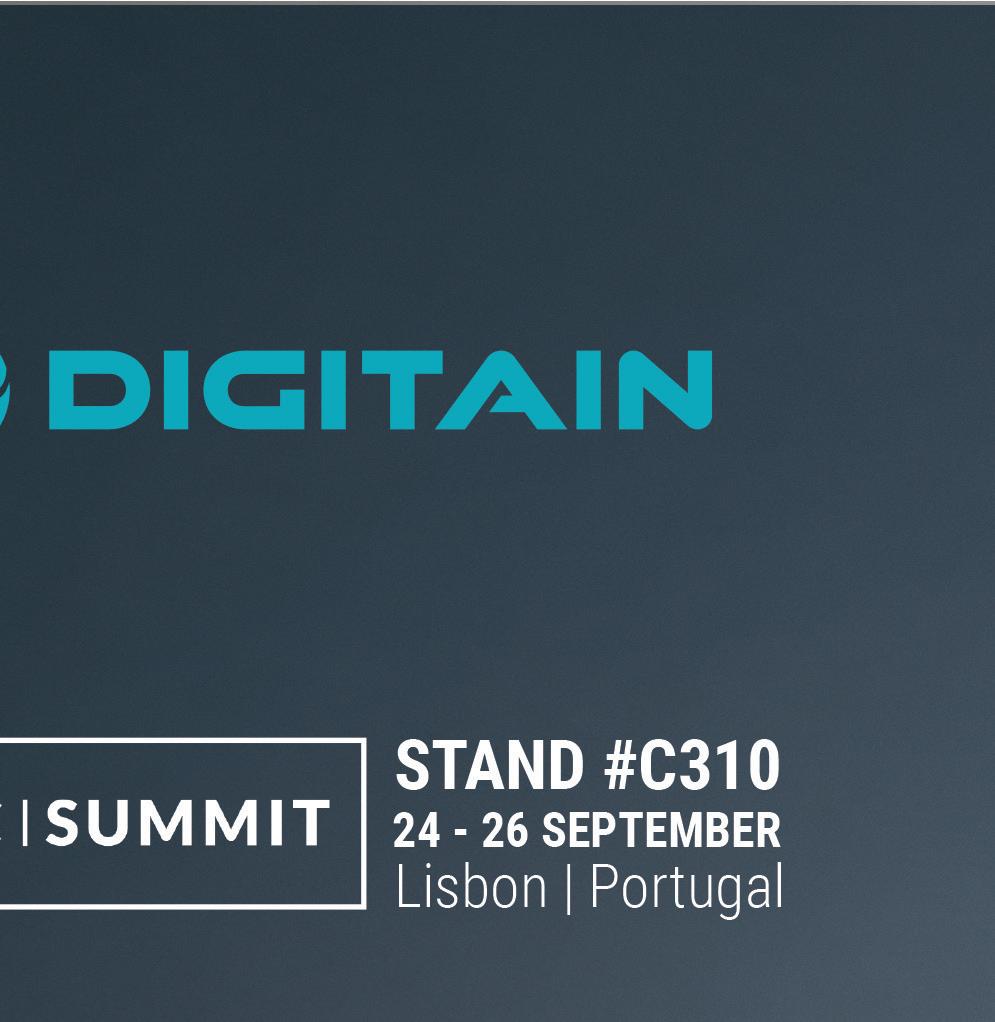








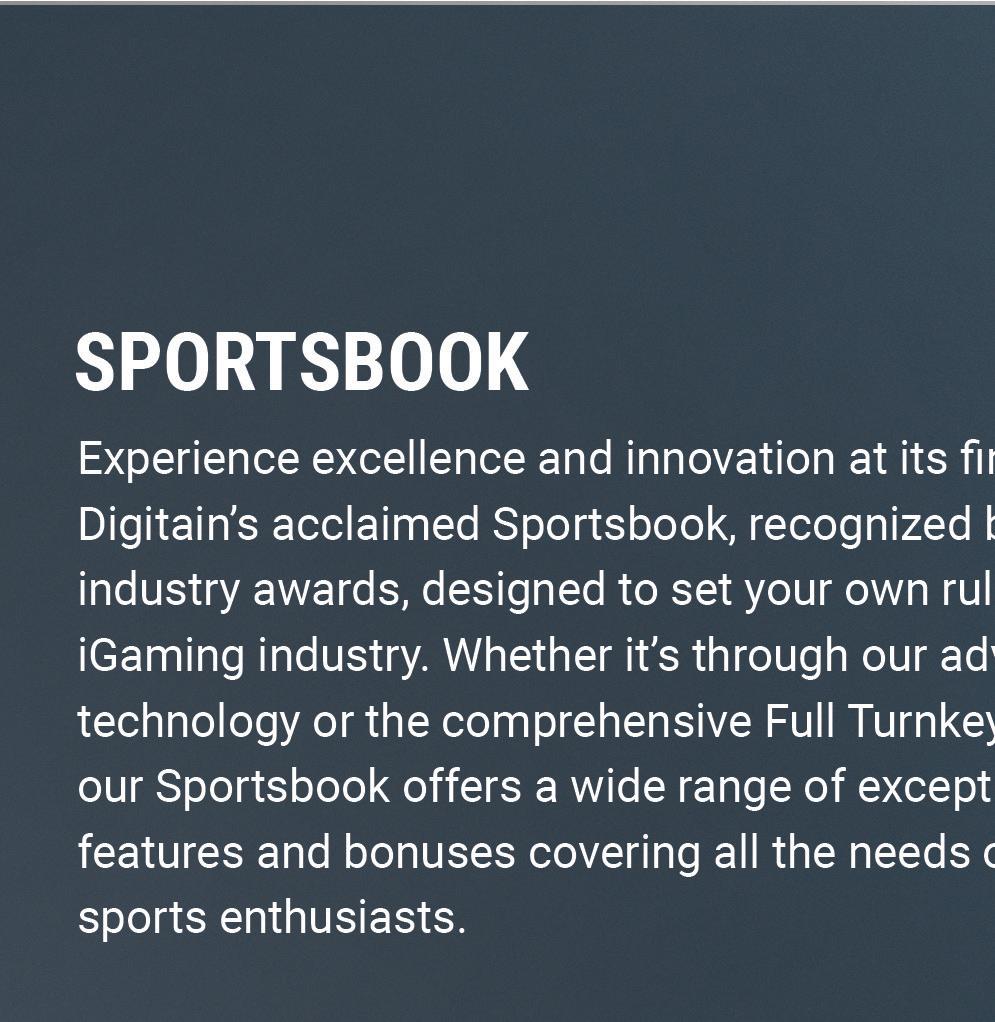





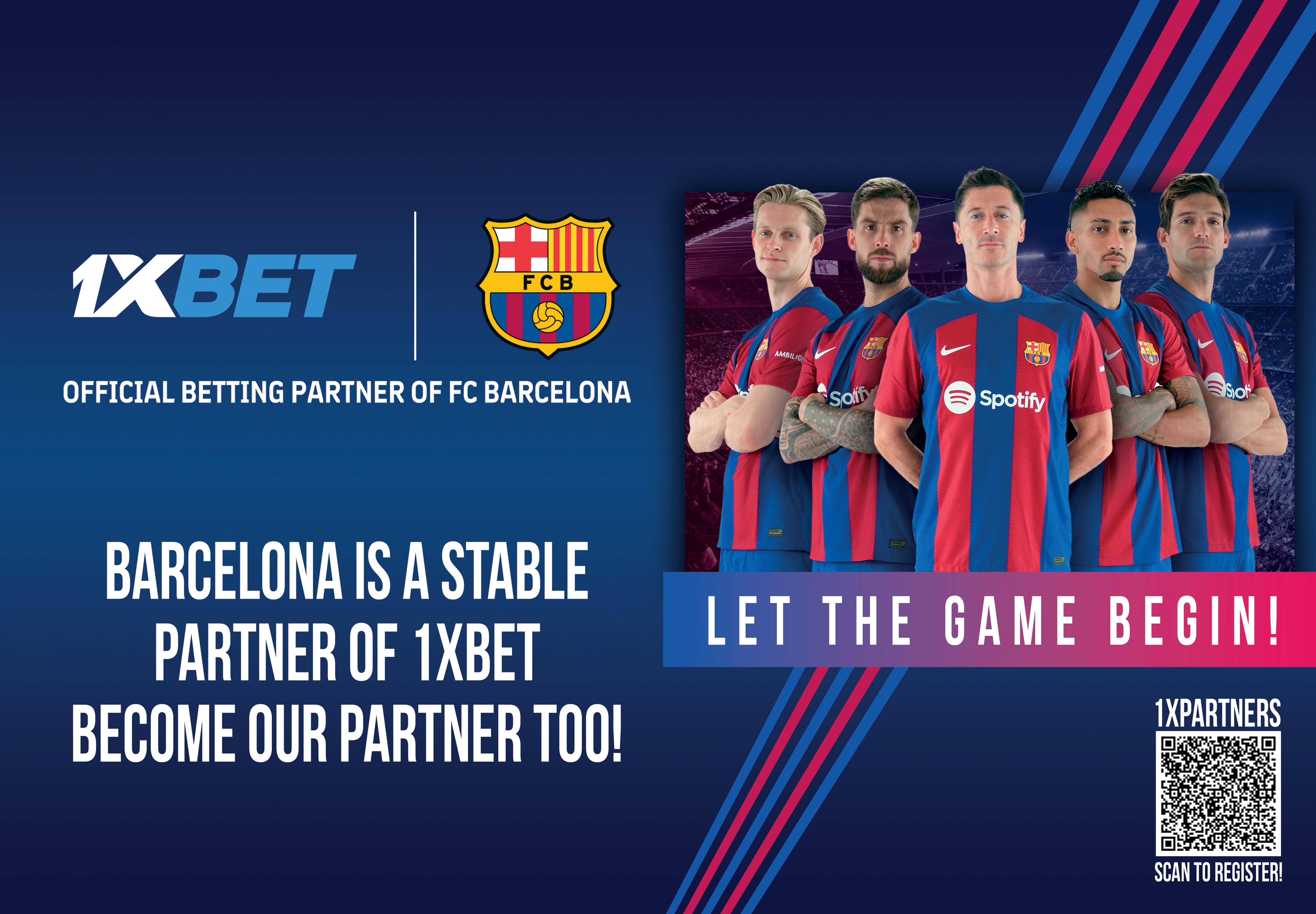


MJulian Perry,COO, Editor-in-Chief

























ore than six years after the overturning of PASPA, it remains fascinating to reflect on legal sports betting’s progress within the US.
While online casino is only regulated in seven states (when this changes, we could see a real surge of new players) sports betting has 38+ legal markets in some shape or form in the US – and is seeing multiple states thrive on the mobile side.
Now, as we explore in this issue’s cover feature, FanDuel and DraftKings rule the roost. And, objectively speaking, if just two companies hold c. 67% market share, anyone will tell you that is not the healthiest set of circumstances. There is, of course, a list of challengers: MGM and Caesars; bet365 is always in the running; Fanatics and ESPN Bet follow, while the likes of Betfred USA and Rush Street Interactive are currently fighting for a smaller piece of the pie.
But a running theme, of late, has been the departure of high-profile operators: Evoke (formerly 888), Kindred Group, Super Group (from sports betting; it is remaining in a couple of iGaming markets), Fox Bet, MaximBet, Fubo and more. Even WynnBet, considering Wynn Resorts’ prowess and prestige in land-based, is scaling back its mobile sports betting operations.
That just leaves more of the market for FanDuel and DraftKings to eat up… Is there any hope for the rest of the pack?
Of course there is! In recent conversations I’ve had with a number of industry CEOs, they’ve emphasised a simple message: you can succeed in the US if you do things right. It’s unfortunate to say but several of the operators in the list above simply did not enter the US with the right strategy. It’s something Betfred USA CEO Kresimir Spajic, consultant Stephen Crystal, lawyers Jeff Ifrah and Marc Balestra emphasise in our cover feature: that big companies with massive resources entered a hypothetical singular ‘US market’ with expectations of X investment returning Y profit.
With high acquisition costs and a different set of consumer preferences to Europe, we are seeing a very different reality. But there is a market there waiting to be attacked with the correct strategy. In New Jersey and Pennsylvania, recent revenue figures have shown a small decline in land-based gaming but huge yearly growth in iGaming and online sports betting.
These states are two of the most mature in the US in terms of mobile gaming and show that there is a growing sea of players looking to wager online. Do we really believe these customers would say no to a wider choice of operators to bet with?
Yes, the US is an expensive region. But is it an impossible one…?
Before PASPA, it was indeed a legal impossibility. Now, however, the first wave of failed imports to online US sports betting can only serve as a lesson. Don’t just recruit based on reputation, don’t be wasteful with your advertising, listen to your customer and, overall, bet smart. Several brands are still standing strong; there is no reason they can’t have company.
Elsewhere this issue, we speak with high-profile operator CEOs – Vlad Kaltenieks at BoyleSports and Anna Johnson at Svenska Spel. We also have a host of high-calibre contributions, ranging from a legal update on deposit limits in Germany from Dr Joerg Hofmann, to an interview on free-play research with Dr Anthony Lucas from the University of Nevada, Las Vegas.
Our coverage in this issue extends to gaming around the globe, with market focuses on Alberta, Australia and South Africa, while our roundtable talks all things slot themes – followed by one of our busiest Insiders sections ever. Happy reading!
TP, Editor
COO, EDITOR IN CHIEF
Julian Perry
EDITOR
Tim Poole
Tim.Poole@gamblinginsider.com
STAFF WRITERS
Beth Turner, Will Underwood, Ciaran McLoughlin, Kirk Geller
CONTENT WRITER Megan Elswyth
LEAD DESIGNER Olesya Adamska
DESIGNERS Claudia Astorino, Callum Flett, Gabriela Baleva
JUNIOR DESIGNER
Medina Mammadkhanova
ILLUSTRATOR Maria Yanchovichina
MARKETING & EVENTS MANAGER Mariya Savova
FINANCE AND ADMINISTRATION ASSISTANT
Dhruvika Patel
IT MANAGER Tom Powling
COMMERCIAL DIRECTOR
Deepak Malkani
Deepak.Malkani@gamblinginsider.com
Tel: +44 (0)20 7729 6279
SENIOR ACCOUNT MANAGER
Michael Juqula
Michael.Juqula@gamblinginsider.com
Tel: +44 (0)20 3487 0498
SENIOR BUSINESS DEVELOPMENT MANAGER - U.S. Aaron Harvey
Aaron.Harvey@playerspublishing.com
Tel: +1 702 425 7818
U.S. BUSINESS DEVELOPMENT MANAGER
Erica Clark
Erica Clark@playerspublishing.com
Tel: +1 702 355 0473
ACCOUNT MANAGERS
William Aderele
William.Aderele@gamblinginsider.com
Tel: +44 (0)20 7739 2062
Irina Litvinova
Irina.Litvinova@gamblinginsider.com
Tel: +44 (0)207 613 5863
Serena Kwong
Serena.Kwong@gamblinginsider.com
Tel: +44 (0)203 435 5628
Max NGarry
Max.Ngarry@gamblinginsider.com
Tel: +44 (0)207 729 0643
AWARDS SPONSORSHIP MANAGER
Michelle Pugh
Michelle.Pugh@globalgamingawards.com
Tel: +44 (0)207 360 7590
CREDIT MANAGER Rachel Voit
WITH THANKS TO:
KresimirSpajic,Je Ifrah,StephenCrystal,MarkBalestra, VladKaltenieks,AnnaJohnson,DrJoergHo man,PaulSculpher, MalcolmWilkinson,DonBourgeois,JamieNettleton,SallyGainsbury, Garron Whitesman, Gil So er , Anthony Lucas,Chriso erMelldén, ThomasSchmalzer,DavidFall,ChristinaMuratkina,RenatoAlmeida, AraksiSargsyan,SimonWestbury,JohnConnelly,BrandonWalker, ArcangeloLonoce,Peter Korpusenko, Bogdan Holovnov, LT Game, Novomatic, Apex.



2043-9466

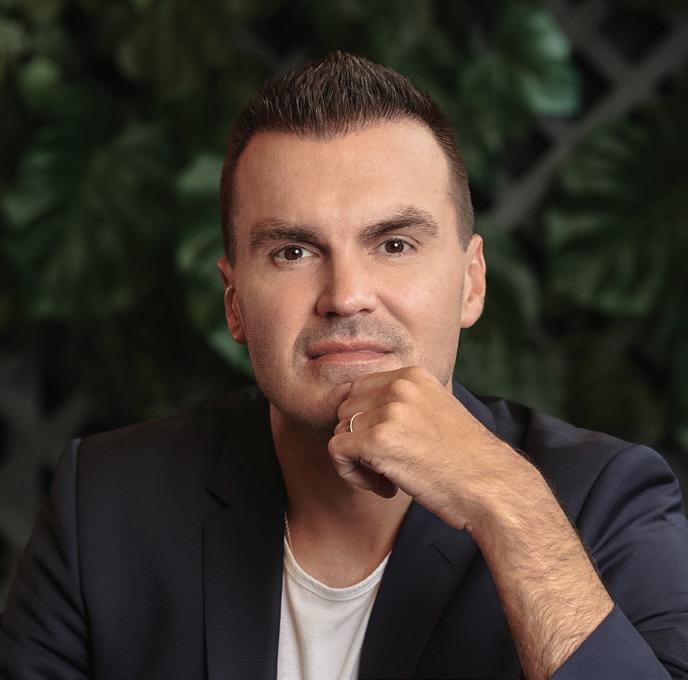


28 Standing strong
With insights from Kresimir Spajic, Stephen Crystal, Mark Balestra and Jeff Ifrah, Gambling Insider assesses the state of US online gaming
36 Healthy growth
BoyleSports CEO, Vlad Kaltenieks, speaks about his time in the role so far, global expansion, branding and more…
40 Leading with humility
Anna Johnson, Svenska Spel Group Chief Executive, speaks about succeeding Patrik Hofbauer, land-based casino challenges and reporting “healthy” gaming revenue in a new way
44 Push it to the limit
Dr Joerg Hofmann discusses gambling limits – be they stake, deposit or loss – and the balance that must be struck by regulators to ensure their effectiveness
46 A radical departure
Paul Sculpher catches up with We the Bookie Founder Malcolm Wilkinson, discussing the brand’s rebate system and bringing new ideas to the market
48 Down regulation road...
With Alberta set to follow in Ontario’s regulatory footsteps, Don Bourgeois explains exactly what goes into the process of provincial development
54 Cause & effect
Sally Gainsbury and Jamie Nettleton speak to Gambling Insider about the regulatory state of play Down Under

70
58 The best of both worlds
Garron Whitesman explains why the South African market falls in both the emerging & established categories – and what that means moving forward
62 Large-scale localisation
Gil Soffer unpicks the challenges, nuances and non-negotiables of successful entry into Latin America’s gaming markets
66 Is free play free falling?
Professor Anthony Lucas explains his latest research into the declining efficiency of free play, and how casinos can better spend their marketing bucks
70 Roundtable: Slots
Industry experts answer Gambling Insider’s burning questions on all things related to slot themes








81
78 Thomas Schmalzer Novomatic
79 Araksi Sargsyan DS Virtual Gaming
80 Simon Westbury SportGenerate
81 John Connelly Interblock
82 Brandon Walker Amelco
84 Arcangelo Lonoce Habanero
85 Peter Korpusenko Betcore

















96










90 What's new?
Gambling Insider delves into the latest products on offer
96 Bogdan Holovnov Data.Bet
How have sports betting and iGaming in North America been developing and how successful have different operators been in different states so far this year? Gambling Insider investigates...
Source: American Gaming Association (AGA)
• Despite the growth of iGaming and sports betting since PASPA was overturned in 2018, land-based casino betting still makes up roughly three quarters of commercial gaming revenue quarter-on-quarter. However, this market has remained relatively stagnant, growing by 3.5% from Q4 2022 to Q1 2024 from $11.92bn to $12.34bn.
• Conversely, sports betting in the same period has grown in revenue by 31.1%, from $2.54bn to $3.33bn. Growth in iGaming has been even more significant, up 42.4% from $1.39bn to $1.98bn. While it is unlikely these markets will outperform casino gaming in revenue anytime soon, it is likely they will continue to account for a larger part of the commercial gaming revenue pie.
Source: iGaming Ontario
• Since the launch of iGaming in Ontario on 4 April, the market has grown rapidly, hosting 50 operators and 81 sites as of 11 July 2024. The data above covers the time period up to and including 31 March 2024.
• While the number of operators stabilised (and even decreased) during the 2023-24 period, revenue continued to grow, showing an increase in interest from players or improved marketing strategies from operators already providing iGaming options in Ontario.
fiscal year runs from 1April to 30 March



















Massachusetts sports betting taxable revenue by licensee ($m)
Source: Massachusetts Gaming Commission
• Unlike the majority of states, and in direct contrast to the quarterly reports submitted by FanDuel, DraftKings has routinely generated a higher revenue than its primary competitor
in Massachusetts. Both operators outperform all other state sports betting operators by a significant margin.
• The gap between the operators was its largest in February, with DraftKings making $30.8m
to FanDuel’s $14m. However, FanDuel has begun to close the gap, with a difference of just $2.8m in taxable sports betting revenue reported in June 2024. Crucially, Massachusetts is DraftKings’ home state.
Michigan operator sports betting handle ($m)
Source: Michigan Gaming Control Board
• When looking at Michigan’s top gaming operators by monthly sports betting handle, MotorCity Casino consistently comes out on top. Operating a FanDuel Sportsbook on the property, MotorCity Casino saw high handle
at the start of the year that has declined as the year has gone on – a trend notable among sports betting operators in multiple states.
• Conversely, Bay Mills Resort and Casino, operated by the Bay Mills Indian Community, plays host to a DraftKings sportsbook on its property. As seen in Massachusetts, summertime seems to be the time when FanDuel and DraftKings share the most equal footing, compared to the start of the year when the dominant state operator becomes more visible.
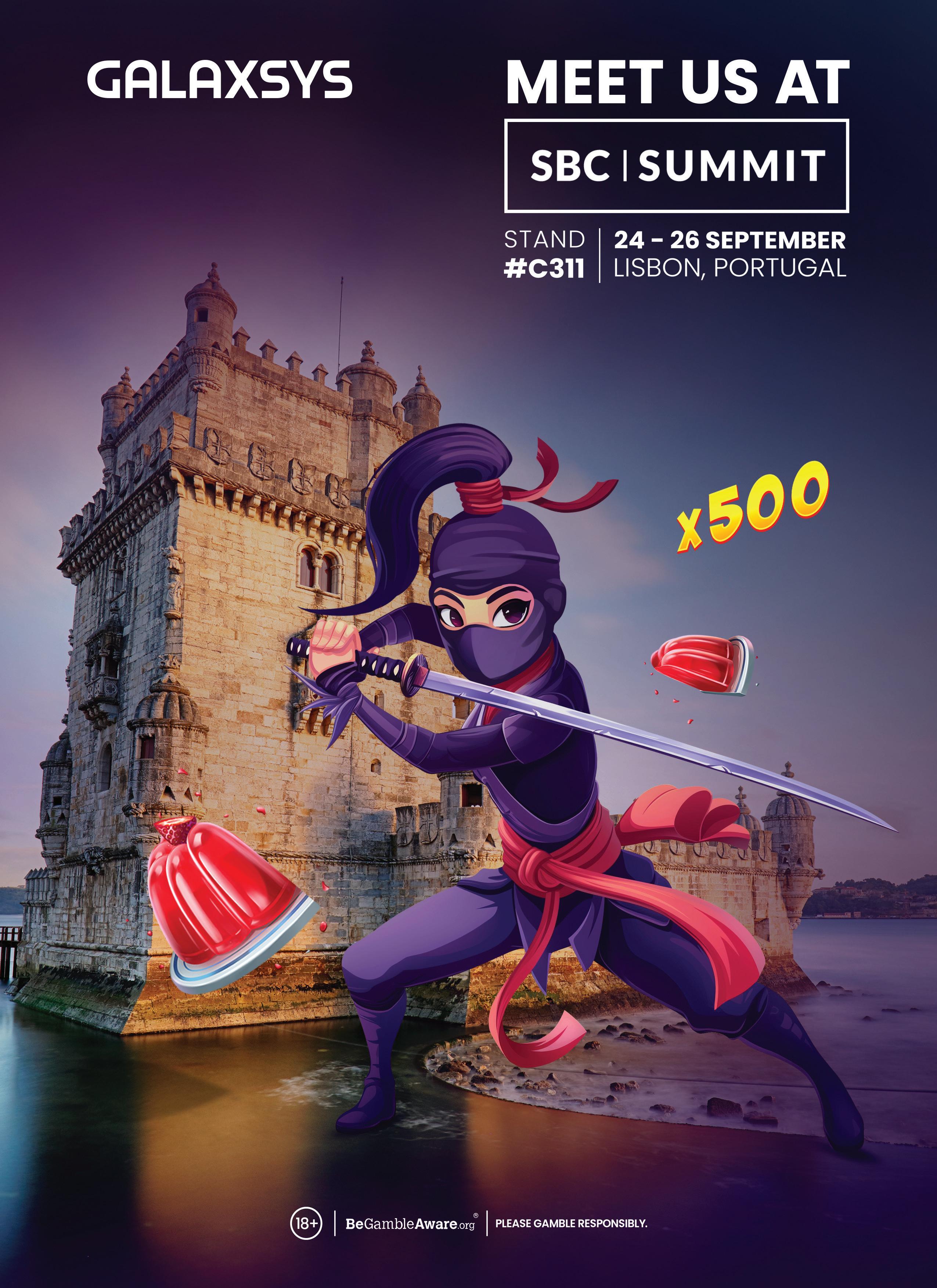
Source: Commission websites
*Total gross sports betting receipts
**Net proceeds
***AGR
• Pennsylvania and Indiana show similar sports betting trends to Massachusetts and Michigan, in that they tend to reach highs early in the
year only to decline as they enter the summer. Louisiana bucks this trend, however, having its most lucrative sports betting month in the year so far in April.
• Massachusetts and Pennsylvania experienced the most significant drops in revenue from January to June, while Louisiana remained
relatively consistent across all six months.
• Indiana and Michigan are shown to routinely swap leads month-on-month, with Indiana outperforming Michigan in January and February and Michigan outperforming Indiana in the remaining months until June. Interestingly, in June Michigan outperformed Indiana by just $0.4m.
Iowa online sports net receipts by operator ($m)
Source: Iowa Racing & Gaming Commission
• Excluding Iowa’s two largest operators, Crown IA and Betfair, and focusing on the state’s mid-tosmall sized operators, BetMGM and American Wagering routinely perform better than their peers, outperforming operators including Penn Sports and RSI.
• Tipico saw its monthly revenue decline sizeably between March and June 2024, going from net receipts of $103,681 to $30,971, down 70.1%. In July, Tipico was acquired by BetMGM subsidiary LeoVegas, pulling the brand from the US market.
• Meanwhile, Betfred has kept its net receipts fairly
consistent month-on-month, declining by 8.1% between March and June. However, operators have generated net receipts nowhere close to those made by native operators, which may be indicative of why some non-US-owned brands are choosing to leave the US market (see our cover feature for more on this topic!).







Gambling Insider tracks land-based operator and supplier prices. Stock prices are taken across a six-month period (March 2024 to August 2024) – and from the close of the first available date of the month
MGM RESORTS INTERNATIONAL
• Six-month high - April (47.78 USD)
• Six-month low - August (37.29 USD)
• Market capitalisation - US$13.48bn (as of 1 August 2024)
CHURCHILL DOWNS INCORPORATED
TABCORP HOLDINGS
• Six-month high - August (139.96 USD)
• Six-month low - March (119.62 USD)
• Market capitalisation - US$10.54bn (as of 1 August 2024)
• Six-month high - April (0.75 AUD)
tabcorp
• Six-month low - June (0.62 AUD)
• Market capitalisation - US$0.96bn (as of 1 August 2024)
WYNN RESORTS LIMITED
• Six-month high - April (106.56 USD)
• Six-month low - August (78.71 USD)
• Market capitalisation - US$9.28bn (as of 1 August 2024)






• Six-month high - August (106.23 USD)
• Six-month low - May (90.00 USD)
• Market capitalisation - US$9.69bn (as of 1 August 2024)
• Six-month high - August (12.93 USD)
• Six-month low - June (7.37 USD)
• Market capitalisation - US$1.10bn (as of 1 August 2024)
• Six-month high - August (54.32 AUD)
• Six-month low - May (39.34 AUD)
• Market capitalisation - US$22.48bn (as of 1 August 2024)
Six-month high - April (1,960 JPY)
Six-month low - August (1,467 JPY)
Market capitalisation - US$0.76bn (as of 1 August 2024)





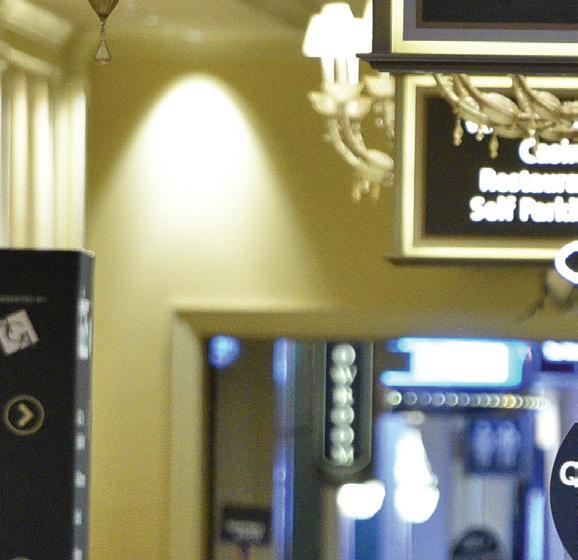
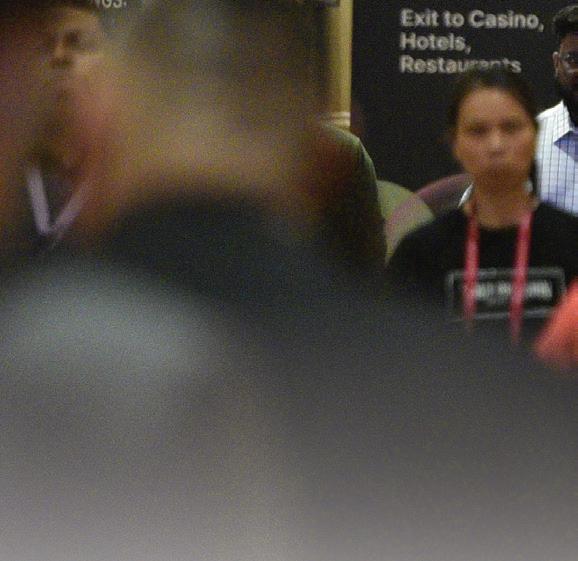



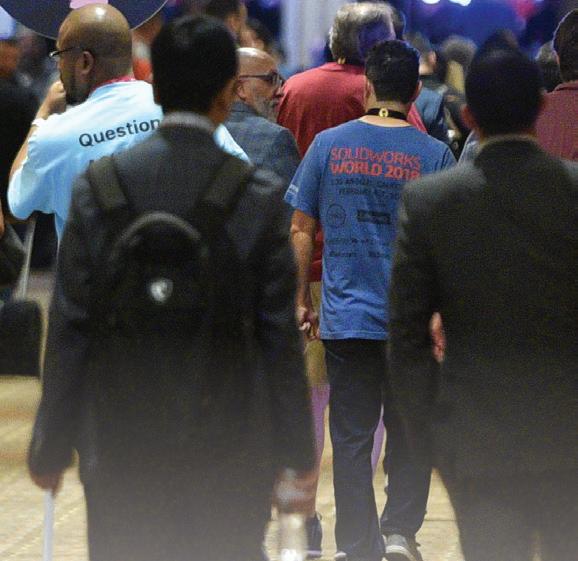



The Global Gaming Expo returns to the Venetian Las Vegas for its 24th year and Gambling Insider previews what to expect at the US’ biggest gaming trade show
It’s that time of year again. The gaming world is gearing up for its annual trip to Las Vegas for the 24th iteration of the esteemed Global Gaming Expo (G2E). The G2E Summit is a chance for organisations from across the industry to bring their best and brightest in products and people, to showcase all they have to offer.
Hosted by Reed Exhibitions (RX) and the American Gaming Association (AGA) at the Venetian in Las Vegas, the exhibition will take place in the Venetian Expo Hall. The event kicks off on Monday 7 October and will reach its conclusion on the afternoon of Thursday 10 October.
Last year, Las Vegas saw an influx of 25,000 gaming professionals and 268 exhibitors from 125 countries to the Venetian. This year’s G2E will, of course, aim to build on that, as
well as the years that came before. Therefore, guests and exhibitors alike, can expect bigger and better from G2E 2024.
With over 300 scheduled keynote speakers and 95+ sessions and presentations, G2E 2024 has partnered with the likes of the Indian Gaming Association, Global Gaming Women and the International Association of Gaming Advisors as part of the design process of this year’s programme.
The goal of G2E is to be a hub of gaming sessions, presentations and expositions. Focusing on the latter, the Exposition Hall will, this year, become the temporary home of over 350 exhibitors looking to showcase their latest gaming innovations. Further, there will be an iGaming Zone for online gaming suppliers and operators. This space is dedicated to exploring the latest in both
online casino and online sports betting across the Americas. Naturally, in recent years, G2E's focus on iGaming has become greater and greater.
Moreover, a recent addition to the G2E Summit has been ‘The Lab’. Formerly known as ‘The Innovation Lab,’ ‘The Lab’ acts as a centre for both networking and discussion around the topics of iGaming innovation and the future of the industry.
This year’s G2E features a New Exhibitor Zone for first and second-time G2E exhibitors, with a view to offering a dedicated space for visitors to explore exhibitions from companies they may not have seen in previous years.
The AGA initially hosted the first ever Global Gaming Expo in October 2001 at the Las Vegas Convention Center – which would remain the home of the exposition for 10 years
until the location was updated to the Venetian by the AGA in 2010. At the first meeting, keynote speakers including then Chairman and CEO of MGM Studios, Alex Yemenidjian and actress Whoopi Goldberg, who presented to the 10,000 attendees. Since then, G2E has grown to accommodate 25,000 attendees in 2023, making G2E one of the world’s fastestgrowing trade shows by attendance.
G2E 2023 signified the show’s full recovery from Covid-19 and was just 2,000 attendees shy of topping the summit’s record attendance figures of 27,000, recorded shortly before the pandemic at G2E 2019.
Looking ahead, G2E 2024 will aid the discussion of key industry topics via carefully selected panels and presentations constructed by the event’s organisers. Broader topics for G2E 2024 include conversations around advancements in crisis communications for gaming leaders, and the roadmap for online gaming and sports betting expansion. Further, customer journey mapping for casino marketing will also be on the agenda.
Taking a closer look at this year’s schedule, however, a range of events will take place
across seven different stages entitled Veronese 2401, Titan 2301, Titan 2303, Titan 2305, Titan 2205, Bellini 2101 and Bellini 2103. Kicking off on Monday at 9:00am on the Veronese 2401 stage is the ‘Casino Loyalty 2.0: Creating Lifelong Patrons’ talk. Other interesting early discussions include the ‘Lessons from a Year of Change’ discussion at 9:00am on Titan 2301, ‘Where Sports Betting Sits on the Regulatory Agenda’ at the same time on Bellini 2101 and ‘The Role of DEI in the Gaming Industry,’ also at 9:00am on Titan 2205.
‘Navigating Cyber Extortion’ will be explored at 10:10am on Titan 2301 – particularly interesting given the high-profile MGM cyber attack of last year – while ‘Opportunities in Tribal Gaming: Growth and Regulation’ will take place on the Titan 2303 stage at the same time. The afternoon also plays host to a number of interesting topics, such as ‘Women in AI: Pioneering the Next Generation of Casino Tech’ on Titan 2301 at 2:40pm and ‘Seizing Opportunities in Brazil’s Sports Betting Market’ on Bellini 2103 at the same time.
Tuesday begins with the ‘G2E Welcome and State of the Industry’ presentation on the main stage, followed by the Tuesday Keynote Speaker (TBC) from 8:30am – 10:00am. The
“ Whatever unfolds is no doubt sure to shape top-level strategy for the gaming industry heading into 2025. Whether it’s AI, M&A, tribal gaming or online casino, a transformative year most likely awaits. After all, in this dynamic industry, what year isn’t transformative? ”



Expo Hall will then be officially opened for exploration between 10:00am and 5:00pm.
Wednesday’s Keynote will appear from 9:00-10:00am, followed by a range of talks, including two both held at 11:40am on ‘Regulatory Modernisation in the UK and What the US Can Learn’ on Bellini 2103 and ‘Deep Dive: Online Gambling in Latin America’ on Veronese 2401. While, at the time of writing, G2E's keynotes are unconfirmed, they usually deliver with high-level conversations from the industry's big-named CEOs.
Finally, Thursday concludes the exposition with four separate workshops, held on Veronese 2401, Titan 2305, Titan 2205 and Bellini 2103, covering subjects including casino marketing, sports betting expansion, enhancing efficiency with Lean Six Sigma and crisis communications with gaming leaders. The Expo Hall will also be open from 10:00am – 3:00pm, before the summit reaches its conclusion.
One of the key motivations for many considering attending the G2E Summit is the opportunity to network with other industry participants. The event has, therefore, included a G2E Networking Lounge for this year’s exhibition, which will attempt to spark discourse through the arrangement of themed meetups and events. RX is certainly emphasising the benefits of networking at this year's event.
Overall, whether it's networking, attending conference panels or simply walking the show floor, there is an abundance of opportunities to look forward to at this year's G2E. Whatever unfolds is no doubt sure to shape top-level strategy for the gaming industry heading into 2025. Whether it's AI, M&A, tribal gaming or online casino, a transformative year most likely awaits. After all, in this dynamic industry, what year isn't transformative?





The gaming industry’s most prestigious Awards ceremony takes on a new form in Europe, making its debut in the Catalan capital of Barcelona
Anyone fortunate enough to attend multiple Global Gaming Awards will know that every ceremony is different. New nominees, new winners and new industry developments guarantee an air of renewed exuberance at every annual Awards ceremony. The Global Gaming Awards EMEA 2025, however, promises to be a unique experience for all in attendance. After seven years of memories at the Hippodrome Casino in London, the ceremony takes on a new form in the city of Barcelona.
The Global Gaming Awards took on its first form in Las Vegas 10 years ago in 2014. Four years later, the Awards expanded to London, finding their its home on this side of the pond at the Hippodrome Casino in London. Following the success of the awards across the Americas and Europe, the Global Gaming Awards expanded once again to the Asia-Pacific region in 2022, with the first in-person ceremony being held in Manila in conjunction with the SiGMA Asia Summit in June 2024.
Barcelona, of course, is a city adorned with both beauty and history – making it the perfect location for the gaming industry’s most coveted awards. For the first time, 2025’s iteration of the Global Gaming Awards EMEA will be held at the Fira Barcelona Gran Via. Designed by Pritzker Architecture Prize winner Toyo Ito, the venue is located close to the city’s airport and boasts an exhibition area of 240,000 square metres – making it one of the largest and most modern fair halls in Europe. Home to 3 million visitors and 270+ fairs, congresses, activities, seminars and other events each year, the Fira Barcelona


Gran Via is also set to play host to the gaming industry’s largest annual summit in SiGMA ICE Barcelona 2025.
World-class ceremonies require world-class settings, which is why the next Global Gaming Awards EMEA will be held at a prestigious Fira Barcelona Gran Via restaurants on the 20 January 2025, during ICE week. The location of the 2025 Global Gaming Awards EMEA has, indeed, been updated. However, the selection process remains as thorough as ever.
As always, the awards will be judged by a panel of over 50 industry leading executives and independently adjudicated by KPMG in the Crown Dependencies. Executives, of course, are unable to vote in any categories in which there may be a conflict of interest. Nominees and winners alike are determined through a meticulous selection process and broken down into 16 categories.


The Global Gaming Awards are designed to cover the length and breadth of the gaming industry, ensuring recognition for each corner of the business. Awards for sports betting operators, suppliers, retail operators, online & in-person casinos and affiliate programs are all up for grabs. Additionally, Awards for the year’s best social responsibility programs, platform providers, breakthrough companies and individual executives are also on the agenda.
Taking a look back at some of this year’s winners, bet365 were among the afternoon’s biggest beneficiaries and one of two organisations to go home with multiple Awards – winning awards for both Affiliate Program of the Year and Online Sports Betting Operator of the Year. Pragmatic Play also took home the Awards for Online Casino Supplier of the Year, as well as Product Launch of the Year for its live casino game, Treasure Island.












We would also be remiss if the Global Gaming Awards did not reflect on its seven-year tenure at designed in 1898, the Hippodrome Casino
We would also be remiss if the Global Gaming Awards did not reflect on its seven-year tenure at London’s iconic Hippodrome Casino. Originally designed in 1898, the Hippodrome Casino building has taken on a range of forms over its numerous lifetimes. Initially introduced as a circus hosted by Charlie Chaplin in the early 1900s, the Hippodrome’s theatrical introductory phase also saw a one-off performance from Harry Houdini in 1904.
The building later took on a more musical form, notably playing host to the UK’s first ever jazz concert by the Dixieland Jazz band in 1919 and, rather poetically, also hosting Prince’s last ever UK show nearly 100 years later.
Following the opening of The Hippodrome Casino in 2012, the venue saw seven Global




























































































































































































Empowering operators with cutting-edge technology and unparalleled flexibility, Kambi, along with Abios, Shape Games, and Tzeract, delivers unrivalled sports betting and entertainment experiences. As pioneers in the industry, we push the boundaries of innovation, providing best-in-class products that meet diverse strategic needs and set the standard for excellence. Together we are limitless.









Gaming Awards ceremonies come and go between the years of 2018 and 2024, playing an invaluable role in the Awards’ evolution.
Mariya Savova, Global Gaming Awards Event Manager, reflects on the Hippodrome’s contribution as long-term host: “The Hippodrome Casino is a true innovator and one of the driving forces of the UK gaming industry. We can’t thank Executive Chairman Simon Thomas enough for giving the Global Gaming Awards a home for seven years. Even in 2021, when we couldn’t host an in-person ceremony due to Covid-19 restrictions, we filmed the virtual presentation at The Hippodrome. It has been an honour and a pleasure to work with The Hippodrome Casino’s team, gathering the best of the best from the gambling industry in the UK’s most fabulous casino.
“Change is, of course, difficult – but it is also incredibly exciting! The Global Gaming Awards EMEA have always been held during ICE week and we would like to keep that tradition, which is why next January we will celebrate the best suppliers and operators from Europe, the Middle East and Africa in the beautiful city of Barcelona. I am pleased to share that the Global Gaming Awards will be held at the ICE 2025 venue, Fira Barcelona Gran Via, at the end of Day 1. I’d like to thank the Clarion Gaming team for welcoming our event to ICE week, which is certainly shaping up to be fantastic. ¡Hasta pronto, Barcelona!”
Barcelona’s Global Gaming Awards EMEA 2025 will see a few changes from its previous, Londonbased ceremonies. Hosted in tandem with ICE week in Barcelona, the event will be held at a slightly earlier date of the 20 January, meaning the self-nominations will be set to close at a slightly earlier date. Self-nominations are now open and are set to close at the end of October.
Afternoon tea will be swapped out for afternoon tapas – with the historical suave of the Hippodrome Casino making way for the sleek modernism of the Fira Barcelona Gran Via. However, in between now and the 2025 EMEA Global Gaming Awards stands the 11th Global Gaming Awards Americas ceremony. With the full Shortlist soon to be revealed, the voting for this year’s Global Gaming Awards Americas is set to commence on 9 September. The ceremony follows shortly after on the 7 October.
As always, the Global Gaming Awards Americas is bound for the legendary Venetian Resort Las Vegas for its eleventh outing. Doors will open at 11:45am, with the presentation ceremony officially commencing at 12:30pm.
With three annual Global Gaming Awards now being held around the world for the Americas, EMEA & Asia-Pacific regions, a ceremony is never far away – and while the Americas is around the corner, the
Asia-Pacific ceremony is still visible in the rear-view.
This year saw the Asia-Pacific Global Gaming Awards’ first-ever in person ceremony following the loosening of Covid restrictions in the region. Held in tandem with the SiGMA Asia summit at the Conrad Manila, the Awards celebrated the best and brightest the industry has to offer in the region – which is all but returning to full strength following the pandemic.
As always in gaming, there has been a lot to acknowledge in the industry so far this year. The continuous boom in technologies such as AI has generated countless examples of innovation and re-innovation across the global market. Personalisation technologies, responsible gambling, cryptocurrency integration and the continuous development of interactive VR online casino – to name but a few – have re-shaped the industry over the course of 2024.
These pioneering innovations are exactly what the Global Gaming Awards are put together for – recognition of the brilliant minds behind these new ideas. A new setting awaits this year’s attendees for the Global Gaming Awards EMEA. However, the ceremony itself promises to remain a celebration of another stellar year for gaming.





With insights from Kresimir Spajic , Stephen Crystal , Mark Balestra and Je Ifrah , Gambling Insider assesses the state of US online gaming. As some decide to leave the space, others are in pole position to capitalise…
If you’ve been keeping up with the headlines over the past six months, you will have noticed that a lot of operators have been leaving the US – a lot. At the same time, some operators have remained. Those such as FanDuel, DraftKings, BetMGM, Caesars and bet365 are – to varying degrees of success – standing strong.
Whether the brands who have exited the US were via acquisition, the sale of assets or a calculated step back, one thing has been made clear: Even for big-name brands, financial success in the US is no guarantee. From Tipico to Evoke to Kindred, operators exiting stage left have become increasingly noticeable, with many of the States’ largest operators still struggling to report quarterly profits. Even homegrown WynnBet and Superbook have scaled back their online operations. So, what is causing operators to leave the US, while those that remain solidify their market share?
Gambling Insider investigates...
Before looking into the organisations that have succeeded and those that have faltered in the US, it’s important to look at the region's turning point, or overturning point, if you will: the overturning of the Professional and Amateur Sports Protection Act of 1992 (PASPA). Occurring on 14 May 2018, those familiar will know this ruling changed everything for online sports betting in the US. The overturning of the law gave individual states the power to legalise the practice of sports wagering, with some offering online betting, some offering retail sports betting and others offering both.
For operators already working in the US, such as MGM and Caesars, as well as the fantasy sports apps operating at the time such as FanDuel and DraftKings, the overturning of PASPA meant the opportunity to take on a particularly lucrative new vertical. International operators, though, also had the same idea, resulting in a gold rush of operators arriving Stateside. It was at the time
of PASPA’s overturning that iGaming began to make its presence known in the legalised gaming market, too.
Online gambling was hit hard in the mid2000’s when the US Senate passed the Unlawful Internet Gambling Enforcement Act (UIGEA) in 2006, which prohibited “knowingly accepting payments in connection with the participation of another person in a bet or wager that involves the use of the internet and that is unlawful under any federal or state law.” However, states in the past decade have changed their tune and are now able to legalise iGaming, with iGaming now legalised in seven US states. The first of these was Delaware in 2013, with states including Michigan, Pennsylvania and Rhode Island following suit. Naturally, though, there is still some way to go here compared to the 35+ states with legal sports betting.
paying taxes – with rates as high as 51% (New York), even leading DraftKings to announce a Q2 surcharge for its customers (before shortly rescinding it) – operators must invest in technology, which can be over $2m per state, according to Spajic. Then operators must go through the licensing process, both for the product and the company owners; something Spajic describes as “very intruding for some individuals” and a “very lengthy process.”
present from 2013, but not much happened until the PASPA overturning,”


. “Then everybody rushed into the US because they knew this would be

in the culture. Although it wasn’t legal, many people were betting offshore between themselves. So even for they rushed because they would have been punished by the stock
“At first, digital gaming in the US was present from 2013, but not much happened until the PASPA overturning,” Kresimir Spajic, Betfred USA CEO, tells Gambling Insider everybody rushed into the US because they knew this would be a large market. In the US, sports and sports betting is so ingrained in the culture. Although it wasn’t legal, many people were betting with offshore books or just between themselves. So even for the people that didn’t want to go into the market or didn’t know exactly what to do in the market, they rushed because they would have been punished by the stock markets for not participating in such a great opportunity.”


Yet this is not just the case for operators. Suppliers must also go through this process –with costs higher than the rest of the world, from technology and licences to salaries and simply every-day costs for employees and executives. When operators dived into the market en masse, they were not “really thinking,” says Spajic, “because people were thinking ‘I’m going to have 3% of the market and 3% of $27bn sounds like a sizeable amount of money.’ But this is where


Six years on, Spajic now calls the market






taxation rates; all things operators are now feeling the brunt of following the market’s stabilisation. As well as money.’ But where
“ The US needs to be treated like each state is a separate country, as you have it with Europe ”
- Kresimir Spajic, Betfred USA CEO

Six years on, Spajic now calls the market one of “reflection” for those that rushed in. The cost of operating in the US, the taxation rates; all things operators are now feeling the brunt of following the market’s stabilisation. As well as









mistakes were made, because many models were built from the top town, instead of from the bottom up to understand the cost structure.
“Now, everybody is saying ‘Oh we lost several $100m or billions of dollars, and now we are getting penalised either by our core business, which is our brick-and-mortar business, or for hitting good results in the rest of the world by losing tens or hundreds of millions of the dollars in the US. So, now you see that mostly public companies are withdrawing.”
As a privately funded company, Betfred is able to take a “long-term approach,” with Spajic explaining that “I believe there is a market share at the bottom. You are not looking to be the market leaders. You’re going to be market participants with a sustainable business.” But what makes a market leader? And where does that leave the operators that cannot sustain operations at the bottom?



thinking of Googling for SEO or

their minds will go the company’s
can ensure huge success going forward. Not always, of course, but it creates the advantage of a customer associating the first product they used with that service (like thinking of Googling for SEO or Kleenex for tissue paper). When people think of major casinos in the US, their minds will likely go the properties located on the Strip; Caesars Palace, The Bellagio, Luxor and thus their operators, Caesars and MGM. Similarly, when they think of mobile sportsbooks, their minds will go the company’s that first popularised it first via fantasy sports – namely, DraftKings and FanDuel.
Secondly, wise M&A activity and in-






The US market is dominated by a handful of operators. FanDuel and DraftKings alone, according to various data and company earnings reports, hold 67% of US sportsbook market share by gross gaming revenue (GGR), with BetMGM and Caesars Sportsbook following behind with an 11% and 6% GGR market share, respectively. This means just 16% of the market is to play for for the rest. How did FanDuel and DraftKings manage to pull this off?
verticals than they could on their own. As SCCG Management Founder and CEO Gambling Insider :


US iGaming and sports betting market is driven by strategic acquisitions, partnerships
acquisition of SBTech enabled a proprietary














diversified its offerings, including racing and poker. BetMGM leveraged MGM Resorts’ brick-and-mortar presence

while Caesars expanded its digital footprint with the acquisition of


The first factor to consider is first.



being first.










Engaging in a market before anyone else, or being the first to gain public attention and recognition,
anyone else, or recognition,



media, big tech, teams, leagues and influencers. Only operators

like Prime Video, AppleTV, CBS, NBC and ESPN can leverage the

Secondly, wise M&A activity and inhouse tech has allowed operators like DraftKings and FanDuel to hold influence over a wider range of verticals than they could on their own. As SCCG Management Founder and CEO Stephen Crystal tells “The dominance of major operators in the US iGaming and sports betting market is driven by strategic acquisitions, partnerships and proprietary technology. DraftKings’ acquisition of SBTech enabled a proprietary platform and its recent purchase of Jackpocket targets the digital lottery market. FanDuel’s merger with Flutter Entertainment diversified its offerings, including racing and poker. BetMGM leveraged MGM Resorts’ brick-and-mortar presence for omnichannel experiences, while Caesars expanded its digital footprint with the acquisition of William Hill. Partnerships have also played a crucial role across media, big tech, teams, leagues and influencers. Only operators that can afford to pay a premium or partnerships with major platforms like Prime Video, AppleTV, CBS, NBC and ESPN can leverage the




“Additionally, paying premiums for business characterised by small margins makes it exceedingly difficult for smaller operators to and DraftKings this off?
extensive reach


dominance of these media brands to enhance their content offerings and co-branding opportunities.
extensive reach and market dominance of these media brands to enhance their content offerings and co-branding opportunities.
“Additionally, paying premiums for competitive marketing and league data in a business characterised by small margins makes it exceedingly difficult for smaller operators to operate efficiently. These extensive media deals set a high precedent for customer acquisition costs and market share expansion, driving smaller operators out of the market.”

Notice how many of the US’ biggest operators are US-based companies? This is another factor to consider. American born-and-bred operators have shown an ability to dominate the market, while European-based operators like Kindred and Evoke have had to return to their side of the pond. However, opinions on whether operators from the US have a market advantage over overseas operators are mixed. According to Crystal: “US-grown operators have an edge in the US market due to their familiarity with local regulations and consumer preferences, rapid adaptability

and strong brand recognition created by partnerships with major US media brands. However, international operators benefit from extensive experience in mature markets, advanced technology and global brand them to bring products and strategies to the US.”



recognition, enabling innovative operator a better chance







dominated their respective markets prior to legalisation in the United States.”
Thinking back to the overturning of PASPA, Ifrah Law Founder Jeff Ifrah recounts how, initially, it was assumed that “sports bettors want to bet with a brand they know,” pointing to brands like bet365 and Betfred as early candidates for US success. Of course, that was not the case, noting that for the brands that were successful, it was not the brand itself that drove their success.





Similarly, being in the market early gives an operator a better chance of securing the correct licences to operate in a new vertical, according to Segev LLP US Special Counsel Mark Balestra. Balestra made Gambling Insider that, while “US operators have the advantage of exclusive licensing rights,” international operators have “invaluable experience in the online space,” pointing to how many partnered with online providers from outside the US.

Mark a similar point, telling while “US operators have the advantage space,”

many
Another school of thought at the time was that it would be casino brands that would find success in the newly legalised sports betting market – MGM, Caesars and so on. It was “the initial concept that these casino operators would succeed because of their recognition in America, which was wrong. So what was right? It seems what was right was someone already in America. If you look at FanDuel and DraftKings, what was their recipe for success? They were already in America. They already had loyal fans on the fantasy side. And I think one of the things that doesn’t get spoken about a lot is that they had payment processing lined up.”
customer acquisition in the US – something European operators may have been unprepared for. “Six years [after PASPA], a new market opens up, and DraftKings and FanDuel on day one occupy over 80% of it,” says Ifrah. “They’ve got brand recognition. They have a product that seems to satisfy that market. Now they have volume throughout, which helps them succeed anywhere they go on day one. MGM, Caesars and Fanatics have done a good job of catching up. In Ontario, bet365 is doing very well, in Ohio they’re doing very well. So there still is room for someone below those top five. But it’s very difficult. It’s not going to be for everybody. And it’s not going to follow the mould that the European operators are used to.”
All this is to say, to some extent, and especially in the market's opening years, yes, homegrown talent did have something of an advantage, though it was far more than just being there first that sealed FanDuel and DraftKings’ success. Being on top of taking payments and the regulatory frameworks of different states is critical – especially considering the idea that, as Spajic puts it, each state is like its own country.
US operators have “In many cases, well-established existing opportunities for newcomers have course the operators who dominate the US market
“In many cases, well-established existing land-based operators were the only businesses eligible for licensure, so opportunities for newcomers have been limited,” he says. “When landbased licensees partner with online operators they are of course apt to work with providers with a track record for success.
Indeed, gaming has often faced challenges with online payment processors, with many opting to avoid the industry due to perceived risk, especailly when it comes to banking. According to Ifrah, “the statistic used to be that only 35% of customers are successful in onboarding from a payment perspective, on their journey on a given operator. When the numbers are that low, and on top of that you are having tension with your payment suppliers or with the card networks, it’s not a good recipe.”
risk, especailly when it comes to banking. According to Ifrah, “the statistic used to be customers successful their journey on a given operator. When the numbers are that low, and on top are tension card networks, it’s not a good recipe.” While DraftKings and FanDuel
“I come from Europe and I’ve lived in the US for over 10 years. Here in the US, people were just using what they knew,” Spajic recounts, thinking back to the overturning of PASPA. “It
thinking back to the overturning of PASPA. “It was a standard approach to think ‘we already have our technology, let’s bring it to

So for the most part, the handful of major operators who dominate the US market is the same handful of major operators who


While DraftKings and FanDuel may have had a headstart due to their card processing capabilities, Ifrah also pointed to the cost of
When smaller or international operators exit, the market becomes increasingly dominated by a few major players ”
- Stephen Crystal, SCCG Management CEO & Founder

the US. We have been doing this for so many years and so many countries, let’s do this again.’ But the US is very specific. The US needs to be treated like each state is a separate country, as you have it with Europe. You cannot also use the same approach in Wales, Ireland and England. It’s the same as how you treat Iowa, New York and Florida. It’s very different. There are some similarities and commonalities, of course, but legislation might be different. Bettor preferences might be different.”
Indeed, US and European markets are very different – the models used in Europe are not guaranteed to work in the US, and considering how different each state is, having just one game plan for the US as a whole is already playing the field with a disadvantage. When asked where he feels international operators are going wrong when entering the US, Crystal tells us: “One major issue is their difficulty in appealing to US consumers’ preferences and betting habits. International operators sometimes misjudge the popularity of certain sports and betting types in the US, failing to offer the right mix of options that resonate with American players. Their marketing strategies, which might be effective globally, often need significant adjustments to cater to the cultural nuances and media consumption habits of the US audience.”
But what do operators have to contend with when they make it to the top?
Operating in the US is expensive. Consider again the market’s largest operators; FanDuel, DraftKings, MGM. Despite bringing in billions in revenue annually – even quarterly - these operators struggle to report positive EBITDA or net incomes, with some yet to break this glass ceiling.
Looking at some recent Q2 results, the expenses of operating in the US become more apparent. In its Q2 report, DraftKings even went so far as to announce its plans to introduce a surcharge fee for large bets made by players in certain high-tax states at the start of the new year, supplementing the charges made to the operator. This, CEO and Co-Founder Jason Robins said, would hopefully allow it to “drive adjusted EBITDA upside on an annual basis.” DraftKings quickly reneged on this decision, but the fact it was even a consideration shows exactly the kind of cost level operators are dealing with.
implement a customer surcharge” according to CEO Richard Schwartz, stating that “as we put our customers first, it was an easy decision for us.” Ouch.
But beyond this, consider the price of customer acquisition in the US. Speaking on DraftKings and FanDuel, Ifrah says: “They were spending a lot of money on customer acquisition. They were operating in a way that European operators weren’t used to, in terms of the money spent to acquire customers.”
To assess the cost of a new customer and whether that expense can be turned into profit, operators will need to compare these versus the player's lifetime spend. For the most part, at least in the US, the cost of acquiring a customer can far outweigh the latter. As Ifrah puts it:
“Those metrics are always upside down. The lifetime customer spend has historically been less than the cost of acquiring a customer. We used to see figures of upwards of $1,000 for a new customer and under $1,000 lifetime spent by that customer. So it is not a good picture.”
This kind of spend is not one many European operators will be familiar with in their home territories. Instead, the US is a region centred on staying afloat despite the losses – those that succeed are those with a tolerance for staying “upside down,” Ifrah states.













Of course, being from the US brings an advantage here too – putting FanDuel and in a particularly favourable position.







Consider the mobile tax rate in New York. At 51%, it is the highest in the US. There is also the recently announced tax hike in Illinois, which will take rates from 15% to 40%. DraftKings pointed to Illinois, New York, Pennsylvania and Vermont as the only four states to initially face the surcharge... though if another state chose to follow in Illinois’ footsteps, who’s to say they may not have been impacted by a surcharge too?
Of course, not every operator expressed a desire to copy DraftKings in this decision – Rush Street (RSI), while doing so without naming names, said it “has no plans to
So, with all this to consider, where is the US market heading? With the dominance of the US’ major players showing little in the way of change, it will likely mean more small-scale operators pulling the plug, or finding new and creating ways to survive “upside down.”
Going niche in your product offering was the advise given by Crystal for small to
“ For the most part, the handful of major operators who dominate the US market is the same handful of major operators who dominated their respective markets prior to legalisation in the United States ”
- Mark Balestra, Segev LLP US Special Counsel

























































































































































































mid-size operators. “They can survive in the US by focusing on niche markets and innovative offerings that differentiate them from larger competitors. Effective bankroll management, strategic partnerships, targeted marketing and leveraging unique technologies or customer experiences are crucial for gaining and retaining market share. Developing exclusive content, forming partnerships with local influencers or sports teams and offering specialised products such as localised betting options or unique gaming experiences can attract a dedicated customer base and drive growth,” he explains.
Ifrah has a similar idea, pointing to the range of verticals that businesses could target to avoid competing in a pond with the likes of DraftKings and FanDuel. Using Super Group, another recent US sportsbook market exitee as an example, he says: “You can survive with online gaming. You can survive in live dealer. They may have databases they can monetize through affiliate arrangements. Also, if they have good content, they can enter into rev-share agreements with DraftKings, FanDuel etc to offer that content on those sites. The skill is maybe to not just be a B2C operator of sports betting.”
Moreover, Ifrah notes that, for the most part, it is the suppliers in the US market that
are making the money, not the operators. “Suppliers of tech; geolocation or identity verification of KYC, fraud detection tools,” as well as affiliates and odds makers, provide particular value to operators, making them potential verticals to explore.
For Ifrah, avoiding the sports betting market is also key because, to him, while the monopoly on sports betting is likely to remain, the iGaming market is still one to play for – and it is one operators should not overlook. “I don’t think we’ve seen what can happen there because that market is a lot more profitable. It’s funny. DraftKings reported their numbers and, in New Jersey, 55% of their revenue comes from online casino. I think that when it comes to online casino, you are going to see other brands be able to take market share. We’re not going to see DraftKings and FanDuel taking the market share they take in sports in casino.
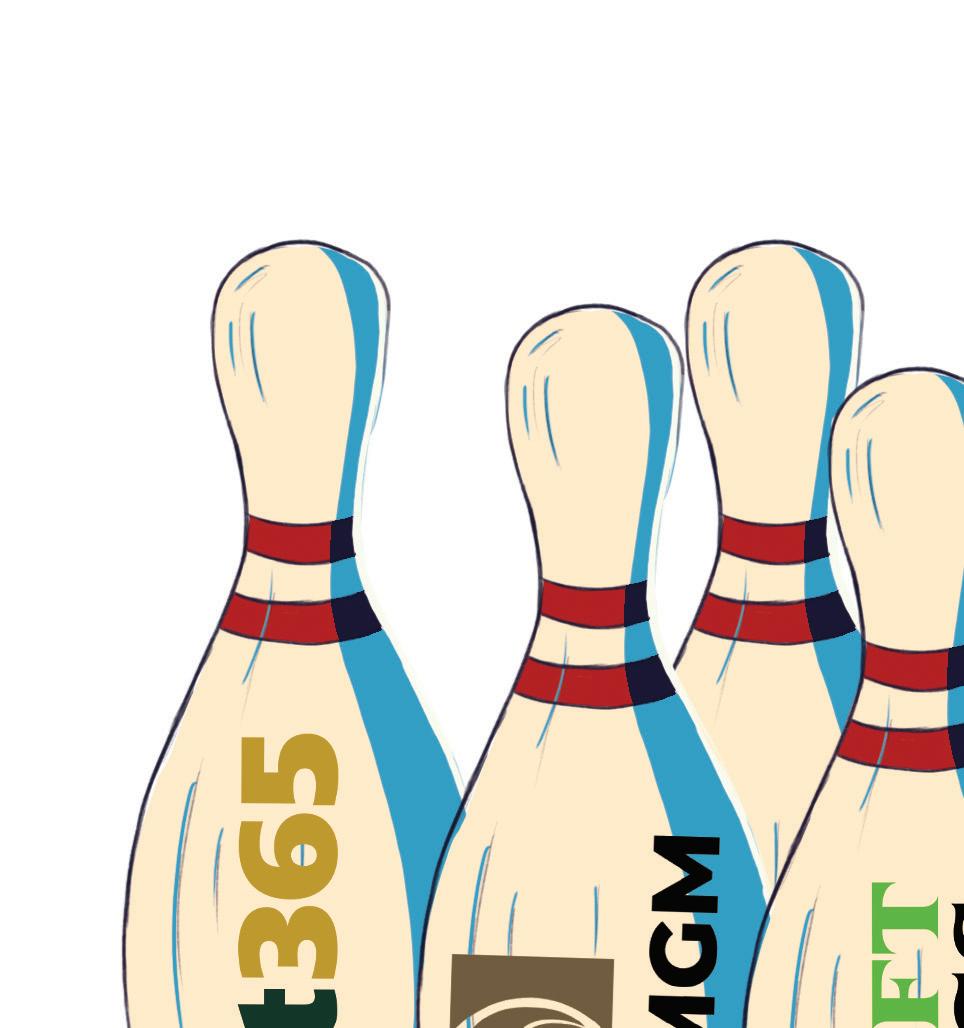



While the iGaming market has potential to be profitable for alternative operators, for Balestra, it is important to note that this market is even newer than the sports betting market, with even less regulation in place. “Online casino gambling in the US may be approaching a crossroads,” he explains. “The sweepstakes casino model is thriving because companies have – at least up to this point – been able to offer casino entertainment without having to comply with government regulations. There’s a lot of legal uncertainty surrounding the model, however, and that leaves licensed casinos with a dilemma: either enter the space and put their licenses at risk or sit back and watch the sweepstakes casinos make hay.” The American Gaming Association's recent note to regulators on sweepstake casinos, advising them to clamp down on the practice, certainly adds to this dilemma.
“If you notice, Betway announced that they were leaving. But, then they announced they’re staying in Michigan and New Jersey on the online casino side. That’s because they recognise that’s a profitable market. Maybe sports aren’t. Maybe we don’t need omnichannel, maybe we don’t need to be able to sell our consumers everything.”









profitable market. Maybe sports aren’t. Maybe we of the market, it is likely we will see more exits, more buyouts and more specification
operators exit, the market becomes increasingly concentration can lead to reduced competition, consumers in terms of betting options and








drive new ideas and technologies to differentiate




seen professional sports leagues and sports media conglomerates begin to steer the market,
wanted nothing to do with betting, which was seen only as a threat to the integrity



With just a handful of operators occupying the majority of the market, while the rest of the US’ operators fight for their share of less than 20% of the market, it is likely we will see more exits, more buyouts and more specification in operator product offerings. Crystal comments: “When smaller or international operators exit, the market becomes increasingly dominated by a few major players. This concentration can lead to reduced competition, potentially resulting in fewer choices for consumers in terms of betting options and promotions. A less diverse market may also stifle innovation, as smaller operators often drive new ideas and technologies to differentiate themselves.” Current market trends, meanwhile, have led to a “snowballing” effect, according to Balestra. “In the last five years or so, we’ve seen professional sports leagues and sports media conglomerates begin to steer the market, and this will only continue… Not long ago the sports entertainment industry in the US wanted nothing to do with betting, which was seen only as a threat to the integrity of sports. That has changed drastically in recent years, and partnerships among the leagues, the sportsbooks and the media are flourishing,”

leagues, the sportsbooks and the media are flourishing,”


will get there first.
Indeed, and with it only being the largest operators that can afford to participate in these partnerships, the divide between top dog and small operator will likely continue to widen. But should we be concerned? We feel not. Innovation in the gaming industry is always just around the corner, and with that presents routine opportunities for operators to claw back a place at the table, or to turn themselves downside up. Where there's a will, there's a way. It’s just a case of who will get there first.

























Gambling Insider Editor Tim Poole speaks with BoyleSports CEO Vlad Kaltenieks about his time in the role so far, global expansion, branding and more
BoyleSports is a sign of the international nature of world sports because it started out as a family-owned bookmaker, but it’s not just a handful of employees in Ireland anymore; it’s a big company. Talk me through your journey to how you got to where you are today. I began as an entrepreneur. I ran my own IT business and then fate took me to the UK where I got into the world of data. Data, at that time, wasn’t anything exciting or sexy to talk about. It’s not like these days where everything runs on data. But it was very interesting in terms of allowing me to understand the fundamentals of different businesses, and gain perspective on the fundamentals of KPIs and other metrics that allow you to judge the health [of an] organisation.

Because data tends to be found all across the business, there is always a need to bring it together and, as you’re bringing it together, you have an opportunity to understand how different parts of the business connect with one another. They contribute to the overall success of the organisation, whether that’s operationally or customer-facing, and I think that combination led me to have a mindset that allows for holistic thinking; and a bit of a landscape mapping where I can have a look at the organisation and how the different parts contribute to each other.





I’ve also been working on a number of transformation journeys and, after having spent a number of years at Betsson I can ask the question: what’s important for the customers and how does the business need to react to that? My journey later took me to William Hill, which was this very wellestablished heritage business. At the time, it was very strong in retail but falling behind in digital and that journey at William Hill was transformational in terms of rebuilding the capabilities; building towards a much stronger digital proposition and being able to succeed in a very, very competitive market. Many people, when they enter iGaming and gaming, never leave.


You joined BoyleSports a year or so ago. It’s not the longest amount of time to change every aspect of a business under your leadership, by any stretch, but what has changed and what are you looking to do long term?
My biggest focus is not to break things that work well and to create scalable capabilities that would allow us to grow in a meaningful way. That’s probably one of the biggest challenges out there. We’re not talking about massive investments where you see big players putting in enormous budgets to be able to win in just one market – and they are doing that across multiple markets. For us, it’s a journey that needs to be meaningful for the business we have and where we are in our own internal capability. There is much to be improved.
We’re working tirelessly on getting more brand and marketing alignments, and to preserve what is good and viable and strong about it, but also to reflect the 21st century. We’re still working on that. It’s a long-term project and one that requires care and attention. It’s not something you can do on a whim and be done with it. It requires testing and a deep understanding of who we are fundamentally, and who our customers are now and will be in the future so that we are relevant to them. We must also be true to ourselves, the products and technology in general.
This is such a fast-moving and changing environment but, at the same time, to be able to change the technology and to deliver something tangible is a long journey. I’ve seen that at William Hill. It takes many years; it’s not a six-month job. We’re probably talking two to three years where you need to be extremely focused and well articulated on what you want to do, what it looks like and what’s needed in order to achieve it. Then it’s about making sure we’re qualifying our opportunities and creating the structures and abilities to realise them, whether that’s our expansion in the UK, growth in South Africa or in Peru.
You mention South Africa and quite a few brands are looking at that market, including yourselves, MeridianBet and, of late, Betfred too. What is so appealing about it? And how much of it has to do with it being an English-speaking market? South Africa is a fascinating country; it’s not just the English-speaking aspect either, as English is one of the languages that you can use everywhere, it’s universal. There is a strong connection to the UK in terms of socio-economics, as well as sports affinity and, from the customer perspective, it’s a very interesting market.
I was reading research a few months ago,
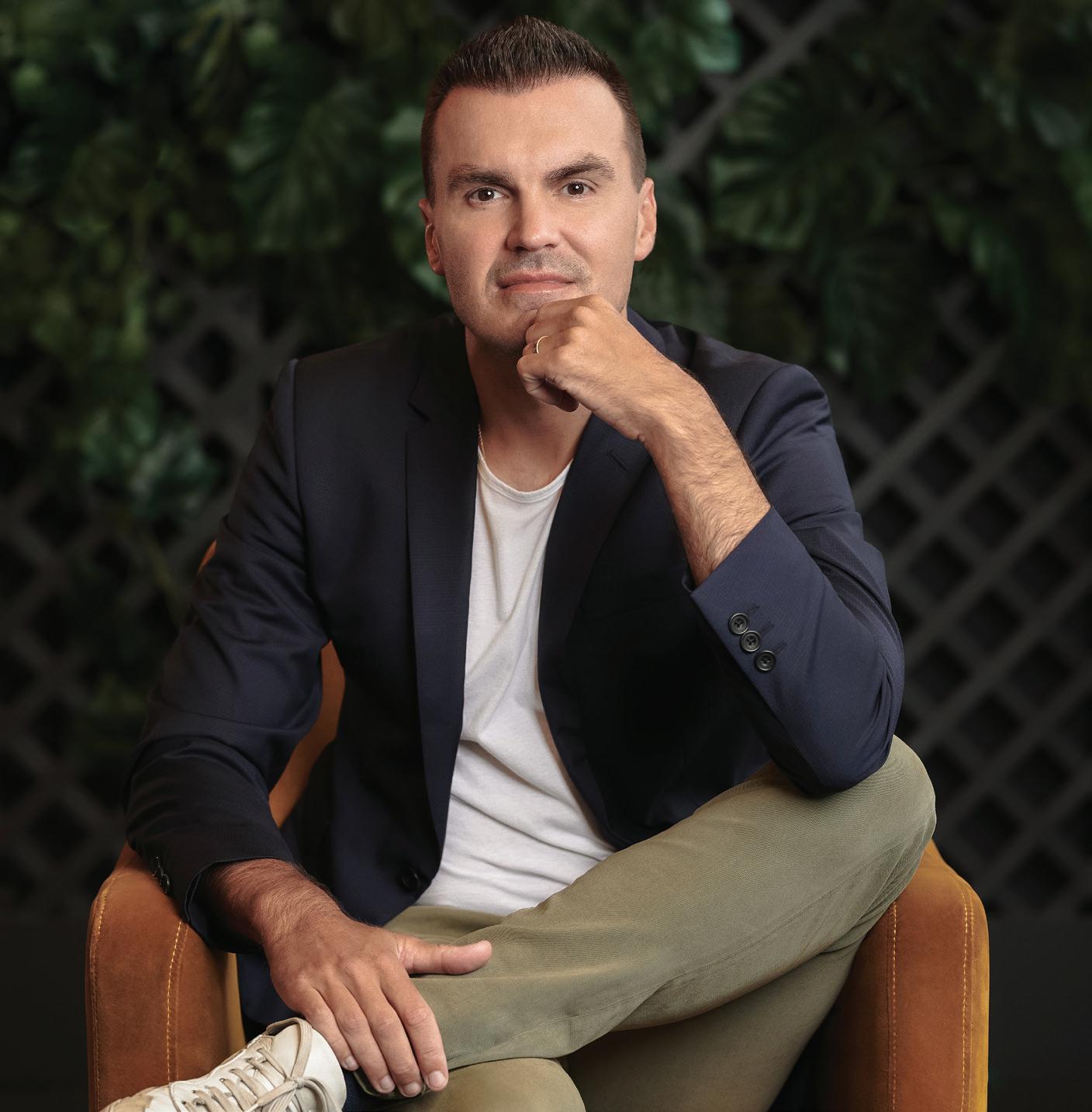
it was done by a local South African business when they were looking at comparing South African gambling markets to the UK markets, especially the offers. They were saying there are a lot of similarities in terms of the South African customers enjoying an odd gamble. They enjoy the element of betting on sports, it’s probably part of their culture, and the size of the market is very similar, if not bigger than the UK – and we know the UK is one of the most developed and well-regulated markets in the world. So from that perspective, I think there is definitely big potential in that country.
Unlocking it, as with many things, is going to be the tricky part. Although, this is where the competition and changing economic and social conditions can also come into play. Whether one is successful or not in terms of that digital and retail split, I think many businesses found that digital is driving revenue generation, even before Covid. You have to consider customer engagement from that perspective and our business is no exception to saying that digital is really on a growth trajectory. I have a feeling and believe retail still has a lot of potential. Again, we are continuing
to invest in retail stores and this is probably the only gambling business that still is opening or acquiring retail stores, because we have to run retail well in Ireland. I think that’s one of the strengths sports has, in seeing what incredible value to the customer a good retail environment or digital experience can bring. We want to continue on that journey, as long as it makes sense for us. My sincere hope is that retail will still see a very long life ahead.
It’s a fair point, because the world is increasingly digitalised. Paddy Power said in its recent report that retail actually showed growth. At the SiGMA Asia Summit recently, there was also a lot of talk about player trust. If they’re playing a slot machine in a casino, they know what’s going on. They can trust the physical maths behind it, whereas an online slot doesn’t have the same feeling. Overall, retail might not be the biggest out there, but it certainly still has potential for growth...
It’s never going to go away. There’s a big social element, too. It doesn’t need to be about gambling or betting. Sometimes it’s great to
give people opportunities to come together, watch games and enjoy that, and with the services we provide and amenities we provide in our retail environments, we’re definitely enabling those opportunities.
You mentioned branding. I’d like to ask about your sponsorship and ambassador strategies. When there’s a new ambassador or sponsorship, what kind of planning and thought goes behind it? How do you resonate with the player?
It’s a million-dollar question. We have a methodology that we’re refining internally, there’s nothing revolutionary or groundbreaking about it. It’s very much common sense and it’s very much in the spirit of joining multiple channels together to maximise impact. If we’re talking and thinking about brand, the brand is probably the slowest-moving piece that you can’t necessarily measure immediately. So, it’s something you need to, as I said, spend time to get right, then take a leap of faith and believe
this is the right thing; and that it has time to come to fruition.
I think sponsorships need to reflect the brand. So while we’re looking at that, we’re also thinking in terms of, ‘Where is the right place for this?’ For us, to play horseracing is natural. We’re sponsoring a lot of different horse courses in Ireland and also greyhounds. But, for the other jurisdictions, it’s something we’re working behind the scenes on, to understand where the right place for us to advertise is. Not only that, but who are the right people we want to be working with?
I’m a big believer that the right combination of sponsorship, whether that’s football clubs or something else, combined with well-known names, can deliver a good outcome. But we also need to make sure we activate that so we take it to its full potential. It’s not just about getting a face and getting them to sport a polo shirt with both logos on. There’s a lot of work that needs to go into activation. My simple goal is to take these great ideas and figure out what we are going to be do with them over the next year and beyond, but also decide if we have everything we need in order to make the most out of it.

“ My biggest focus is not to break things that work well and to create scalable capabilities that would allow us to grow in a meaningful way ”
there, but the competition is rife in those and I’m not sure whether it’s going to be the best product, the biggest budget, or the strongest brand that is going to win there. We are not trying to compete with that. It’s not our path.
revolutionary. It’s refreshing to hear,
I like the candid nature of the first part of your answer, that it’s nothing revolutionary. It’s refreshing to hear, because as you say sometimes common sense is what’s most important. Sometimes you can have an algorithm, but when it comes to sponsorships and ambassadors to work with, that’s an area where there is less data. A lot of people talk about how the future is influencers and other bits and pieces. Sure, but if you look at our competitors in areas like Latin America particularly, they are all doing that.
We’re looking at the niche that we can comfortably occupy and use as a launch pad to build a bond. For us, it’s not about grabbing market share, then trying to make sense of it and rationalise it into some revenue; it’s about finding that niche and making sure we are geared and successful in realising the opportunity.
Sometimes you can have an algorithm, but
It sounds like US markets are perhaps something you’re not looking into? We had plans, or considerations to go into Canada, for example, but we decided against that.
In terms of the future for yourself and the company, do you have any personal goals that you’re aiming towards for the rest of this year and 2025? If, let’s say, in 20 years someone looks back and thinks about Vlad’s legacy at BoyleSports... What would you like that to be?
actually mean? That’s the big question.
So it’s an area you feel is over-saturated? Yes. I mean, maybe a few years ago it was the thing to do. Now, ito win in that space, you have to be a little bit creative. What does that actually mean? That’s the big question.
growth,
In terms of where you see the biggest growth, both industry-wide and for BoyleSports, is there a particular vertical or geographical area? Or is it simply, as you said earlier, about streamlining internal processes, the use of data, etc?
vertical can offer more growth for us and we have some plans in the
There are some very hot markets out
For us, it’s definitely getting that internal machinery sorted and, once that is in a better place, it can unlock external opportunities. Whether that’s any particular sports or casino, I still think our gaming vertical can offer more growth for us and we have some plans in the background that we’re working on. There are some very hot markets out
It’s a long way away, giving away our strategy there, Tim! But I will tell you I’d love for our product to be more intuitive, flexible and in tune with our customers. We are working to make it relevant and engaging for customers. I think we have great market coverage. We were first with some products or betbuilder offerings, and we want to continue building on that and deliver a great experience to our customers, so that’s in the works.
For me, a successful legacy would look like this… When the time is right and I leave the business, it’s in excellent shape and it continues to be very profitable. It has multiple engines that deliver value and a positive experience to customers across the globe and we have very happy, not just customers, but also employees working for us. I think that’s very important.

Anna Johnson, Svenska Spel’s new Group Chief Executive, speaks with Tim Poole about succeeding Patrik Hofbauer, land-based casino challenges and reporting “healthy” gaming revenue in a new way

Anna, congratulations on your new role and welcome to the gambling industry. What are your first impressions in the job?
Thank you! I started at Svenska Spel on 17 June and, since then, I have been immersing myself in the business and the industry. I have met my new colleagues and participated in Svenska Spel’s seminars at Almedalen – a yearly meeting place in Visby for dialogue and exchange. It was the perfect flying start where I got to engage with current topics in the sector, discuss and network.
It is exciting to join a new company and learn both about Svenska Spel and the gambling sector, which is new to me. In addition to Svenska Spel’s strong position in the Swedish gambling market with well-established product brands, it is particularly motivating that we are
the largest sponsor of Swedish sports, and our surplus benefits society as it goes back to our owner, the Swedish state. Running a company based on these principles is something I find incredibly inspiring.
We have four million customers and, every day, we offer them gambling experiences that bring joy, excitement and dreams. At the same time, being active in the gambling sector comes with significant responsibility – maintaining a balance between providing entertaining games and doing so in a responsible and sustainable manner. As a state-owned company, it is crucial to stay ahead, be proactive and simultaneously shoulder a substantial responsibility. These are driving forces that matter to me as a leader, and I feel like I’m in the right place.
What are your first impressions of the gambling sector?
Overall, the Swedish gambling market appears to be functioning well. However, there are challenges, such as unlicensed gambling –companies that operate without a licence in Sweden but still target Swedish consumers. This is an issue that politicians, authorities, and we as gambling companies need to continue working together to address and find solutions for. We also need to actively work on increasing trust in the gambling sector, both as individual gambling companies and collectively within the sector. At Svenska Spel, we emphasise creating sustainable gambling experiences that contribute to a better Sweden. This includes setting an example, and driving the entire sector toward greater responsible gambling practices and increased focus on sustainability.
One example of our efforts is that we have decided to start reporting healthy revenues – that is, the share of revenues coming from customers with a lower risk of gambling problems. We do this to highlight that it is possible to run a gambling company in a sustainable manner and to enhance transparency within the sector. The first report will be at the end of August and, thereafter, this key metric will be included in regular interim reports.
While a few other licensed gambling companies in Sweden currently report, in diverse ways, the share of healthy versus unhealthy revenues, we have worked for several years to establish a common measurement method and definition for what constitutes a healthy revenue. Unfortunately, the sector has not reached a consensus on this. Therefore, we now start reporting based on risk models in our analytical tools. It’s an important step in building trust in the gambling sector overall.










What are the main targets you’ve laid out, or perhaps been assigned by the Board?
Our main goal is to continue offering entertaining games in a responsible manner, which means creating growth in healthy revenues. We hold a position as Sweden’s leading gambling company, and we aim to strengthen that position through our unique games, providing the best customer experience and leading in responsible gambling. By leveraging technological development and increased use of AI, we can make datadriven decisions to offer our customers even more enjoyable, simpler and safer gambling experiences. We constantly challenge ourselves to be faster, more efficient and to provide the best employee experience. It is also essential for us to be an attractive employer so that we can attract the expertise needed for this transformation.
How do you reflect on Svenska Spel’s current performance?
We offer a wide range of games and assist our customers in playing safely. Additionally, we contribute long-term value as Sweden’s largest sports sponsor, support research on gambling problems and allocate our entire surplus to the national treasury. This is what makes us the gambling company for all of Sweden and enables us to create lasting value for our customers, owners and employees. Over the past year, the Swedish gambling market has experienced declining growth. It
“ I approach the task of taking over and continuing to lead Svenska Spel with humility ”
is a mature market with an increasing share of consolidation. Looking at Svenska Spel’s recent half-year performance, our business area for number games and lotteries has performed strongly, aligning with the Swedish gambling market where lotteries accounted for the most significant growth in the first quarter.
Our business area Sport & Casino has seen a slight decline during the first half of this year. However, it is essential to consider that we have simultaneously strengthened responsible gambling measures. This has negatively impacted revenues across all our business areas, particularly affecting sports and casino gambling. On the other hand, responsible gambling efforts positively influence the share of healthy revenues. This balance between growth and responsibility is crucial. We benefit from offering gambling responsibly, even if it affects revenues. We aim for more sustainable play among our customers and strive for healthy revenues. During the first half of this year, we have implemented several actions to transform the organisation for the future, address challenges and create space for new initiatives. This includes reorganisation and downsizing of personnel, with a new structure in place since 1 April. By doing so, we create room for essential investments, primarily focused on transformation and growth.
We have also closed our land-based casinos in Malmö and Göteborg, resulting in reduced losses within the Casino Cosmopol business area. Land-based casinos have faced challenges for many years – not only in Sweden but also in countries like Finland – due to declining visitor numbers caused by increased online casino gambling and Covid-19 pandemic-related closures. However, our casino in Stockholm remains open, offering the same services as before. The significant transformation through reorganisation and casino closures has already yielded positive results, evident in the second-quarter interim report – lower costs, improved results, and a strengthened
operating margin. This confirms that we’re on the right track with the changes we’ve implemented.
How do you reflect on Patrik Hofbauer’s legacy as your predecessor?
While I was at Grant Thornton during those years, I understand that Patrik made a significant contribution as CEO and Group Chief Executive during his five-year tenure. Notably, he navigated Svenska Spel into the new gambling market following the reregulation on 1 January 2019, which involved new gambling legislation, the division of the Svenska Spel Group, and all the substantial changes that ensued. His leadership played a crucial role in maintaining Svenska Spel’s strong position in the gambling market. I approach the task of taking over and continuing to lead Svenska Spel with humility, aiming for continued success.
What are the main lessons you’ve learned from your career that you intend to apply here?
Two key takeaways I carry with me are the importance of building an organisation that creates long-term value, and having a shared strategy and vision where everyone feels involved.
What benefits does a background in accounting/finance bring to the role?
My experience from the audit and consulting industry is valuable. Particularly, leading a company in a regulated market where compliance matters are central – adhering to the laws and regulations we must follow. In this context, I feel confident and experienced. Additionally, I can contribute my leadership experience, especially in defining a common vision and strategy, as well as emphasising customer focus and value.
Are you focused on addressing any specific challenges in your first few months?
My overarching challenge is to continue building value at Svenska Spel. We aim to remain competitive, offering gambling experiences that customers desire while ensuring they play safely and responsibly. Our priority is not solely growth – the balance between growth and sustainability is paramount.
Finally, what is your outlook for the next year – how quickly, or gradually, are you looking to implement change?
Given our recent major organisational transformation, our focus after the summer is to set a clear direction for the future. I will be happy to share more about our plans further on!
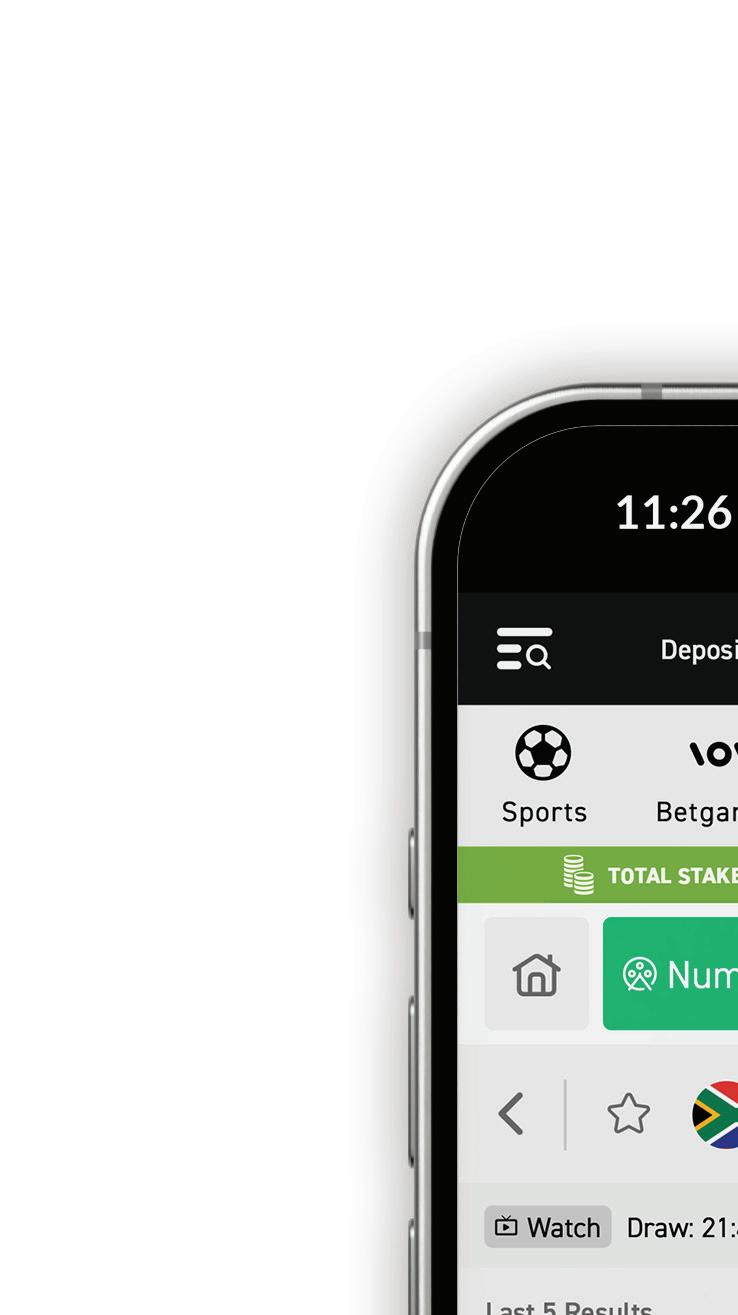



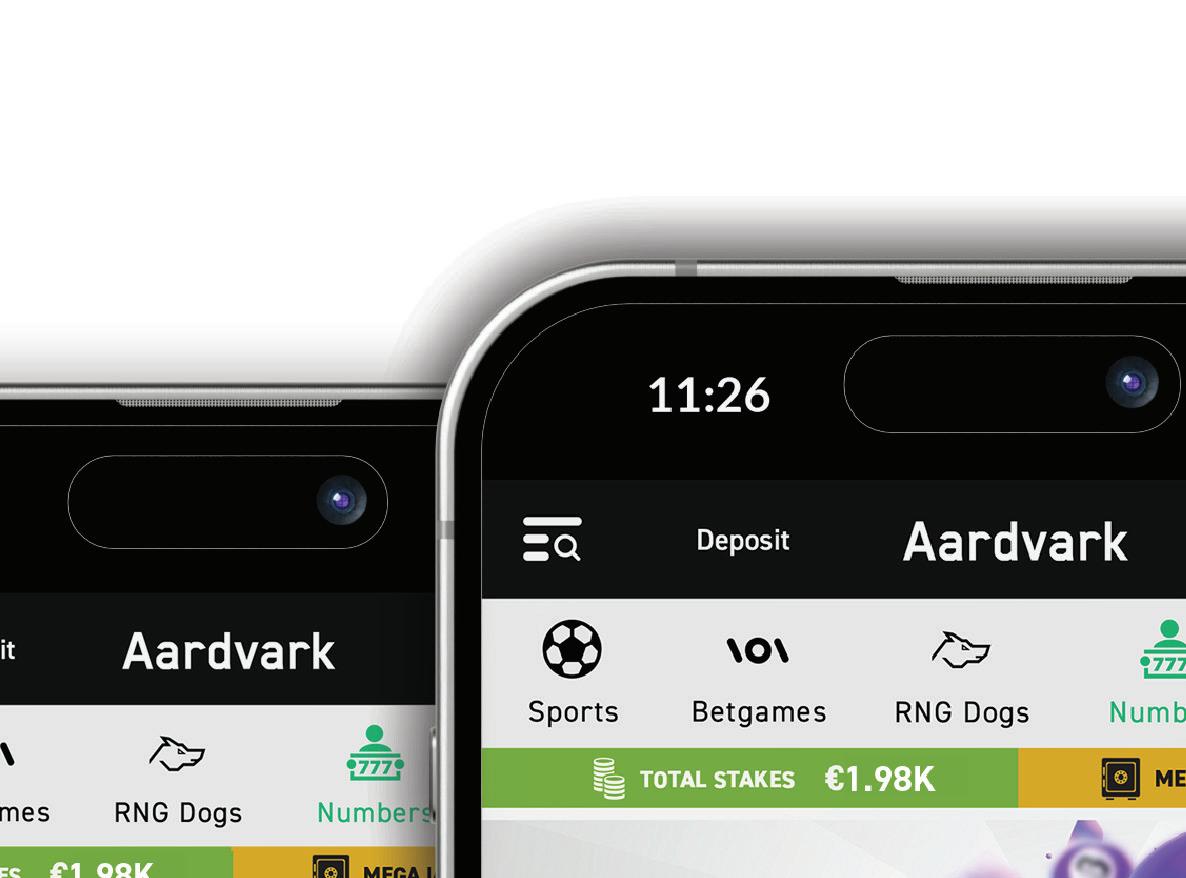



















There is no question that limits are important and useful. They can protect players from placing stakes that exceed their economic capacity. This is why they can be found in most frameworks for gambling regulation. We are talking about stake limits, deposit limits and sometimes also loss limits in this context.
With the introduction of the Interstate Treaty on Gambling, which came into force on 1 July 2021, Germany introduced a crossoperator deposit limit for the first time. The interesting thing about this is that it records the deposits of all players in the respective calendar month almost in real time via a cross-operator server system (the so-called LUGAS system) and checks compliance with the deposit limits. This means a player not only has individual limits with their respective operator, but also has an individual deposit limit that applies to all operators. For example, if this limit is €1,000 ($1,092), the player can only deposit up to this amount per month in the regulated market in Germany, regardless of how many operators he plays with.
The legal regulations and the ancillary licence provisions in Germany stipulate a standard deposit limit of €1,000 per month for each player. However, it is possible under certain circumstances to increase the cross-operator deposit limit to up to €10,000, in particular













Dr Joerg Hofmann, Gambling Insider regular contributor and Partner at Melchers Law, discusses gambling limits – be they stake, deposit or loss– and the balance that must be struck by regulators to ensure their e ectiveness. Hofmann’s ideas can be applied industry-wide, but his main focus is his home market of Germany
by providing proof of income. Subject to even higher requirements, in particular additional close monitoring, the cross-operator deposit limit can be increased to up to €30,000. The higher the limit, the more demanding the requirements for the monitoring of gambling behaviour by the operators. If the specified cross-operator deposit limit is exhausted, the operators must ensure no further deposits can be made by the player.
Compliance with the cross-operator deposit limit is monitored by the Joint Gambling Authority of the German Federal States using the “LUGAS” monitoring system, which includes not only the limit file but also the activity file for the prevention of parallel gaming. Connection to the limit file is mandatory for operators. In addition, the player may set themself a daily, weekly and/ or monthly operator-related stake, deposit and loss limit, i.e. limited to one operator, whereby the operator-related deposit limit may not exceed the cross-operator deposit limit. Reductions take effect immediately, while increases take seven days to be implemented.
The cross-operator system in Germany is technically complex, but it works – at least
technically. The monitoring of deposits is functioning. Setting up and programming such a system is very time-consuming. Minimum periods of more than six months for programming alone are quite realistic. Fortunately, Felix Schleife and his team at GGL (Regulator) provide constructive support to the operators on complex technical issues by sharing their IT expertise.
Spain has followed the German regulatory approach with interest and already announced in November 2023 in a so-called “Draft Royal Decree amending the old Royal Decree 1614/201” the introduction of a system of joint deposit limits per player. The old Spanish system from 2011 provides for limits set independently for each operator, so that the total amount of deposits a player can make ultimately depends on the number of operators in which he participates and holds an open gambling account with. This is not deemed fully satisfactory from the perspective of consumer protection. According to the cited decree, Spain will in future have a cross-operator solution similar to the German system.
The German system, which basically serves as a model, does not take into account the



individual circumstances of the players and has opted for a seemingly “one-size-fitsall” model – regardless of how different the economic capacities of the players may be. Even a billionaire cannot deposit more than €30,000 per month with a licensed operator in Germany.
The question therefore arises as to whether the system, which is well-intentioned in
theory, fulfils its protective purpose. The main purpose of limit regulations is to protect players from ruinous gambling behaviour and to protect them from gambling addiction.
HOW EFFECTIVE
Within the microcosm of players who accept such restrictions and consider them sufficient,
this player protection actually works very well. Players for whom the possibility to deposit up to a maximum of €30,000 per month is (far) too little, however, switch to offers that allow unlimited deposits. But this can only be found in the unregulated market. It is probably a well-known figure across the borders of many countries that around 20% of players account for around 80% of gross gaming revenue (the Pareto principle in action). Even if these figures were to be adjusted up or down by 5%, it can be assumed that these proportions are realistic in most countries and markets.
This also means that 80% of all players generate only about 20% of gross gaming revenue. It doesn’t take much imagination to visualise the market in which large parts of the stakes flow if players are not given the opportunity to make deposits of whatever amount they wish – not to mention their stakes. This is the problem with the German regulation system, which is currently under review. It remains to be seen whether the existing system of limits will be adjusted –which the author believes is urgently needed.
ALLOW PLAYERS TO CHOOSE Germany and Spain, and those who wish to follow this model, would be well advised to carefully weigh up the consequences of a “one-size-fits-all” model in the interests of channelling players.
An alternative that would reach the majority of high-stakes players would be to allow players to set their own individual limits at any level. The “one-size-fits-all” becomes a “customised suit.” No player would have to switch to unlicensed operators in order to choose the right budget for them. In return, the responsibility of regulators, supervisors and operators must focus on a tight, sophisticated monitoring system, using all available means.
In this way, any suspicious gambling or spending behaviour in the regulated market can be identified. This can be countered with the possibilities of advanced responsible gaming concepts. Above all, however, it would be an important step towards channelling high rollers and other high-stakes gamblers away from the unsupervised market and back into the protected legal market.








Gambling Insider regular Paul Sculpher catches up with We the Bookie Founder Malcolm Wilkinson, discussing the brand’s rebate system and bringing new ideas to the market
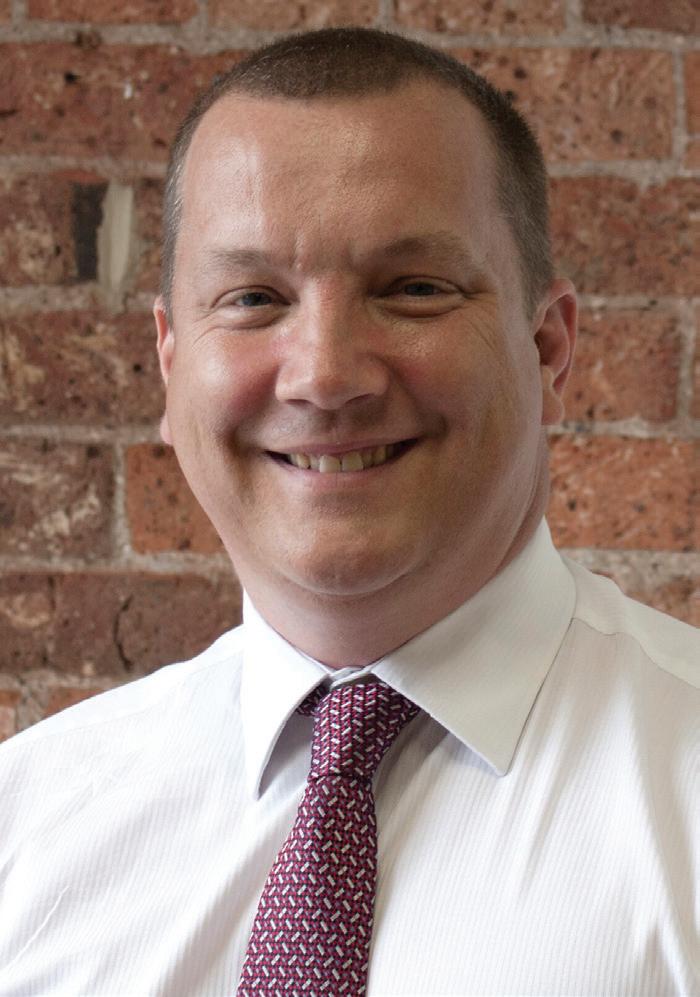
I was able to catch up with Malcolm Wilkinson, Founder of betting operator
We the Bookie, recently – it was the day after Canada day (Wilkinson is from the USA’s more apologetic northern neighbour) so he was in a festive mood!
Can you talk me through the basic premise of We the Bookie and how it came about?
It was born in Canada through a friend of mine. He was maybe gambling a little more than he should have been and we decided it would be just as fun if we simply laid each other’s bets – in theory, with no overround, we would both end up level and have just as much fun. That led to the idea behind We the Bookie, where we return 50% of monthly gross gaming revenue (GGR) to losing players, in proportion to their monthly result.
That sounds very interesting – there has been lots of innovation in the betting world, but this is a different
direction altogether. How does this look from the punter’s point of view?
From their point of view, they’ll see how we’re doing as an operator and we’ll show our position, so they know what their rebate is going to look like ‘live.’ Interestingly, punters might end up interested in sports they weren’t originally familiar with – if we have a huge position on, say, Wimbledon, they might not have a bet on it themselves, but they’ll want the house to win so their rebate share gets larger. That echoes my original arrangement with the guy in Canada (who’s also a seed investor) – he’d bet on sports I didn’t care about – until there was money riding on it!
How do you position your markets –with a unique rebate offer, you must give some thought to where your pricing model is at?
We aim to be middle of the pack. We’re not trying to be Pinnacle and get huge volume at tiny margins – the rebate effectively is a substitute and players may see that as better value. We love the idea that our players have






a dynamic experience – betting at the start of the month might look very different to the end of the month due to the rebate. It’s something of a protecting factor too – if a player has a bad start to the month, it may be in their financial interest not to bet again in that month – they could erode their rebate.
That was the first thing that occurred to me, with the rebate in mind – the possibility of arbing the rebate. How do you feel about people, for example, having one single large bet at the start of the month on option A on a low-margin two-runner event, with a smaller bet on option B with a different bookie to lock in a profit (once the rebate is allowed for)?
That’s fine by us, it’s still a bet with a negative EV from the book’s point of view and we’re rebating half of the GGR anyway. If this kind of activity started to dominate the site, we would deal with it via the T&Cs: The purpose of the site is to attract real players and offer them real enhanced value.
How is it going so far?
It’s very early days, but so far so good. We only operate in Ireland right now, more or less in beta testing and we’re seeking funding to scale up the product. Funding is always challenging and with a radical departure from the accepted norm it’s even trickier. It seems logical that, with something novel to sell, acquisition costs, once we set the marketing wagon
“ It feels to me like the sector is crying out for genuine innovation and the idea of the customer getting a rebate back from an operator who, long run, is almost going to be a partner of the player, is an enticing one”
rolling, will be reasonable, but the question on funders’ minds seems to be more about retention.
We feel that retention will be strong due to the rebate mechanic, the first-time people get a lump of cash at the end of the month and they’ll get past the ‘it’s too good to be true’ fear.
Yes, I can see all kinds of online forum/ sub-reddit activity being part of your growth strategy once you properly get rolling. It does sound very exciting! It is a genuinely different way of doing things in a pretty saturated market. It feels to me like the sector is crying out for genuine innovation and the idea of the customer getting a rebate back from an operator who, long run, is almost going to be a partner of the player, is an enticing one. Funding new ideas is always tough, but if your interest is piqued by all this, find Malcolm on LinkedIn and say hi. He’s Canadian, I promise he’ll be polite….















Malcolm Wilkinson




































The Ontarian market has gone from strength to strength since its regulation two years ago, and Alberta is setting up to follow the Ontarian roadmap. How do you believe the two markets may differ once they both reach maturity? The primary difference will be between who is in the market. More specifically, I think it will lie in the number of operators and the type of games that are provided by the lottery schemes. Alberta is a is a sizable province and, on a per capita basis, probably the wealthiest province. Its population is also skewed a little bit younger than Ontario. Therefore, it’s a different demographic – which will have an influence on what is popular with people. The other part of it is the number of operators that will go into the market. Ontario probably has more operators and more platforms than just about any other jurisdiction. I mean, the UK, with a population much larger, has more operators, et cetera. However, if you look at a population base of around 18 million people, you won’t find one, including the United States, that has the same variety of operators in one place. I don’t think you’ll find that the Albertan market will be as competitive in that sense, because the population base isn’t there.

From your experience in Ontario, what can you tell us about the involvement of the Canadian Gaming Association (CGA)?
The CGA is a trade association and a business association. Its function is to advocate for the sector, to provide educational programmes and to develop policies & recommendations



With Alberta set to follow in Ontario’s regulatory footsteps, Gambling Insider sat down with Ontario-based gaming law expert, Don Bourgeois, who explains exactly what goes into the process of provincial development when it comes to regulating online gaming

to the provincial & federal governments. The CGA, for example, is working with the Advertising Standards Council to develop advertising and marketing guidance and a pre-clearance system. So the CGA is not a regulator, it’s a private sector organisation. From a policy advocacy point of view, it provides educational programmes for governments and develops policies around things relating to government with a broader scope for the sector. However, as it is in the UK and other jurisdictions, having a single voice for the sector to speak to the government is critical. When I was in government, I was general counsel at the Gaming Commission for quite a few years, trust me when I say you want to consult with one or two entities, not 11 or 12. That’s why the CGA is a critical part of the Canadian gaming landscape; because it brings people together to develop a common position that is reflective of the political culture and social culture that exists in Canada.
One of the reasons behind regulating Ontario’s market was to help tackle the black market – is there a similar motivation here?
In a word, yes. I would think it is probably



closer to what existed in Ontario, which was around 85% to 90%. There is, of course, a distinction between the grey market and the black market. The black market we view as hardcore criminal activities that are stealing money from customers. The grey market, as I think people see it, is generally people who are not licensed or registered in the jurisdiction in which they are operating, but they’re not out there to steal money from their customers. They pay, have responsible gambling, and are regulated by some entity. That black market, based on my experience, is probably 5% of any market. You’re never going to eliminate the black market entirely. However, that grey market is the bulk. The challenge is moving those players and those companies from the grey market into a regulated, competitive market. They’re already competing with each other, so competition is not something new to them. Further, even if it is just 55% of the market, that’s a significant amount of revenue. I’m sure the Albertan Government is looking for that, too. The other part of it is providing assurances to the public that this product is regulated and done so in accordance with the policies, political and social culture of Alberta. Money is always involved, but it is also about providing the level of protection and regulation Albertans expect.
Can you underline the First Nation’s current role in Alberta’s provincial market, and how you expect that to change following iGaming regulation? This goes back to the issue around the difference between conduct and management, and the regulatory side of things. Aside from the exemptions we touched on before, under the Federal Criminal Code there is another exemption – the issuance of a licence to a charitable organisation to conduct and manage lottery schemes. Now, under the criminal code, a charitable organisation is limited in what type of electronic games they can operate. A charity cannot operate a slot machine and it cannot operate most electronic gaming machines, which are important parts of the casino industry. Alberta adopted, for its casinos, a charitable gaming market which included First Nations. Not all the casinos in Alberta are on First Nation territory. However, a significant number are. The table games are licensed by AGLC. So, that is how things are
“ Having a single voice for the sector to speak to the government is critical ”
developed. It’s regulated. The table games are provided by the charity that is licensed. The operator is a professional operating company that also contracts with the AGLC. That’s the model. What the minister is doing is consulting with First Nations, no doubt to see what their role and function will be.
Can you think of any pitfalls that may have been uncovered over the last two years in Ontario’s fast-developing market that Alberta is looking to avoid?


which in Ontario is, at times, significantly
Lottery and Gaming Corporation
One thing is the cost of compliance which in Ontario is, at times, significantly more than what it is in other jurisdictions. I believe the AGCO, iGaming Ontario and Ontario Lottery and Gaming Corporation
















(OLG) are working together to ensure compliance costs are limited. Another part of that is the cost of compliance with the different audits, the amount of time and effort it takes to get registered in Ontario, plus then negotiating the agreement with iGaming Ontario. All the parties are aware of the issue and are working to find a solution that meets public policy objectives and, at the same time, from a financial standpoint makes sense. I think that’s the big one. Then regarding how information is shared back and forth, one of the big issues will be the AML and anti-terrorist financing aspect of it. Something else that happened in Ontario regarding the self-exclusion programme was the province had

financing aspect of it. Something else that happened in Ontario programme was the province had


Alberta’s Minister for Service & Red Tape Reduction and the man in charge of Alberta’s online gaming market, Dale Nally, gives his insight into the process of regulation from an inside perspective.
We heard loud and clear from the AGLC that it has a responsibility to PlayAlberta, which is where you can make online bets right now. We also heard loud and clear from operators that they want to participate in an open and free market in Alberta. However, they’re hesitant to come here and provide any of that information to the AGLC as a regulatory body, because they would also be a competitor in the space with PlayAlberta. Therefore, we recently passed a piece of legislation entitled Bill 16. What it does is it gives responsibility to conduct and manage gaming over to the minister, so that we have responsibility to conduct and manage gaming – so we are going to build that regulatory oversight in the ministry. We will be focusing on having a light touch when it comes to regulation. We want to keep the environment safe and responsible, but we don’t want to be getting in the way of operators either. What we want is a very lean regulatory environment. As we follow this path, if we see that we must open another regulator, we can certainly do that down the road. However, right now, we’re not looking to have a stand-alone operator for the
regulatory environment. We’re just going to do it within the ministry.
Right now, we also have 46 First Nations, six of them have land-based casinos, and they are essentially in in the driver’s seat. We look at them as partners in prosperity and partners in this process. We are listening to our indigenous partners and asking them what do you want this space to look like? How do you want to play a role? Do you want to be an operator? Do you want to have more of a passive role? As per those engagements, I’ll be bringing forward some recommendations and suggestions shortly to my cabinet colleagues on what the landscape could look like, based on what I heard from our First Nations in an observational capacity on my part.
We say that Alberta leads, and the rest of the country follows. And that’s quite often what we see in many areas. In this case, Ontario got there first. We are happy to join them. We’re thrilled they’re doing a great job. I do believe that the rest of the country is going to start to follow soon. They’re going to see that iGaming is here. We’re not bringing iGaming into the province. It’s already in all the provinces.
The primary difference will be between who is in the market
”
all the parties do their own self-exclusion, when what we should have is a single selfexclusion programme.
Alberta Gaming, Liquor and Cannabis (AGLC) will not be the provincial regulator. Can you give us any insight as to the process of establishing a new independent regulatory body?

Let’s back up and differentiate between regulation and what is a unique concept in Canada called conduct and management. Honestly, it is a very confusing one. If you look at it from the commercial point of view, the Federal Criminal Code and the criminal code applies across Canada – and the provinces cannot amend the criminal code or act contrary to the criminal code. The criminal “






code prohibits gambling activities other than some private bets and horseracing, et cetera. However, it does allow exemptions. One of the exemptions is provided if the provincial government conducts and manages the lottery scheme in accordance with provincial legislation. There’s also another exemption that is particularly relevant for casino operations in Alberta, which is for charities that get a licence to conduct and manage. The conduct and manage licence is not regulatory, in that sense. This is where organisations such as the (OLG), or iGaming Ontario, fall. They own, in a sense, the business. It’s on the commercial side. Whereas the regulatory side is down to the Ontario Gaming Commission. In B.C., it’s the Gaming Policy and Enforcement Branch. In Alberta – because of how the political culture is – they went with more of a private-sector operator model rather than the already established AGLC, because it is also the owner and operator of PlayAlberta. The minister will be responsible for the conduct and management of online gaming activities.
Looking forward, that’s two of Canada’s more populated provinces soon to be regulated; do you think





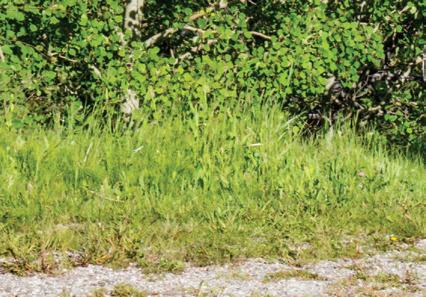






it is only a matter of time before the likes of B.C, Quebec and the rest follow suit?



I think B.C. is actively interested on all accounts and moving forward with a similar model to Ontario’s. However, it’s in an election cycle, whereas Alberta just finished an election cycle. Therefore, I don’t anticipate that B.C. will make a decision anytime soon. B.C. also reportedly has been a little bit more successful in combating their grey market than Alberta or Ontario have been. That’s also part of the dynamic. Quebec is very different. It’s both a large province and a French-speaking population. French is, at a provincial level, the primary language. English is, of course, a constitutionally protected language in Quebec as well. Although many of the international operators do operate in different languages, including French – but Quebec French is slightly different to French. That’s one thing the province would have to figure out. The other aspect is that a lot of Quebec is already well recognised, unlike in B.C., Ontario pre-regulation or Alberta at present. In Quebec, there’s a higher propensity to favour governmental service when it comes to things like liquor or gambling. service when it comes to things like liquor

















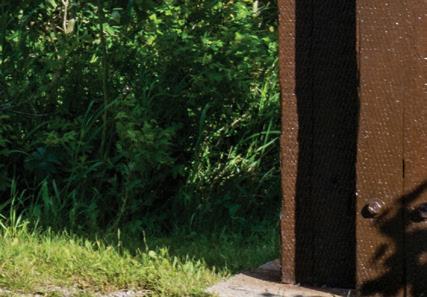













































































































Australia’s market is one-of-a-kind. Director of Gambling Treatment & Research Clinic, Sally Gainsbury and Addisons Gambling, Commercial & IP Partner, Jamie Nettleton, speak to Gambling Insider about the regulatory state of play Down Under
Australia as a nation is home to around one fifth of the world’s slot machines. It also has the highest gambling losses in the world, 40% higher than secondplaced USA. Do you think there is a link between these two facts?
Sally Gainsbury: There is no clear evidence that the number or availability of gambling products is clearly associated with the number of people with gambling problems. However, prevalence surveys are becoming increasingly hard to conduct, and they have many issues in terms of how representative they are. Nevertheless, greater ease of access to gambling, more normalisation of gambling participation, and greater gambling advertising has all been linked to increased gambling participation and risk of experiencing gambling harms. It is important to look at the availability of gambling, as well as cultural attitudes towards participation – particularly frequent participation – in gambling, with relation to the experience of harms not only

for individuals who gamble but for the broader community.
What is your opinion on the new NSW law that requires a Responsible Gambling Officer at all venues with 20 pokies or more? Will it actually make any difference?
Jamie Nettleton: It’s going to be dependent on the venue. It’s going to be dependent on the people to make sure it’s really going to work – and practice is always different from theory. I think you’ve got to say this is not the first step. This is one of many steps that have been taken. There’s no doubt there is considerable motivation to reduce the proliferation of game machines and the availability of gambling in Australia. There is no doubt about that, but it’s a matter of balance.
SG: It will be important to have an evaluation of the new requirement of RGOs to see if they are effective. Previous efforts to have chaplains or other support people in venues have not been shown to make much of a difference. Any human intervention will only be as good as the training and support provided to the RGOs, as well as additional strategies demonstrating that harm minimisation is a priority in the venue.
There have been a lot of AML/antiterrorism financing issues and reports of problem gambling arising in NSW in particular – what more do you think could be done to improve safety in the region?
SG: Account-based gambling will be a huge step as it will identify who is gambling. It is important to balance this against concerns of privacy, which are highly reasonable. However, given the risk of gambling in terms of personal and community safety, it is also reasonable that steps are taken to monitor this activity.
It seems like some of the issues we’ve touched on here could be improved by the nationwide implementation of cashless slot machines. Do you think this is likely to happen at some point?
JN: That’s a significant new measure being

tested in New South Wales, cashless gaming. Obviously, what it does is assist in reducing cash going through the machines. It increases the need for identification and review of the gambling being conducted. It’s seen to be a very attractive policy objective for both the government and the casinos that are putting it in place. It’s going to be mandatory in the casinos hopefully very shortly. Star Casino is putting in place cashless gaming as we speak. There’s a lot of support. Will it work? It’s more a question of why shouldn’t it work? For a start, how much cash do you have in your wallet now? I know that I’ve probably got the same $20 note I’ve had for a long period of time. I never use it. Why should it be any different for gambling. However, things become more confusing when you ask yourself what this measure’s objective is. Is it to reduce money laundering? Is it to increase identification? Does it reduce gambling harm? There are so many potential objectives. Then there is the question of how is it going to be achieved? Let’s wait and see. There’s been a panel in New South Wales which is reviewing the cashless gaming trials. It’s due to report by the end of this year as to what steps should be taken to implement






















































































































































































































































































































































































the measure more broadly. Still, when it was first launched, a lot of places volunteered to be involved because there’s interest from the venues to see how it’s going to work as well. They want to know how it’s going to work because, clearly, they’re the ones who have to put it into practice. They’ve got to invest in the technology. They’ve got to invest in the training, so they want to know what it means for their business.
Building on that, NSW’s gambling industry turns over around AU$95bn (US$64.56bn) annually; do you think the power of an industry that size imposes some kind of influence over regulation?
JN: Can gambling regulators be captive to the industry – it’s a big question – and a very interesting one! I’ve been on numerous panels where this has been discussed. There is always a potential for this to happen.
“ There’s no doubt there is considerable motivation to reduce the proliferation of game machines and the availability of gambling in Australia ”



It’s not just gambling, it’s practically applicable to any industry or sector where there are large revenues and there’s some form of inappropriate closeness between the regulator and the industry. We’ve seen it many, many times before. First of all, it’s largely about whether the regulators are being regulated well enough themselves to make sure they’re not susceptible to any influence. Obviously, there will be several sanctions imposed on industry participants. But there can also be sanctions on the regulators as well – and there’s a lot of discussion in Australia about how powerful are the anti-corruption authorities?
If it’s a strong regulator, that’s going to reduce the risk significantly. People will say, what do you do about the bad eggs? Unfortunately, in almost every sector, there are bad eggs. It’s a question of ensuring you’ve got appropriate regulation and enforcement measures in place to tackle those that don’t comply. Something else that is part of the dynamic is that there’s a lot of sanctions imposed upon operators or participants who want to comply but make a mistake – and the consequence of having strict liability is that you’re then going to be penalised anyway. This, in turn, makes you wonder if it ends up getting the people that it should be targeting.
SG: There is a clear conflict in NSW between gambling revenue, taxation and efforts to meaningfully reduce gambling harm, which will of course impact spend. As Jamie says, independent bodies are needed to ensure there are checks and balances in place and part of this requires constant community pressure to ensure that both the industry and the government are taking a balanced approach.

On the other side of the coin, what do you think are some of the most promising/exciting recent developments from the Australian gambling industry? SG: Australia often leads the world in the development of new technology both for the gambling experience and efforts to reduce harm. At the University of Sydney Gambling Treatment and Research Clinic, we are currently working on a series of online tools to support people who want to gamble to track their spending and check their gambling knowledge. Gambling can be a fun entertainment activity, but as with all activities, people can take steps to ensure they stay safe.
JN: The concept of cashless gaming is absolutely one I think could modernise the gambling environment significantly, because the whole concept of game machines largely targets an older demographic that is more typically reliant on cash. Cashless gaming is a way to protect those people. Secondly, there are continuous attempts to make gambling more enjoyable with less harm – which is the ideal scenario. Of course, this is very, very challenging in the Australian environment because regulation is never perceived to be good enough. From my perspective, there are some really interesting questions around this coming across my desk. It’s not so much gambling. It’s almost like there are new products and more forms of entertainment coming through, which are probably in the softer forms of gambling. That said, it’s very hard to do much innovation in sports betting because it’s heavily regulated at the moment and most of the products are very, very similar.







Unlock a vast ecosystem of top esports odds providers through a single integration. Add new game titles, explore unique markets, or switch providers for a better option. As our ecosystem grows, so will your choices, enabling effortless customization.




















Gaming lawyer Garron Whitesman explains why the South African market falls under both the emerging and established categories – and what that means moving forward
How would you describe the current state of play in the online gambling market in South Africa right now?
I think part of it is microeconomic and part of it is macroeconomic. The industry has gone a particular way, some operators have opted to go with regulation and others haven’t. Why that’s important is because South Africa is a highly regulated market, and has been for 30 years in some way, shape or form –with licensed casinos and bookmakers and so on. Therefore, it does present itself as an attractive market from a known regulatory perspective. Secondly, Africa has been like South America. It’s one of those continents
“ More opportunities to gamble, higher exposure, the global shift online, high mobile penetration rates, reduced data costs. All these things have combined in South Africa ”
that are regarded as emerging markets, where there is a wealth of opportunity. However, I’m not sure whether you would describe South Africa as an emerging market; it’s quite a developed market. It is a mature market in certain ways. It’s a highly regulated market, so I’m not quite sure whether you can kind of put South Africa, Brazil and Mexico in the same basket. It’s a regulated market that perhaps holds more opportunity or potential. I think that’s how South Africa has presented itself, particularly the last few years. Then, all of a sudden, we saw a huge explosion in online, because it became the norm. Now, the growth curve we’re seeing between conventional land-based casino activities, retail and sports betting – when compared to online – is just exponentially different. That’s in keeping with what we’re seeing globally. The second thing is, the cost of data has come down quite materially in South Africa over the last few years, which helps. I think the exposure and extent of advertising regarding gambling has also increased here. There’s quite prolific TV advertising, for example. So, more opportunities to gamble, higher exposure, the global shift online, high mobile penetration rates, reduced data costs. All these things have combined in South Africa.
Revenue figures for iGaming in SA have trebled over the past three years; do you believe that Covid-19 had a key role in this online gaming
boom? Were there other factors also at play?
I think the whole world has had Covid-19 push things more online. Gaming and betting were moving that way in any case, but Covid, like with other industries, gave it a massive kick. It was very challenging for our casino groups and 38 land-based casinos that hadn’t really begun to consider online seriously quite yet. In South Africa, we have nine provincial gambling regulation dispensations. We have both federal and national legislation. This complex environment has made it hard for online gambling and betting from a regulatory perspective previously because of the different provincial regulators. It’s quite complex. There is more communication between them post-Covid, which has helped online gambling bloom, too.
Can you talk us through the changes in regulation – and subsequent effect on the market – that have been brought about by the recent Remote Gambling Bill? It’s interesting. The Remote Gambling Bill has been brought by Dean McPherson, who was the official opposition’s shadow minister for trade and industry. It is supposed to be considered by the seventh Parliament; however, at this point we still don’t know who the various portfolio committee MPs will be. When that is constituted, the bill itself will need some tweaking, as it was drafted some time ago. There is some stuff in it I don’t necessarily agree with. However, there will




























be opportunities for submissions, there is a process that it will have to go through, and it will take years to get to any finality because it can’t become final in its current form. It’s difficult but exciting. Why it’s exciting is because, unlike when previous attempts have been made, we understand that there is much greater support, including from the National Gambling Board, for a single structure that deals with remote gambling.
South Africa recently had a very important General Election, which saw the formation of a coalition government. It’s early doors, but how do you think this could affect both online and land-based gambling in the nation? I had hoped that the new coalition would place Dean McPherson as the Minister of Trade and Industry – as he was the one who had pushed for the new gambling bill. It hasn’t worked out that way, they have opted for Parks Tau. Apparently, he is a good guy, but I don’t know that much about him or his views on gambling. Everyone understands that there is a substantial revenue opportunity when it comes to gambling in South Africa. It’s already coming to the provinces for the most part. I think they understand that it is an attractive market for people, notwithstanding its weaker exchange rate, for example. The thing is: those that do well in South Africa, in and of itself as a profit centre, can do very well. There’s no question about it that many people have found this market challenging, while others have been exceptionally successful in this market. However, the fact remains that we’re seeing tremendous growth and I trust that the interest I continue to see is positive.
With a large and diverse population, how do you believe the National Responsible Gambling Programme (NRGP) will ensure a safe gambling environment as the landscape matures at such a rapid rate? We have a good responsible gambling programme. From a local perspective, it is regarded as well-researched and supportive. In South Africa, you can’t advertise anything without health warnings, for example. However, it’s nowhere near the extent that the UK has gone, to which I think is perhaps overkill in any event, but there’s a big focus without a doubt on issues of responsible gambling. Clearly, we know there are more opportunities to gamble that are present now. Does that then mean more people on an overall percentage basis will have a problem or potentially could have a problem? That I don’t know. Would that mean that more people numbers-wise will have a problem? I suppose so. There’s a lot of research being done around that now.
There’s also a lot of talk by the National
Gambling Board as well as the Western Cape Board about devising a heightened set of responsible gambling rules and procedures. This then, obviously, has direct knock-on effects to the National Responsible Gambling Programme, which remains available to people through any gaming site in South Africa. As a rule, the contact numbers must be displayed. I have no doubt that as the industry grows, we’ll see enhanced rules coming through. Hopefully not as hectic as the UK, because I think some of those rules are unworkable. But like any industry sector, I suppose it will grow exponentially with the rest of it.
South Africa is a very attractive prospect for companies right now. We’ve seen the likes of Hacksaw, 3 Oaks, Meridianbet, Greentube & Booming Games all enter the market in the past few months alone, not to mention some high-profile operators. What is setting South Africa apart right now in that respect?
I think it’s a growth opportunity. We’re seeing announcements made by many operators who, for example, were pursuing a US strategy that isn’t going as well as they would want, spending millions and millions trying to get
it to where they want it to be. I’m sure readers will be able to think of at least a few who have hit the brakes on this type of strategy recently for whatever reason, either postponing or cancelling it. Then what happens is they need to begin pursuing other markets – and there’s so much room for growth here. Generally, South Africa is a relatively easy jurisdiction to do business in. Certainly, it has not proved to be insurmountable in any way, shape or form for anyone who I work with, that’s for sure. We have a good group of regulators on a one-on-one basis. It is highly regulated and it is a developed market in many senses. If you know your way around or you’ve been doing business here in some way, shape or form, you can establish yourself here more easily than other African jurisdictions like Nigeria or Kenya, for example.
I think that if you’re coming from Europe or the UK, even to some degree, the States, doing business in South Africa won’t feel foreign to you. There’s a tremendous number of highly qualified professionals, tax advisors, all the big accounting firms, many of the international law firms, a lot of professional structure and advice. I think that is important because you go to certain other territories across the world and that kind of infrastructure isn’t always there.











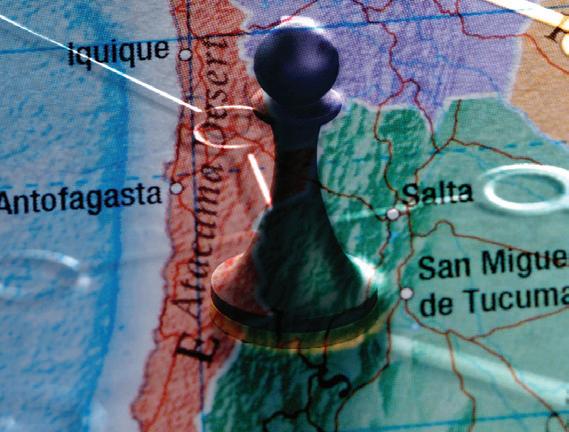

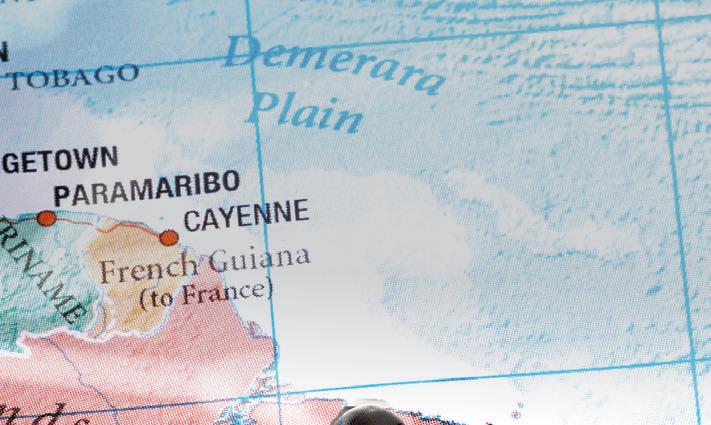
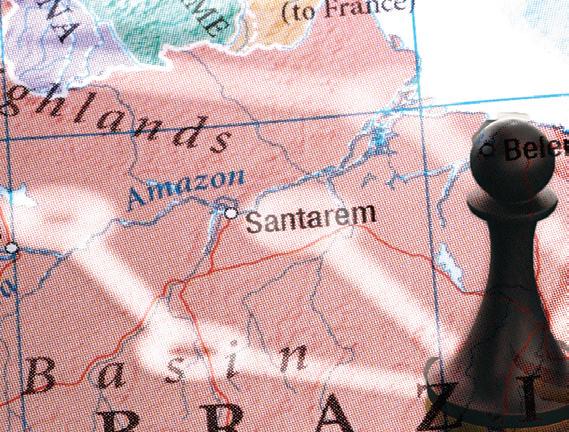
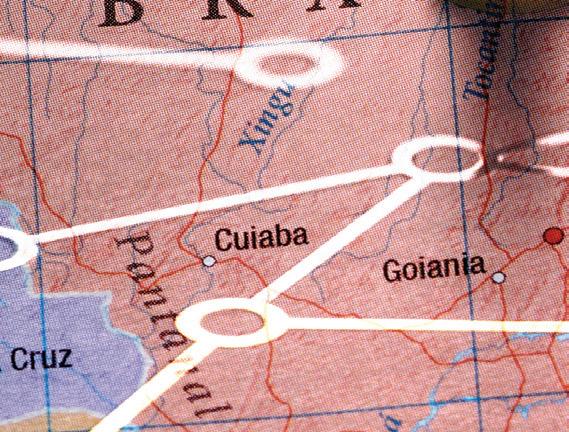


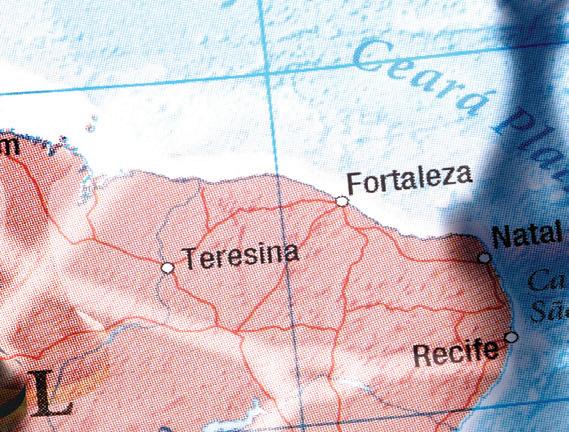




Galaxsys SVP Sales and Business Development, Gil So er, unpicks the challenges, nuances and non-negotiables of successful entry into Latin America’s gaming market
The LatAm iGaming market is growing rapidly at an annual rate of 38% – while this is a positive thing, do you believe it could spell any issues for organisations looking to enter the market?
The good thing is that Galaxsys, and its portfolio of games, are growing at a rapid growth across the whole of LatAm, too! There is no doubt the market overall is on an upward trajectory. Some parables can be drawn from the USA. The opening up of the US market state-by-state resulted in
fast growth, increased tax dollars for the state and perhaps oversupply, both B2C and B2B. While the US market is still growing, it has slowed, and you can see signs of that by companies in the supply chain shuttering operations and withdrawing from the market. Also, increased M&A in the horizontal supply chain is underway. Similarly to most regulated markets, we are witnessing a stronger focus on social responsibility frameworks in the USA.
Therefore, it is prudent to suggest LatAm will eventually follow the USA, and
“ The critical challenge lies in understanding the diverse and complex nature of the Latin American market ”


the market will normalise. There will be category leaders, winners and losers, most likely in the near term, the next 5+ years.
In the Peruvian market, you have an established and singular regulatory body in MINCETUR. However, in newly regulated Brazil, the latest ordinance established the Ministry of Sports as another intermediate authority among several others. What kind of challenges does that pose for operators entering the market?
Personally, we have the experience and technical expertise to adapt to any local regulations and have done so in very complex jurisdictions, such as Italy, UK and Portugal.
“It is prudent to suggest that LatAm will eventually follow the USA, and the market will normalise ”
It is a barrier to entry for smaller suppliers, but considering the potential of the market, we will invest the resources needed to enter this market as soon as it’s regulated.
Across the continental region, you have progressive countries like Colombia next to soon-to-be regulated markets such as Brazil, and highly regulated markets such as Argentina. How do you navigate the differing regulation and cultural nuances of the LatAm market?
In two words, focus and localise. In business and digital product & service distribution, you can clearly access a global marketplace. However, the reality is somewhat different. Focus and localisation aren’t merely translating a website; they are far deeper than that. It’s about people and operations that are affected by the sometimes-huge cultural divide and chasm that can arise when looking to enter a market that isn’t perhaps native to the organisation, or its founders.
People are the key to successful global expansion. At Galaxsys, we invest in individuals who possess the necessary cultural knowledge, commercial and product skills. This is evident in our recent hiring of experts in LatAm for our expanding Sales and Partner Management teams. Our focus remains on global action, but our approach is always local.
There are many accounts of infrastructural instability with regards to payments in LatAm. How does Galaxsys navigate payment processing in the region, as well as adopting potential new payment methods such as PIX in Brazil?
You are correct. Infrastructure can vary within each country, just as it can in Europe, and each may have slightly different micromarkets within the macro country market level. Payment processing, or more importantly, payment onboarding and experience, is critical in any e-commerce or online business. It isn’t merely having a spectrum of APM (alternative payment methods); it’s the CX and removing as many friction points for the customer as possible to reduce indecision and a bad experience. We currently facilitate 170+ currency options and PIX Money Transfer, created by Banco Central do Brasil, is an essential enabler of mobile payments for customers in the Brazilian market. So, our teams work closely with our operator partners and payment providers to ensure the optimal payment attainment possible.
Galaxsys recently attained Peruvian certification; how has the expansion process into that market been going? We try to retain a very focused business, and our team analyses the market potential and overall growth prospects prior to any market entry. We believe Peru has the longterm prospects we desire for our business’ products and services. With a population of 30+ million and a solid middle-income demographic, there is a strong product/ market fit. Our pipeline is growing nicely in this market, with operators interested in our games portfolio. Thus far, we are pleased with our initial phase in the market.
What, in your opinion, is the key challenge that gaming organisations have to overcome to be successful in LatAm right now?
It’s a common misconception that the term ‘LatAm’ implies a homogenous or single market. The critical challenge lies in understanding the diverse and complex nature of the Latin American market. It is the same as the terms of reference of continental Europe. LatAm, like Europe, is a hugely diverse marketplace with different political, economic and cultural requirements. This is perhaps the biggest challenge: the overall market is growing, but businesses need to focus on key countries within the zone, and ensure they understand all the associated nuances to attain market share and long-term growth.










University of Nevada, Las Vegas (UNLV) Professor Anthony Lucas, Ph.D, explains his latest research into declining the e ciency of free play, and how casinos can better spend their bucks, with Sta Writer Beth Turner

Anthony Lucas
You recently wrote a paper about free play, Measuring the Impact of Reduced Free-play Offers on Casino Loyalty Behavior. Could you give me a brief summary of the research you conducted, the methodology for gathering those results and what the research concluded?
There were 400 people in the same offer tier, getting $15 a week in free play. Of those 400 people, we randomly assigned 100 of them each to four groups. Each of the 400 people in the study had an observation for the first six months of 2018; we call that the pre-demotion period. They were all getting $15 a week in this period. Then, each of those subjects had a second tagged observation in the same six months the following year, which we call the postdemotion period. Once in that post-demotion period, we took one of the groups and cut them from $15 to $10 and another of those groups from $15 to $5, and another $15

to $0. We wanted to understand how their behaviour changed from the period when they were getting $15 and what happened if we took it away or reduced it.
Why did we do that? Free play has grown into this enormous annual expense and has become a concern for many operators. The question on everyone’s mind is, this thing has gotten out of control – how can we reel it back? Everybody says we could cut it, but the predominant conclusion to that is don’t do it.
‘There will be this biblical exodus of players because all our competitors are going to keep doing it, and if we’re the only one in the market that cuts back, they’re going to flock to competitors.’
The casino [in the study] had a bunch of nearby competitors. I guarantee you most people in this experiment were members of more than one loyalty programme. They could have easily jumped ship. But they didn’t, which I don’t think anyone would have predicted.






From what I read, when you took free play away entirely, there was a drop off. But when it was reduced down to $10, $5, that drop off was far less. Is there a psychological theory behind why that happened?
Before we get into theory, it might be interesting to point out the reason I put visitation numbers in the report. This was a novel approach, but the results really dovetailed into the rest of the research. It was because if I show that the gaming spend for the six-month pre-demotion period doesn’t change from the gaming spend in the post demotion period, casinos will say: ‘Yeah, but visits.’
As an example, if Beth gives me $2,500 in theoretical win in the pre-demotion period and she visits 35 times, then she gives me the exact same amount in the post-demotion period but she only visits 75% of those times, I don’t care, as long as I’m getting the same amount of spend.


I did visitation because industry people, when they read these studies, a lot of times will say ‘Well yeah, but,’ or will live in the limitations section [of the results]. I wanted to put visitation in there because it is interesting. It’s part of the psychology. But at the end of the day, if you pin them down, the thing they’re most concerned about is gaming spend. Whether it occurs over eight or 10 visits is rather inconsequential. If you were in a destination market like the Strip, where you were getting hotel revenue and food and beverage spend, it might make a difference. But this wasn’t that; this was a repeater market property. Psychologically, you wanted to know why they behave differently if you take free play away?
Yes, but also, why don’t they behave that differently when it’s reduced? They really behaved the same. The spend didn’t change even when we took it away. It was barely significant. When you offer what’s

called an extrinsic motivator, which is a pricebased incentive for patronage, you’re going to lure deal-prone, promotion-prone, value-prone people. They are loyal, but not to places. They’re loyal to offers.
It’s not that free play is categorically bad, but you lure in free riders – they have no intention of staying on and continuing to be a client, they just want to take advantage of the offer because it’s beneficial to them. You’re building a bridge to a place you don’t want to go. There are casinos that spend $100m a year on free play in the United States. That’s a lot of money every year on a programme that isn’t delivering its primary objectives. I understand why we’re doing it at the high end, for the premium players, the high rollers, but I think we’ve gotten into this ‘if it’s good for the goose, it’s good for the gander’ mindset.
We’re offering it in the middle and low end. That’s where it’s not working. That’s where the industry must improve; in the middle and bottom of the database,

which is where over 85% of loyalty programme members fall.
You mentioned that there have been other studies into this, but because yours says something different, it might fall on deaf ears. Do you think it’s because so many casinos like free play so much, they don’t want to hear the outcomes of these studies?
There’s a book, Rebel Ideas by Matthew Syed. I think he described it best. He talks about cognitive dissonance and I think that’s a big part of it. Organisational clout, organisational credibility, is the primary currency in gaming corporations. If you look at this research and say ‘Oh, wow, maybe we should go back to the drawing board,’ you’d first have to admit that you didn’t get it right. Walking it back is asking a lot.
Admitting you’re wrong is never an easy thing! So, to my next question regarding the study. You gave your casino-goers $15 a week as part of their loyalty programme, then you knocked it back. If that starting rate was lower, say $5, do you think the results would be similar? Yes. When you’re in that middle to low end, you’ve got to be careful. So it depends. All programmes, campaigns and approaches are different. But again, of the 15 to 20 good studies that are out there, there’s too much similarity in the results. It’s just not good. I’ll take you back to the 1990s. The first time somebody explained the precursor to free play, which was cash mail, it sounded like a scene out of Spinal Tap, where the guy
is trying to explain why his amplifier is louder. The marketing guy comes in and says: “I got this new idea. It’s called cash mail. What we’re going to do is, we know Beth. She likes to come in on Tuesdays and Wednesdays. So, we’re going to give her a coupon that’s only good for Monday. So now she’ll come in on Monday, Tuesday and Wednesday.” I thought no, she’s just going to come in on Monday and Tuesday or Monday and Wednesday, why are you so sure we’re going to get an extra day out of her? Maybe she’ll just switch the day. I thought it was a bad idea out of the gate and it just kept rolling. Again, because there’s so much internal championing. That’s part and parcel of the corporate experience. Conceptually it was contrived; it’s been tricky off the bat and it’s continued to be that way 20-30 years on. When you start looking at different properties, and different markets with different approaches and methodologies and you get the same results, that’s called triangulation in science. That makes for a pretty compelling theory. So, somebody’s got to start showing me how it works.
If reducing free-play amounts given to customers after a certain time only slightly impacts the return rates, what do you feel would be a more effective way for casinos to invest their money outside of those programmes? It is very property dependent. But almost everybody has a pretty substantial list of capital expenditure requests that they keep pushing one year down the road. There’s a lot of things you could spend it on. Parking garages, safer parking, service delivery,
refurbishing the physical environment... building better non-gaming experiences and non-gaming attractions. Those have longer legs than price-based promotions and they’re harder to copy than price-based promotions. If I give you a free-play offer and you live between my casino and another casino, it’s not going to be long before the other casino gives you a slightly better free-play offer. Then I counter with an even better one. Pretty soon, even if we get an extra visit out of you, it’s just us winning our own money back. We’re not getting into your wallet – we get a fraction of what we could have gotten.
It seems casinos have got stuck on free play, that there’s a stubbornness in letting them go. Despite what evidence has said, if a casino wants to stick to free play, how can they be better optimised? There’s nothing categorically wrong with free play. But operators are going to have to engage in some form of controlled experimentation, some kind of randomised controlled trial, whereby they can manipulate the offer value and/or frequency, and measure what the effect is. They need to do that within specific tiers and once they get down to top of the middle, I think they’re going to find out that, below that, it’s just not the best use of money.
The study you conducted was regarding land-based casinos. But online casinos and sportsbooks derive much of their customer onboarding from free initiatives. Free bets, free spins, etc. While this study is on landbased casinos, what do you think they could learn from this?
The same things! I would do some type of experimentation or a randomised controlled trial with multiple groups and I think they’re going to find the same thing: It’s not very sticky. You may get players for a visit or two, but it’s hard to establish loyalty behaviour. Someone at the Harvard Business Journal described them as bribery. He says it’s not very different to bribing someone, saying ‘I’ll give you this if you do that.’
Intrinsic rewards are when people do things for the love of the game – it’s fun and it’s their choice. They don’t feel manipulated or subject to what we call ‘reactance theory’ in psychology. I would say to the online sportsbook and iGaming guys, be careful and measure. We need to do a better job of measuring, being honest with ourselves and owning up to things. It’s okay if it doesn’t work, it doesn’t mean it’s a bad idea. It just means we go back to the drawing board and reconfigure how we do it. It’s not a disaster. It’s not failure. It’s just an indication that we have to revise it. I think that’s the most positive way to convey it to the industry.

Industry experts answer Gambling Insider’s burning questions on all things related to slot themes including Bragg Gaming, Novomatic, ELA Games, Onlyplay and FBM



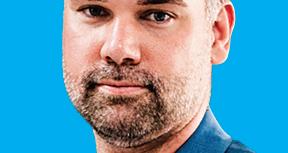

CHRISTOFFER MELLDÉN Bragg Gaming Group Commercial Director Of Content
With almost a decade of experience in the iGaming industry, Christoffer Melldén has worked in commercial and account management roles with leading suppliers including Play’N Go, NetEnt, Real Dealer Studios and most recently Yggdrasil. In his role as Commercial Director Of Content, Christoffer has responsibility for Bragg’s content vertical strategy, relationships with key stakeholders and project management, driving this across the international regulated iGaming market.










THOMAS SCHMALZER Novomatic AG VP Global Sales/ VP Product Management











Thomas Schmalzer joined Novomatic in 2016. As Vice President for Global Sales/VP Product Management, he is an established professional with more than eight years of experience in the gaming industry.












DAVID FALL ELA Games Business Development Manager
With 5+ years of experience in iGaming account management, business development and sales, David Fall's involvement in these roles has nurtured his people skills and given him a hands-on understanding of the pain points and needs of brands in the iGaming world. He built his brand as a slot streamer aka “David Plays Slots,” amassing thousands of followers on all social media platforms and creating a tight-knit community. This gave him a personal understanding of casino and affiliate operations and marketing.
CHRISTINA MURATKINA Onlyplay CEO

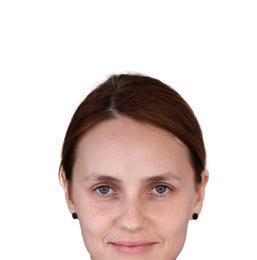



Christina Muratkina is a dynamic entrepreneur and the CEO of Onlyplay, a prominent figure in the gambling industry since 2011. Her journey began as a programmer, where she honed her skills and developed a deep understanding of the technical aspects of the field. Despite her digital interests, Christina also enjoys the thrill of traditional gambling, particularly in land-based casinos. With a blend of technical expertise, gaming passion, and a love for life's various pursuits, Christina Muratkina continues to make waves in both the digital and gambling realms.












RENATO ALMEIDA Director FBM
Renato Almeida grew up in São Paulo, Brazil and, after finishing his academic path, pursued an internship at NEC Brasil. He continued his professional journey at a bank automation company. In 1995, he joined Fabrica Brasileira de Máquinas Automáticas (FABAMA) as an Electronics Technician and worked at FABAMA for several years. After this experience, it was time to embrace a challenge at FBM® as a Technical Director, being later promoted to Vice President. Today, he is part of the Board of Directors and takes part in decisive matters that define the future of FBM® as a global gaming brand.









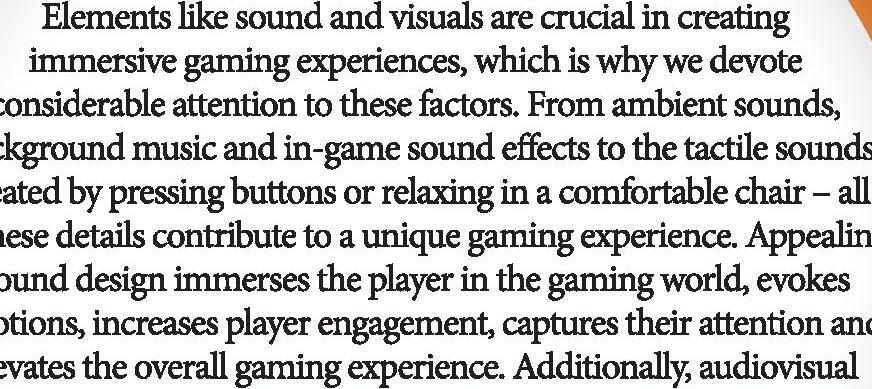



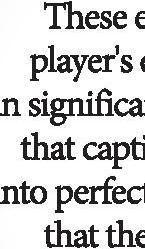









HOW IMPORTANT ARE ELEMENTS SUCH AS SOUND AND VISUALS WHEN DESIGNING SLOTS






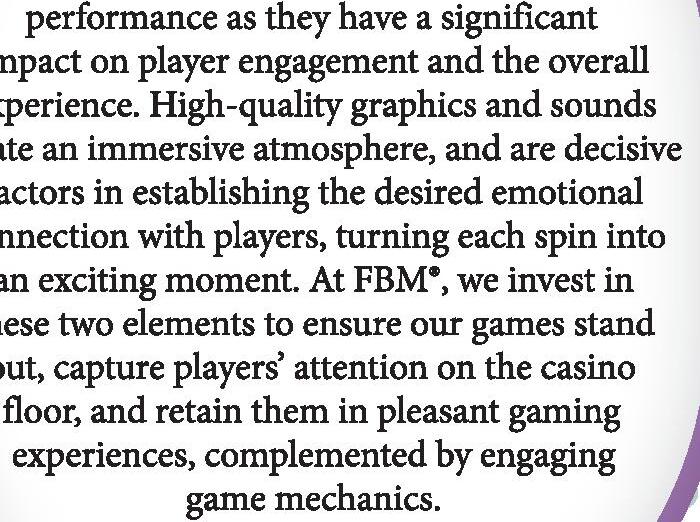











































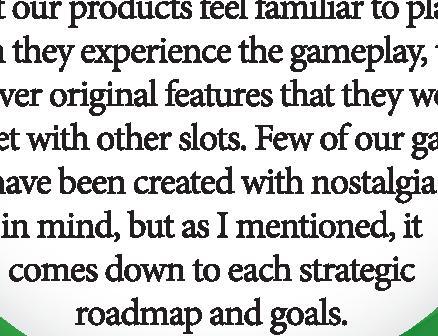










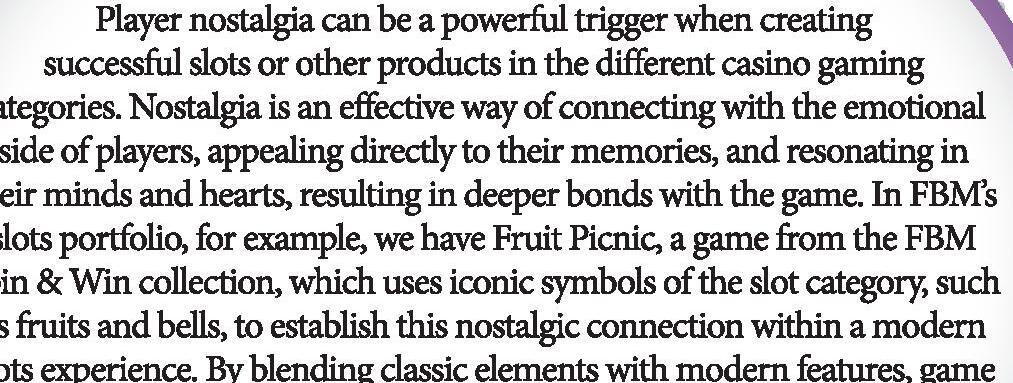



































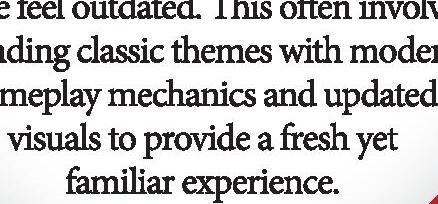








EDUCATION OCTOBER 7–10, 2024
EXPO HALL OCTOBER 8–10, 2024
THE VENETIAN EXPO, LAS VEGAS
G2E is the catalyst for gaming - fostering innovation and driving growth by convening the global industry to define tomorrow. CONVENING GAMING

REGISTER TODAY AT G2E2024.COM/GAMBLINGINSIDER
















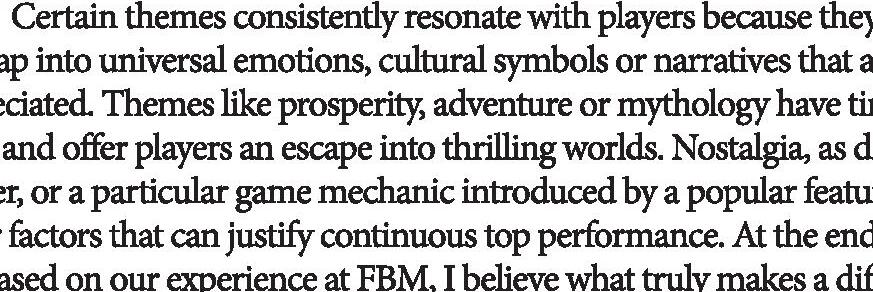
























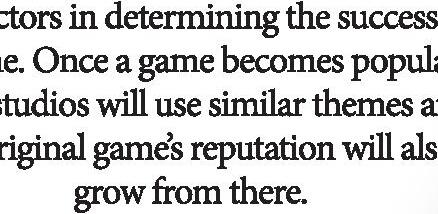






WHY























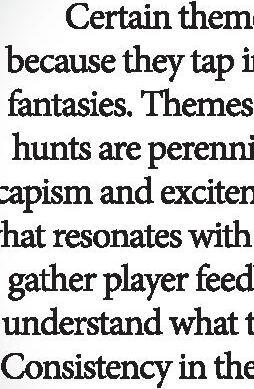




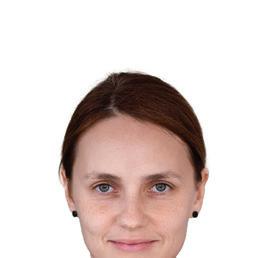









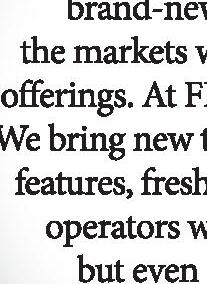








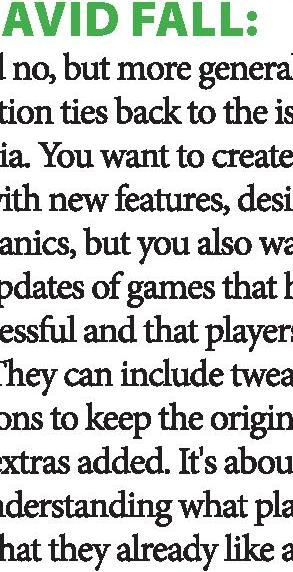











IS IT ESSENTIAL TO ALWAYS CREATE NEW-TO-MARKET SLOT THEMES




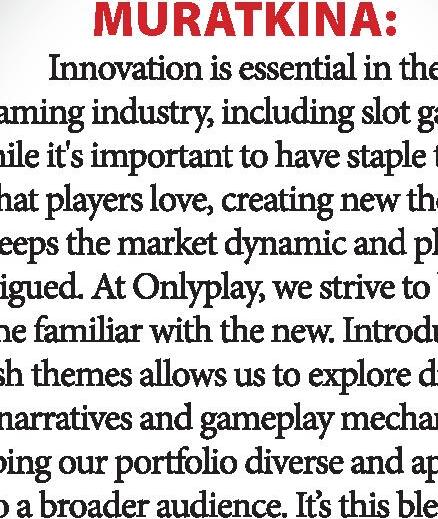
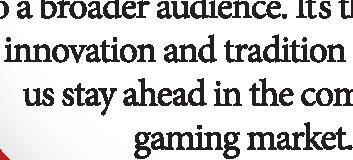













In every issue, Gambling Insider commissions guest columns and interviews with people at the heart of the gaming industry – to discover more about the challenges its leaders, pioneers and innovators face. These contributors form The Insiders



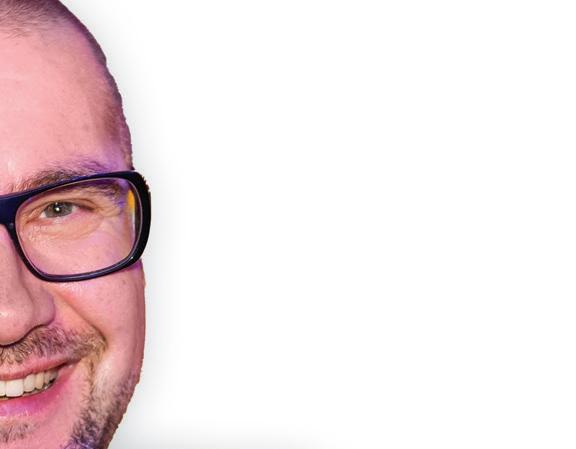

















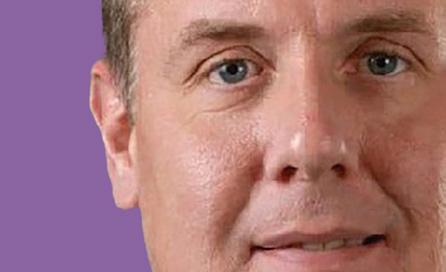













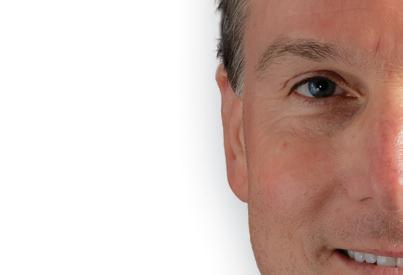



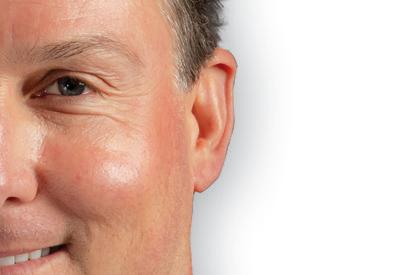




















































Novomatic AG VP Global Sales/VP Product Management Thomas Schmalzer discusses the company’s new products, as well as some of the latest industy trends
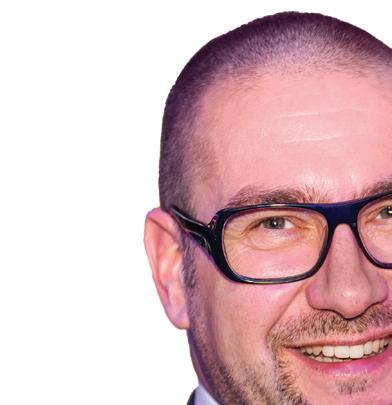







Could you tell us about some of your latest offerings on the market?
The latest innovations in our product lineup include both new hardware and sensational software. With our V.I.P. X series, we have established a new class of gaming devices in the ultra-premium segment in all sizes and screen configurations. These are the tools our customers need to boost their offering and deliver an unrivalled experience to their players. Operators provide a truly exceptional Very Important Player X-Perience on their floor – and their guests love how that feels. We have rolled out the V.I.P. X series, and we launched the newest addition to this high-end product line – the V.I.P. X Galaxy™ 2.65 – at ICE 2024. The customer feedback since then has been out of this world.
As regards the software, we have recently introduced linked progressive titles, which are already making a splash on gaming floors around the world, with the number-one favourite being the XTENSION LINK™. The latest release in the family is the XTENSION LINK™ Volume 2, a progressive jackpot that provides five new titles, along with thrilling Novomatic classics such as Golden Book of Ra™ and Golden Charming Lady™ in their own XL versions. Another gaming
highlight is the linked progressive trio CASH FLOOD™ Link: Secrets of Wealth™, Magic Cleopatra™ and Roll on Fire™. All of them boast an exciting base game, an additional cash prize matrix and the chance to win a reel FILL’N’WIN BONUS with progressive prizes. We also reinvented our electronic table game (ETG) line-up with the introduction of the NOVO UNITY™ Pro. From server-based ETGs and slot gaming solutions to the integration into the comprehensive NOVO LINE™ system, this offers an updated user interface coupled with new, state-of-the-art functionalities, including Simultaneous Betting and Roulette Side-Bets such as Going for Gold™ and Lucky Lady’s Roulette.
What was the thinking behind the V.I.P. X series launched earlier this year?
Especially at ICE London this year, we challenged operators to think big. The newly launched V.I.P. X series is aimed at discerning gaming guests and casino operators who want to give their visitors a high-quality gaming experience. The impressive V.I.P. X Royal™ 1.85, the V.I.P. X Dream™ 3.43 and the V.I.P. X Lounge™ 2.32 deliver exceptional luxury and exquisite V.I.P. comfort – extra high and wide gaming screens, a peerless sound system and plush seating. Novomatic also made a real statement for galactic gameplay at this year’s ICE: the world premiere of the exclusive V.I.P. Galaxy™ 2.65 took the gaming experience to a new level of immersion. This ultimate deluxe lounge chair features two 65-inch gaming screens and adjustable, luxurious seating comfort.
What trends have you noted in the slots industry recently?
While the industry is constantly evolving, there are certain ongoing trends we are currently tracking. The key development in games over recent years is multiple features that can be triggered within games. Adding classic free games to Lock & Spin, as well as combining other feature types such as mirror wilds or expanding reels into the same game, creates
more excitement for players. Our portfolio includes a variety of titles like this. Among them are our top-performing game mixes such as XTENSION LINK™ and GOLDEN LINK™. On top of that, we have some other exciting new products in the pipeline that will respond to these trends – stay tuned!
How much focus will Novomatic be giving to the growing online gaming sector in the coming months?
As a global player, Novomatic needs to focus on all its markets and segments as well as on international trends and developments. We are proud of our continuous innovation and will carry on supplying our customers with state-of-the-art solutions for their land-based gaming offerings, from slot machines to casino management systems, cash-handling solutions and sports betting equipment. The area of online, mobile and social gaming activities in particular has also been booming for several years. We will therefore continue to focus on online activities too. In this context, Greentube – Novomatic’s Digital Gaming and Entertainment Division – has successfully expanded its international portfolio in the area of game development as well as system and platform technology through several strategic acquisitions. Our research and current developments show that online and land-based offerings complement each other superbly and address a variety of different player segments. We will continue expanding our fully integrated solutions from gaming machines, casino management systems and single wallet solutions to online gaming products as this will be key in the future. This 360-degree approach cements our position as an innovation leader and enables us to react quickly to future markets and operator demands. The strong connection between our gaming technology segment and our gaming operations is a clear strategic advantage for Novomatic – which we leverage to optimise our product portfolio, tailored to customer needs.
Head of Business Development at DS Virtual Gaming, Araksi Sargsyan, talks through the provider’s offerings and the latest trends in the virtual gaming industry
Can you tell us about some of DS Virtual’s latest game offerings?
It is no secret that virtual gaming predominantly focuses on land-based operations, with online activities constituting only a small fraction of total sales. DS Virtual Gaming has set out to balance this equation, although we acknowledge that achieving perfect parity between the two segments is nearly impossible. We initiated this effort by introducing an online platform for placing bets for betting shops, providing players with greater freedom and flexibility in their gaming choices and actions. Now, players can independently wager on any game from the DS Virtual Gaming portfolio and view the live transmission instantly. The transmission quality remains unchanged, ensuring players derive the same level of enjoyment as with traditional land-based methods. The key distinction lies in our independence from televisions and the speed or skill of cashiers; players now place their bets via computers and mobile phones. We view this as the initial step towards empowering players. After the betting shops close, players seamlessly transition back to their favourite games on the website, continuing to enjoy the same quality and benefits offered at shops.
How in-depth are DS Virtual’s statistics for its games, such as racing form, and why is it important?
Our entire industry revolves around statistics. No odds are presented without a statistical basis. From this perspective, virtual games are akin to sports betting, albeit with the added influence of random number generators. Fundamentally, our product’s popularity stems from our commitment to advanced technologies, positioning DS Virtual Gaming as one of the most technically proficient providers in the industry. Additionally, our remarkably high hit rate percentage ensures our games appeal to all types of players – whether they prefer favourites or underdogs –contributing to their widespread popularity. After all, why would anyone play a game where they always lose?
Have you noticed a shift between
the appeal of virtual sports betting shops and online operators?
I am always forthright with operators who believe that certain virtual games can significantly boost their sales, regardless of having shops. This is a highly contradictory and dubious claim. Personally, we have markets where an online operator, even without a substantial land-based operation, has achieved tremendous success with virtual games. However, this success hinges on our games being available across all the betting shops in the market, which typically operate until 10pm. This situation depends greatly on the peculiarities of the market, which are uncommon in the industry. Typically, online virtual games thrive in conjunction with landbased operations.
Let me provide an example: we collaborate with various platforms, many of which show little interest in physical locations because their providers primarily focus on online and mobile versions (especially mobile), including mobile applications. Thus, even the largest platforms often fail to match the sales of a single operator in a country with a population of three million, which instead equally develops both online and land-based operations.
What impact do major sporting events have on the virtual games segment, such as the recent UEFA European Championships?
We ourselves were interested in how Euro 2024 and Copa America would specifically impact our segment. Theoretically, we could expect both increased sales and a shift in focus from virtual games to these major sporting events. It is noteworthy that, during the first week of the Euro, our sales increased by 7%, indicating that excitement around such sporting events influence virtual games. However, players seldom switch their attention from one segment to another. Each segment within our industry has its own unique appeal that attracts distinct audiences. Sportsbook providers confirm that even dedicated tennis enthusiasts seldom wager on football or basketball, let alone engage in virtual games. While overlaps exist, our audiences generally diverge significantly.

What opportunities does the LatAm market present for virtual games?
The Latin American market represents a completely distinct world, fundamentally differing from its European and African counterparts. Moreover, each country on the continent operates as a separate entity. Nonetheless, all markets share common aspirations: stability, advanced technology, competitive products and excellent service. Over the next two months, our plan is to establish an office in Lima and create a dedicated logistics unit to oversee the entire market. Let’s face it: proficiency in Spanish alone does not ensure complete integration for European companies. Latin America must be managed by its own people.
Finally, what aims does DS Virtual Gaming have for the months ahead?
We will be fully focused on offering our partners something that no other virtual game provider can currently offer: a seamless integration of land-based and online services, the ability to develop any solution within a maximum of three weeks and exclusive video content for which we hold sole rights.
SportGenerate CEO Simon Westbury rejoins Gambling Insider to discuss upcoming innovations, and explain why people are at the heart of everything the supplier does





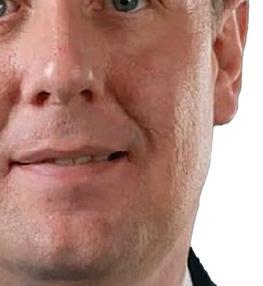







Can you talk us through what you believe makes your content unique?
How do products such as your table tennis offerings set you apart?
People – or in other words – the team, is what makes our content unique. The vision of the production team combined with a young, dynamic design team and the organisational capabilities of the product delivery team bring the magic to life. Without people, there is no vision, no product and no differentiation. I would say SportGenerate is still in startup phase, but the drive and dynamism of the team is creating unique content. A prime example of this is our fully managed esports API solution with the thematic personalised design, focused on the esports generation, something I’m too old to fully comprehend... so I have to rely on the team!
In terms of table tennis, this is a product that has undergone a lot of TLC over the last 18 months and we are very excited to launch our two new studios this quarter. Not only are the studios state-of-the-art, they are truly magnificent; we are launching our AR overlay and have also increased the use of AI in the
product. This allows for a truly engaging experience that introduces microbetting and increased betting opportunities due to the quick bets that can be placed around which part of the table the ball will land. In turns, this allows the possibility of a Table Tennis Roulette product where the segments of the table mirror a roulette table.
Complimentary content seems to be part of the product strategy at SportGenerate – what can you tell us about where this idea came from, and how you hope it will develop in the future? It was an idea to help deliver products to the market quickly, to try and gain traction and brand awareness. We started with our in-house Rocket Masters Cup and Cyber Masters Cup. While we used these products for revenue generation, we started product development based on our Esports Fully Managed API and Oddsfeed product. All these products are API-based so they are easy to integrate. Esports API is something we are finalising the integration of thirdparty widgets for at the moment. The oddsfeed product also has the ability to power any B2C business in terms of data.
How do you feel that the approach to user experience has changed at SportGenerate over the last two years?
“Without people, there is no vision, no product and no differentiation”
Honestly, it hasn’t. From day one, users have been at the centre of everything we do. Delivering to the end user remains our primary focus.
With new technologies such as AI, hyper-personalisation, adaptive interfaces and augmented reality having a big impact on the gaming landscape, what is the most exciting innovation SportGenerate is working on for UI & UX right now? We are focusing on adaptive interface, augmented reality and AI, primarily for our Rocket Masters Cup product. This will enable a highly immersive product for the end user with many different features, not simply bet types. We are going to add granular accuracy through AI for ball speeds and predicting where the ball will go next. These changes will come through the UI with an augmented reality overlay creating a hyper modern table tennis environment.
What can we expect to see from SportGenerate in the next year with regard to commercial and product development? Commercial, the drive is the same as always: revenue, revenue and then more revenue. We have ambitious plans and to meet them we need to drive revenue to further invest in product R&D. We have also taken some time to reflect, we need to really shout from the rooftops about what we are doing to increase brand awareness in the industry. We are looking to mature, from start-up to SME, focusing on digital marketing, the development of a new website and really increasing our presence on the road. Some companies seem to send one man and their dog to every tradeshow and we need to be slightly more objective – but we need to do more to grow the brand. Regarding product development, we have all the foundations in place and the interior is prepared – we simply need to make everything look right to really create the bespoke boutique products that have always been our aim.
Interblock Global CEO John Connelly discusses the shift towards beta testing, and the pros and cons of public vs private in today's market








and the number of companies that are listed today versus a decade ago, I don’t know the exact statistics, but it’s dramatically less. I don’t think it’s just the gaming sector, there are pros and cons of being public versus private. Being public for certain companies is definitely the right structure and process to move forward, and bring shareholder value. In other cases, being private obviously gives you other forms of flexibility that could be critical to your success. Each company has to assess which is best for them. One size doesn’t fit all.
When did you see a shift in Interblock development where beta testing became an integral part of that process?
new structure, the benefits long term are definitely worthwhile.
In terms of accessibility, how big of a priority is finding a way to make a potential customer, who might be not as experienced with the game, feel comfortable?


How has the launch of the new Shoot to Win game gone?
It’s been going really well. The mechanical and electrical components that we work together on between Aruze (Interblock bought Aruze's table game assets) and Interblock allow the game to go dramatically faster without impacting the player. The handle has been going up, the product looks very well-tailored for a particular demographic and playerbase with new technology, new lights, quality graphics and new side bets. It’s done very well.
As a private company, I was wondering what your thoughts are regarding certain gaming firms becoming private recently, such as AGS and Endeavor? If you look overall at the stock exchange
Well, I think I really felt it was necessary financially when I started to have units being launched and seeing the performance of those units in the field not being adequate enough to sustain their footprint. Remember, we had a lot of units back around 2016 and 2017 that were entering the marketplace and then being pulled back because of performance.
It was clear that the initial version of our products and the performance was not what we anticipated. We quickly learned that we needed to find data and refine our products, in some cases four or five times we would find ourselves modifying something, until performance continues to grow.
Therefore, rather than launching products multiple times in a normal manner, we said we need a beta test to really understand our innovation and the players’ reactions. In 2018 and 2019, just before Covid-19, we began that process within our company and it’s a commitment because the cost associated with a greater time to market is larger. We think if you’re able to transition the company from the historical method of launching products to this
As we create our product roadmap each year, we’re creating various types of products for various types of players. Some products are designed for entry-level players to get them accustomed to playing electronic table games or forms of table game technology. Then you obviously have extensions of current products where you have players that are very familiar with the particular type of electronic technology. We’re evolving those because we don’t want it to be stagnant. We continue to evolve as the players do, driving technology and innovation forward to remain competitive. I don’t think it’s any one dynamic or one singular approach, I think it’s a multitude of initiatives within the product roadmap to attract both new and existing players.
Finally, how has the integration of Aruze's table game assets gone since Interblock’s purchase of the division?
I think Aruze and Interblock formed some incredible horizontal benefits and synergies on a regional level. Vertically, we started to use the various forms of technology from these acquisitions to create more innovative forms of technology and our product portfolio has become deeper and stronger. We’re feeling that right now, heading into this year’s G2E. The breadth of our product portfolio is probably going to double within the next 12 months and a lot of it is because of M&A. We just reached that point of scalability where we can now innovate on multiple fronts simultaneously, because of the size of our infrastructure.
Head of Business Development at Amelco, Brandon Walker, speaks to Gambling Insider about the supplier's new iGaming solution, microbetting and much more


How important is a personalised experience in a sportsbook for players?
That’s a great question – for us, it’s all about giving players what they want. So, in short, yes –we see personalisation as very important. From a segmentation standpoint, it’s all about the ability to offer a customised look and feel that suits each player’s needs. After all, it’s essential to give the customer exactly what they want, when they want it.
Whether that’s a demand for NFL, soccer or the NHL, we can tailor the front-end to deliver a personalised experience to that particular segment and specific player level. This plays a hugely important role with VIPs also, given how important they are to the operation. Of course, we all know how discerning VIP customers can be – so we need to make sure we’re giving
them exactly what they want with the least amount of navigation.
Could you tell us about the new iGaming solution Amelco launched recently?
This is something we’re really excited about; it’s been years in the making! It’s an incredibly important element of our platform, and we take our mission to be the only true end-toend supplier on the market very seriously.
Looking at the product, it’s taken plenty of time, effort and investment to make it the best iGaming solution out there. Of course, looking at the US market at the moment, only a handful of states are live. We’re going to see a real gold rush soon as more states regulate, and we need to make sure we’ve got the best product on the market to ensure our partners can rapidly gain market share. That’s before we even talk about Ontario, where GGR for casino now takes up about 70% of the market. To say it’s essential to stand out from the crowd with a superior product would be an understatement.
So, how do we do that? Just like with the personalisation we’ve already discussed – it’s all about the look and feel. It’s our core goal to give our partners the best-of-breed product, and AI is of course key to this – as well as a major focus on player segmentation to ensure we’re giving them exactly what they’re looking for. Twinned in with that is our in-house bonus engine, developed natively by some of our best developer teams. Again – it all boils down to acquisition, engagement and retention, and with a combination of AI-focused delivery and top-tier bonusing, I think we’ve got all the tools to achieve that perfectly.
Amelco has continued to expand in the US in recent months, but where else is the company looking to enter next? That’s another great question – the US is where we’re really making our mark right now, but of course, we’re also expanding our horizons elsewhere.
Brazil has been a major part of 2023’s headlines, and we’re making sure to evaluate the opportunities available in that market and beyond. Peru, especially, I believe is going to be a serious dark horse on the continent – it has a large population, incredibly rapid mobile adoption and a fast-growing middle class, giving every reason for it to compete with Colombia and Argentina for the no.2 spot.
Closer to home in our London HQ, we’ve got a big, renewed focus on the UK right now as we sign more and more major deals. We announced our latest partnership at the end of July with the UK Tote Group, which will see us deliver the iconic brand with a fresh new sportsbook, marking a first in fixed-odds sports betting for them. This will see us deliver just about every major sport available, including darts, rugby, soccer, tennis and golf. Further afield in Europe – the Balkans is likely the biggest growth opportunity in Europe right now, which again has a fast-growing middle class as well as huge land-based legacy. This makes the conditions perfect if you’re a platform and sportsbook supplier, like us, that has the right offering to persuade players to give online a try for the first time.
Finally, could you give us your thoughts on why microbetting has increased in popularity recently?
It’s quite simple. In the US, it’s hugely popular because US sports are so much more focused on individual players within teams and outcomes on certain scenarios – just think of what you see with the NFL and NBA, and you’ll understand why. So, whether that’s free shots, touchdowns, yards or anything in between – the nature of players over teams is always going to be so big. Can that spill into soccer in the future...? Certainly, it’s possible and we’re looking at ways to do that to ensure we’re at the forefront of player engagement. After all, we’re here to give our partners the best.

Habanero’s Head of Business Development, Arcangelo Lonoce, sits down with Gambling Insider to explain why adaptability is the cornerstone of the supplier’s recent success
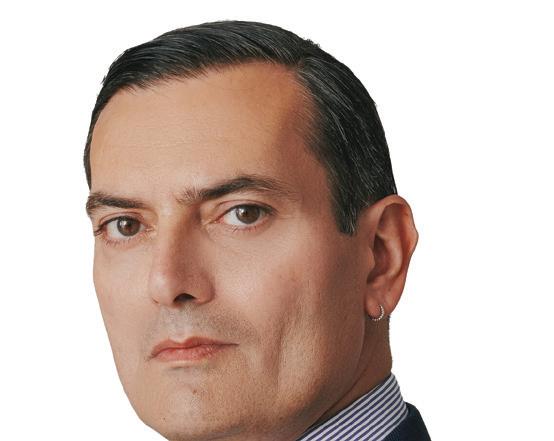





Looking forward, what new developments can you talk to us about for H2 2024?

You spoke to us in Malta towards the end of 2022. What changes has Habanero undergone since, and how do you reflect on the last 18 months? Since late 2022, Habanero has seen significant growth. Our monthly product output has doubled without compromising our core values and original mathematics. Habanero’s commercial success has been able to support the promotion of new content, and we’ve released some of our top-performing titles to date in this time. While we always look to create games that capture the essence of a classic slot experience, we’ve been more experimental in our themes and mechanics, to ensure that our titles continue delivering fresh and exciting experiences to players worldwide. Furthermore, the past 18 months have been marked by targeting new markets and partners. We have experienced exceptional results in Africa, especially South Africa and key markets across the Balkans, Baltics and the Iberian peninsula. A global rollout with Entain and collaborations with operators like Kaizen Gaming have also helped us expand our reach.
The second half of 2024 promises to be thrilling for Habanero. We’re set to launch in Greece very soon, as well as in the regulated Peruvian market that will continue our growth trajectory in the emerging Latin American territories. North America has also been on our radar for some time and 2024 will finally be the year we introduce our content to players. Our games, although thought and designed for the contemporary and future online markets, possess a mathematical core that resonate with the preferences of land-based players. We’ve successfully transitioned these demographics to the online realm in markets like Italy and South Africa, so we expect US players to really embrace our titles. In Q4 of this year, we’re set to launch with some exciting tier-one operators in New Jersey, Michigan and Pennsylvania alongside a major expansion in the US sweepstakes market.
When we met in Malta, you said it was important to balance innovation and tradition. Do you feel that has become more challenging with the acceleration of new technologies such as AI and hyper-personalisation?
Regulation is at the very core of our industry, and this encourages us to utilise emerging technologies for innovation. These are very interesting times for the industry, and at times we have to take a step back and define our primary objective as a business. Seeing challenges as opportunities, our goal at Habanero is to create sustainable and enjoyable entertainment in line with the current trends. As an industry we must strive to innovate responsibly, ensuring our games remain a positive and engaging form of entertainment. This balance is crucial for maintaining integrity and player trust, which is essential for the longevity and sustainability of iGaming.
What, in your opinion, is the most exciting new technology changing the iGaming landscape right now?
AI is generating significant buzz. There have been concerns about staying competitive with broader technological developments, especially with platforms like Spotify, Netflix or Amazon offering deeply personalised experiences. This trend toward personalisation is particularly intriguing with the shift from desktop to mobile, where user experiences are increasingly tailored. While creating a personalised player experience is challenging, the combination of big data technology, AI, and mobile advancements opens fantastic opportunities for all stakeholders and is transforming our landscape as we speak.
How does Habanero incorporate real-time personalisation technologies into its iGaming products?
While real-time personalisation is a hot topic, it is not directly applicable to our role as a supplier. We do not have direct access to the data needed for real-time personalisation. The nature of video slots, which rely on random number generation (RNG) and a sophisticated mathematical model, makes realtime personalisation particularly challenging. Our goal is to offer experiences that work well everywhere.
What are the biggest challenges iGaming companies have had to face in the industry over the last five years?
Without a doubt, regulation has been the biggest challenge. With stakeholders operating across multiple countries, adapting to varied regulatory environments is very complex. Data shows player behaviour can vary significantly between regions, and AI helps optimise strategies for these different territories. In today’s demanding and saturated environment, flexibility isn’t just an option – it’s essential. Additionally, AI plays a crucial role in promoting responsible gambling by identifying problematic behaviour early on, helping to ensure a safe and enjoyable gaming experience.
Betcore CEO Peter Korpusenko speaks exclusively to Gambling Insider about the group's key brands and the process of continental expansion
You debuted your umbrella brand Betcore in January this year – how do you reflect on its first six months?
The launch of our umbrella brand, Betcore, in January marked a significant leap forward. In the first six months, we’ve achieved some great results by focusing on developing a powerful and diverse lineup of original games in popular categories. Our portfolio now includes four verticals: TVBet, FastSport, El Casino, and Bet on Games. We’ve expanded our game range and implemented advanced technologies, enabling integration with leading operators worldwide. The industry’s response has been overwhelmingly positive, with partners praising the quality of our games, technical support and the ease of integrating all games through a single API.
Building on that, six months from now, where do you hope Betcore will be? In the next six months, we’re looking to expand our range of offerings and improve our existing products. Additionally, we are actively preparing for our participation in the SBC Summit, which will be held in a new location for us — Lisbon. One of the main highlights for our partners at the summit will be the updated game Spin2Wheels! We are confident the upcoming six months will be filled with new achievements, and successes for both our company and our partners.
One of the Betcore verticals, FastSport focuses mainly on quick games. How do you feel it offsets the other Betcore offerings and how are you hoping it will evolve in the next year?
FastSport occupies a unique niche among our offerings, focusing on quick amateur matches that last between 5 and 45 minutes. Despite the shorter duration, these matches retain the dynamism, odds, and excitement of traditional sports betting.
We see significant growth potential for FastSport in the coming year. To meet the growing demand, we plan to expand our range of fast games with new formats and mechanics. Additionally, we will enhance the user experience by incorporating advanced
technologies and optimising integration processes for our partners.
How has Betcore and, more specifically, FastSport specifically been making the most of this fabulous summer of sport so far?
With the arrival of summer, a season brimming with sporting events, especially during Euro 2024, FastSport is delivering outstanding results. Players are actively placing bets not only on major football matches but are increasingly engaging with our amateur sports games during the breaks between key matches. What truly sets FastSport apart is its independence from seasonality. Amateur sports games are held continuously, allowing our players to enjoy betting all year round. This gives us a significant advantage as we can offer our users a continuous stream of exciting content. Thus, FastSport is definitely helping us capitalise on this fantastic summer of sporting events.
It has been over 18 months since you launched your Bet on Good Foundation in support of Ukraine. How has the foundation progressed and what are your hopes for the future? Thank you for this question. Yes, we have come a long way. We started when the Ukrainian crisis was at its peak, with part of our team located there, giving us first-hand insight into the situation and the immense challenges faced by millions of Ukrainians. We saw no other option but to bring aid to those in need right here, right now. That’s how our Foundation was created.
"What truly sets FastSport apart is its independence from seasonality"
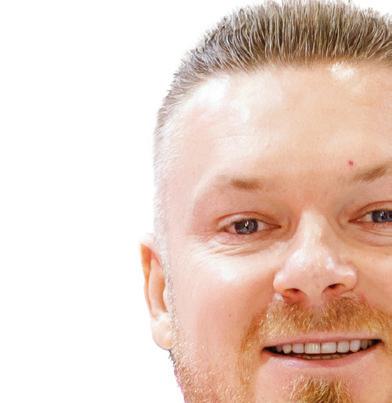


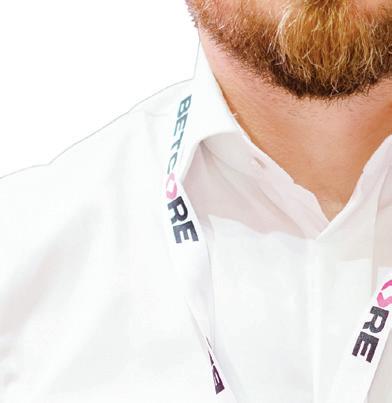





Now, we have expanded the scope of our work and strive to be helpful in any social crisis worldwide. We are open to providing assistance, collaborating with specialised organisations and, most importantly, promoting the importance of charity within the iGaming market.
From a broader perspective, TVBet is now operational across four continents. Do you have any plans for further expansion in the near future?
TVBet continues to actively expand its presence in the global market and we have been very happy to form new partnerships across all continents. Our live betting games hope to attract worldwide interest through their variety and engaging nature. We take pride in having our games available globally and strive to make them accessible in even more regions. Moreover, we have developed solutions that allow our games to be integrated even in areas with limited internet connectivity. This provides us with additional opportunities for expansion.

AAardvark Technologies www.adv.bet
T: +370 640 50001
E: sales@adv.bet
Aruze Gaming www.aruzegaming.com
T: +1 70 2361 3166
E: sales@aruze-gaming.com



BBBIN www.bb-in.com
E: service@mail.bb-in.com
bet365 www.bet365.com
T: +44 80 0028 8365
E: support-eng@customerservices365.com

Betradar www.betradar.com
T: +41 7 1517 7200
E: sales@betradar.com



CContinent 8 www.continent8.com
T: +44 16 2467 8888
E: sales@continent8.com

DDigitain LLC www.digitain.com
T: +3 74 6070 0400
E: info@digitain.com


EEveryMatrix www.everymatrix.com
T: +40 3 7104 2222
E: info@everymatrix.com

Evolution www.evolution.com
E: asrealasitgets@evolution.com

BtoBet www.btobet.com
E: sales@btobet.com
BetConstruct www.betconstruct.com
T: +44 20 3709 9010
E: sales@betconstruct.com

Evoplay evoplay.games
E: business@evoplay.games
Exacta Solutions www.exactasolutions.com
T: +356 2134 4249
E: info@exactasolutions.com



GFastTrack
T: +44 113 320 2245
E: letsgo@fasttrack-solutions.com

Interblock www.interblockgaming.com
E: info@interblockgaming.com

KGaming Arts www.gamingarts.com
T: +1 702 818 8943
Global Payments Gaming Solutions
www.globalpaymentsgaming.com
T: 702-822-7000
E: tiona.petty@globalpay.com

Greentube www.greentube.com
T: +43 1 90 171
E: o ce@greentube.com

HHabanero www.habanerosystems.com
E: sales@habanerosystems.com

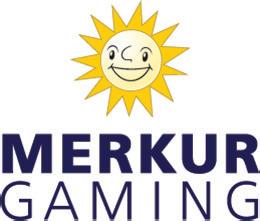
MLKambi www.kambi.com
T: +356 21315514
E: sales@kambi.com N
LeoVegas A liates
leovegasa liates.com
T: +356 27780258
E: a liate@leovegas.com
MERKUR GAMING
www.merkur-gaming.com
T: +49 5741 2736 9301
E: sales@merkur-gaming.com


IGT
www.igt.com
T: + 1 702 669 7777
E: info@igt.com
Neosurf
www.business.neosurf.com
T: +44 1483 3630 91
E: sales@neosurf.com

NOVOMATIC
www.novomatic.com
T: +43 2252 606 0
E: communications@novomatic.com


Pariplay www.pariplayltd.com
T: +3 56 2756 3725
E: info@pariplayltd.com
Pragmatic Play www.pragmaticplay.com
E: sales@pragmaticplay.com
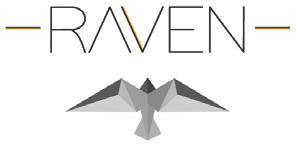

RRaven Track www.raventrack.com
T: 07799 898 175
E: adam@raventrack.com
Relax Gaming www.relax-gaming.com
E: sales@relax-gaming.com




SSuzo Happ www.na.suzohapp.com
T: 888-289-4277
E: sales@suzohapp.com
Soft2Bet www.soft2bet.com
E: office@soft2bet.com


T VTrustly Group AB www.trustly.com
E: sales@trustly.com
VallettaPay www.vallettapay.com
T: +44 151 947 0483
E: info@vallettapay.com

E: sales@worldmatch.eu W
World Match www.worldmatch.eu
T: +39 049 785 1905

Yggdrasil Gaming www.yggdrasilgaming.com
E: sales@yggdrasilgaming.com

Zitro www.zitrogames.com
T: +352 266 33
E: info@zitrogames.com


Football & soccer: New hopes for the new season
Data review: Euro 2024 & Copa America tournaments US sportsbooks: In defence of revenue over profi t?






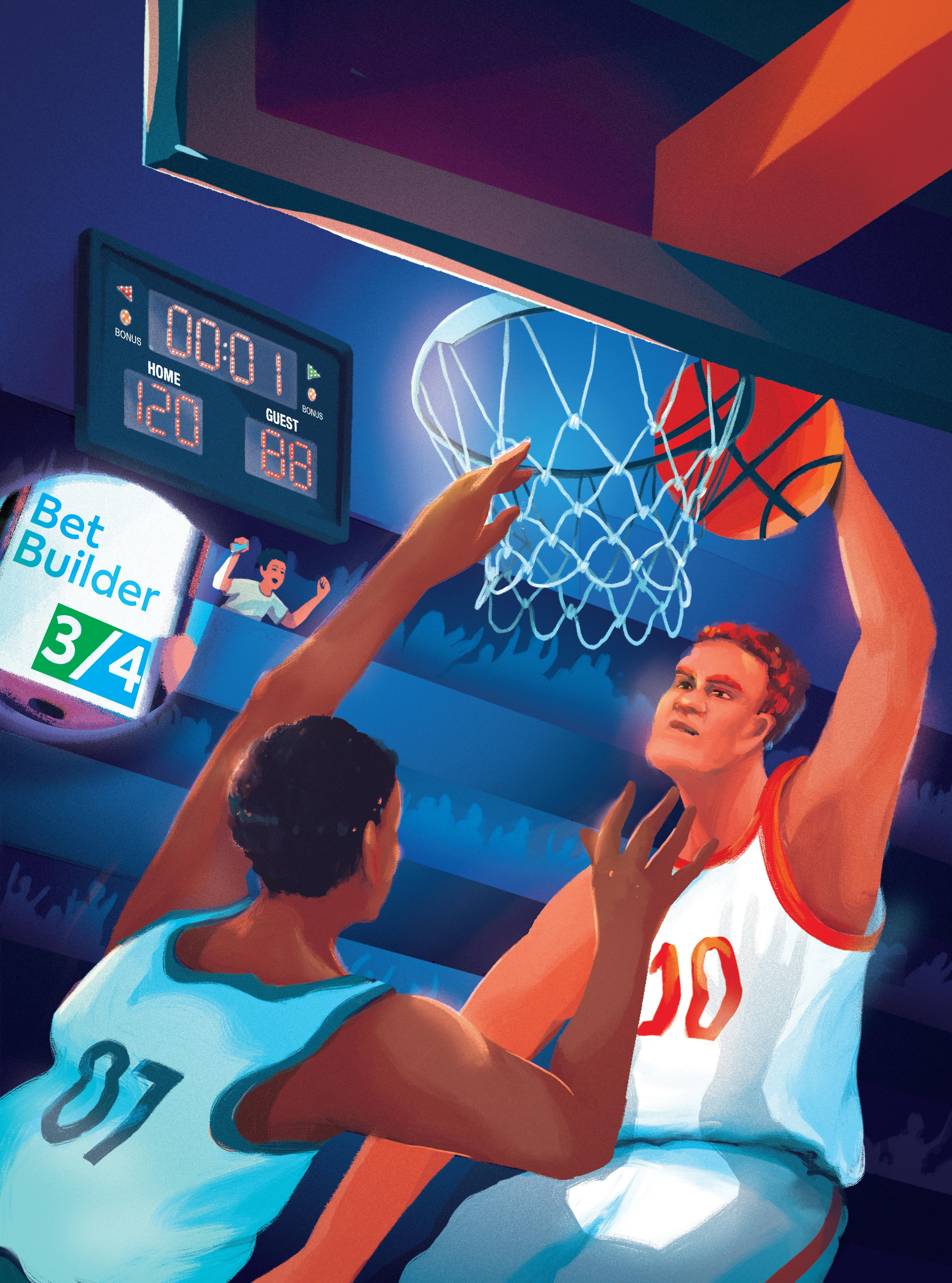
Same game. New ways of playing. Are same-game parlays and bet builders changing the industry?




Need to know the latest products on the market in gaming?
Gambling Insider has you covered
LT GAME: WELCOME TO MORI DICE, WHERE THE POWER OF PHASED BETTING TRANSFORMS SIC BO!
“Mori Dice” is a fun and exciting sic bo game that cleverly combines modern and ancient elements with simple, easy-tograsp graphics. The game blends classic sic bo gameplay with attractive animation, allowing players to roll the dice one by one. The entire game is filled with surprises and excitement. “Mori Dice” is a patented game developed by LT GAME that ensures a unique experience through fun gameplay and innovative design. Players can now try this one-of-a-kind, brand-new concept and experience the evolution of sic bo!
ROLL IN STAGES, BET IN PHASES!
Mori Dice consists of three individual betting stages. This unique format allows players to strategise and diversify their betting approach, keeps players engaged and on the edge of their seats throughout the entire round.
DYNAMIC ODDS, WIN WITH STRATEGY!
Betting odds are calculated based on the results
of each roll of the dice, which is more dynamic and strategic.
PRECISION BETTING!
ensuring that only viable and logical

Intelligently designed features work seamlessly to leverage the data from previous stage bets, ensuring that only viable and logical choices remain.
LT Game is a gaming equipment manufacturer based in Macau and is also the largest live multiple gaming supplier in the region. It has over a decade of experience in machine production, system design and game development, with products distributed across Asia and the Americas.
traditional games, it infuses more elements into the games. For players, we provide them a bespoke mode of gaming to boost engagement and the long-term appeal of the game – which means increased gameplay and turnover for operators!

"CLEVERLY
the broader environment and the
In recent years, amid changes in the broader environment and the emergence of new technologies, LT Game has been committed to exploring new markets and developing new products such as screen display systems, slot machines and card games. By integrating new technologies and innovative gameplay into


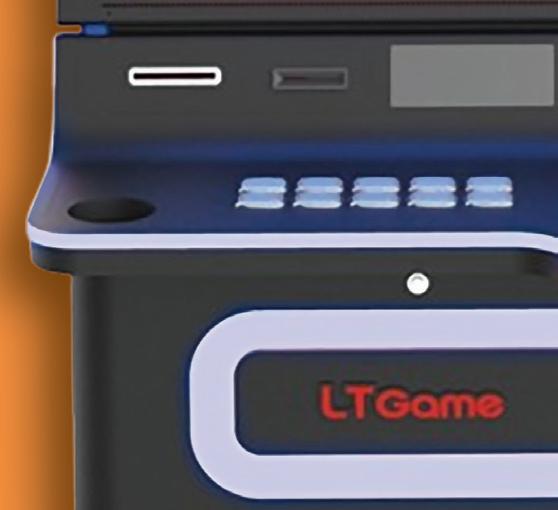






NOVOVISION is a visionary CMS with extensive features that cover all areas of the modern casino operation and beyond. Its system architecture is designed for high-volume transactions, ensuring maximum security, data integrity and regulatory compliance. The high system scalability qualifies it to perfectly suit any size of business and any cash system requirement (TITO, Cashless or biometrically supported). What’s more, its modular design allows for absolute flexibility and easy customisation.
The NOVOVISION core modules focus on improved operational efficiency and security, monitoring gaming activity and transactions in real-time and granting operators full administrative and operational control of their business. It also enables them to immediately identify and respond to any potential security threat.
NOVOVISION access focuses on secure and compliant customer registration and access processes. One highlight is the patented, state-of-the-art biometric solution that employs fingerprint or face recognition to ensure the distinct identification of registered guests along their customer journey. State-of-the-art, secure cash management and payment solutions that cater to all modern POS requirements are
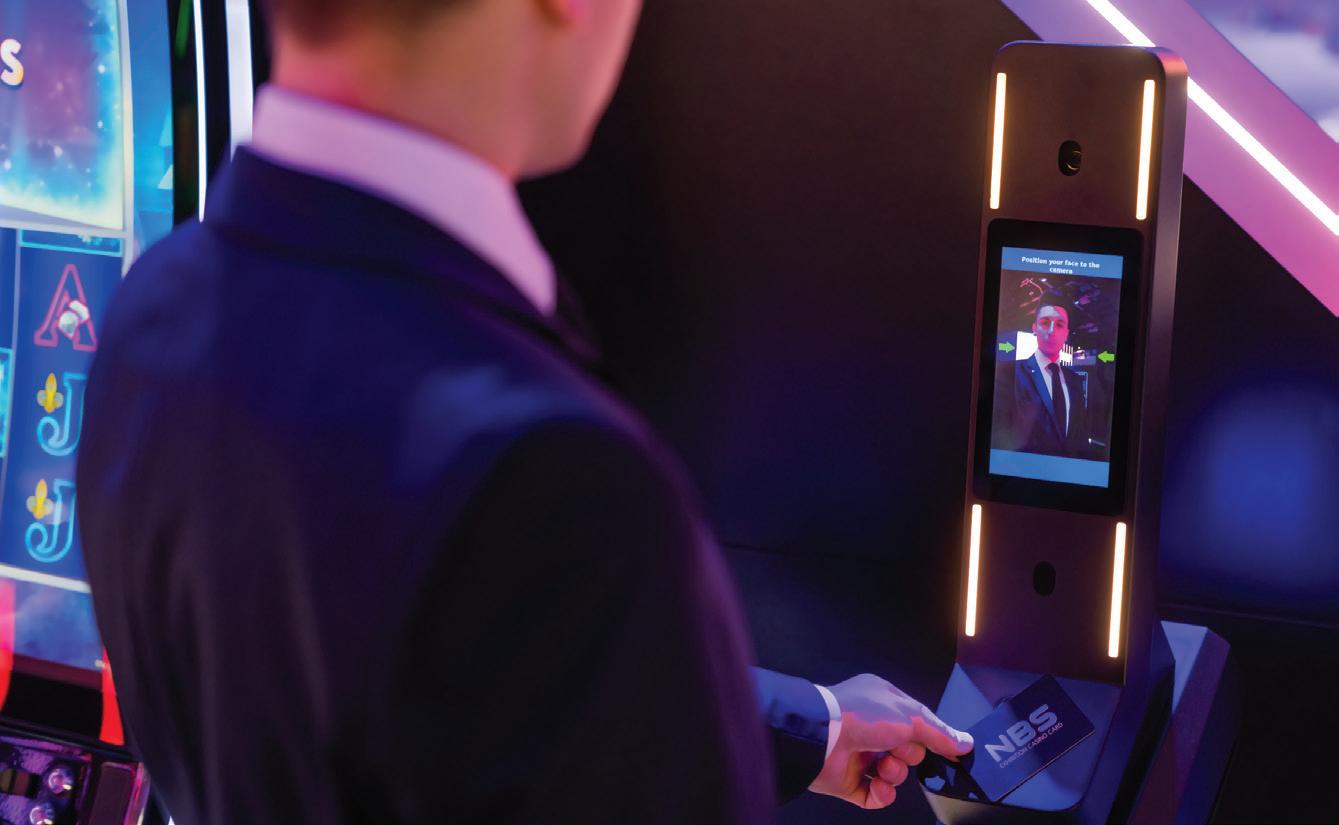
offered in the NOVOVISION pay portfolio of cash terminals and periphery, while the NOVOVISION wallet is an integrated single wallet solution for cash and promo credits. The system’s many extended functionalities for sophisticated loyalty and promotions comprised in NOVOVISION promo can have a significant impact on customer retention and revenue growth, with indepth analyses of player preferences and conclusions about specific promotional strategies. Via NOVOVISION smart,
operators can utilise a highly customised player engagement platform in a smart mobile player app.
A game-changing variety of tools for live table games support are covered by NOVOVISION live, such as live table accounting, biometric player recognition and live table loyalty. NOVOVISION tournament is the latest addition with detailed functionalities that make the organisation of live table tournaments easy like never before.

DISCOVER THE FUTURE OF GAMING WITH APEX’S CLOVER LINK PREMIUM AT G2E 2024
Las Vegas, the global epicentre of entertainment and innovation, is set to host the gaming industry‘s premier event: the Global Gaming Expo (G2E) 2024. This year, Apex is thrilled to unveil its latest masterpiece at Stand 1259, the muchanticipated Clover Link Premium
Apex Clover Link Premium is the latest addition to the celebrated Clover Link Gaming Platforms, known for their cuttingedge technology, captivating gameplay, and seamless integration. This new gaming platform is designed to captivate players with its dynamic features, immersive visuals and the potential for exhilarating wins. Clover Link Premium is set to offer more excitement, with enhanced multi-level jackpot opportunities and engaging bonus rounds

that keep players on the edge of their seats.
But Clover Link Premium is more than just a gaming platform – it‘s an experience. Apex has carefully crafted every element, from its vibrant graphics to its intuitive gameplay mechanics, ensuring it appeals to seasoned gamers and newcomers alike. The results are the games that entertain and drive increased player engagement and revenue for operators.
Apex has long been a leader in providing comprehensive gaming solutions. The company’s portfolio is extensive, ranging from state-of-the-art slot machines to elaborate jackpot islands, gaming platforms and table
games. Apex ‘s commitment to innovation is further demonstrated by their iDROP devices – which streamline cash management processes – and their advanced card shufflers, which enhance the efficiency and fairness of live gaming environments.
At G2E 2024, Apex will also showcase its full gaming solutions, reaffirming its position as a one-stop shop for casino operators looking to stay ahead of the curve. Visitors to Stand 1259 will have the opportunity to explore these offerings firsthand, with live demonstrations and expert consultations available throughout the event.
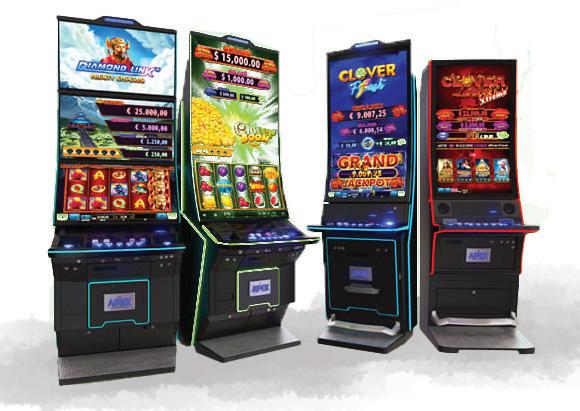



















FIRST THERE WERE ETGS NOW THERE’S AMUSE: THE NEXT EVOLUTION IN CASINO GAMING
Introducing Marble Run , one of the latest innovations in Interblock’s new “Amuse” product line, set to debut at G2E 2024 in Booth #1239.
For years, Interblock has built a reputation for innovation, and this year will be no exception as a new segment of the casino floor is established. This category is designed to attract an entirely new type of player and generate incremental revenue for casinos, bridging amusement games with an RNG style of wagering. Interblock will officially launch this portfolio of products at this year’s Vegas Show.
With its sleek and visually striking design, Marble Run is one of the first products offered by Interblock within the “Amuse” category, designed to attract a new type of player to casino floors worldwide. This game engages players with its fast-paced action and the suspense of each marble’s unpredictable journey.
Marble Run comes in two versatile configurations: a Standalone Compact type,




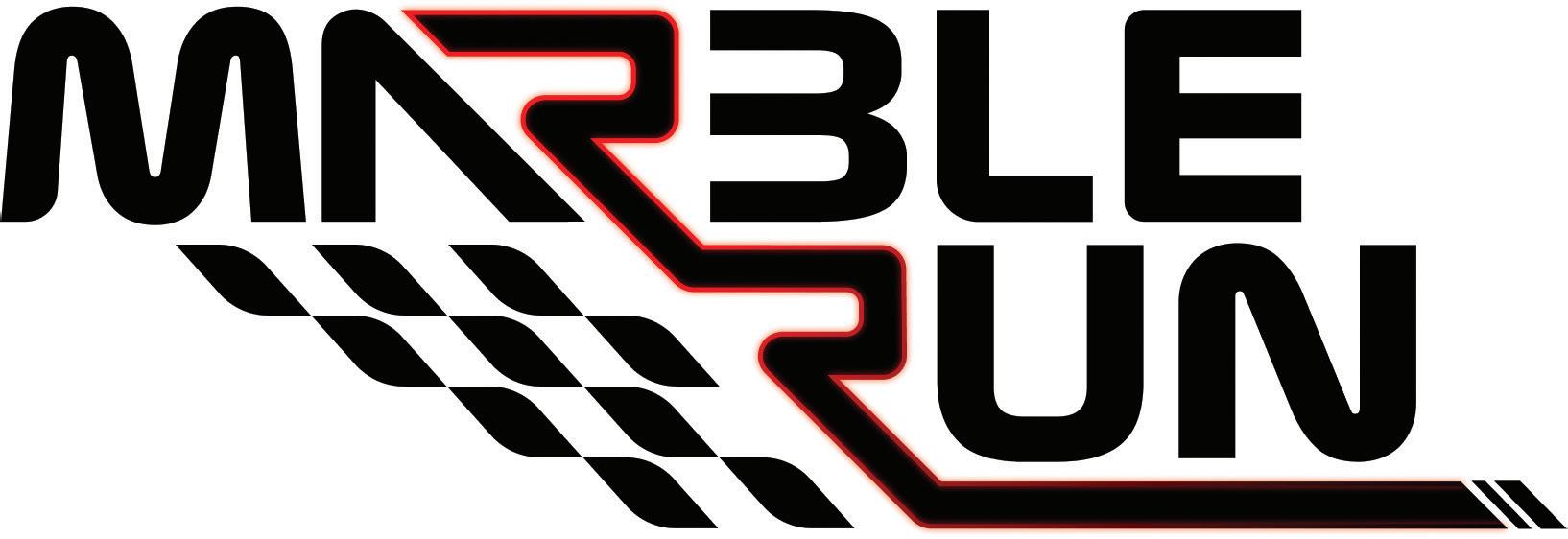
ideal for smaller gaming spaces, and a customisable Stadium type that can be tailored to fit different venues. These options make it easy to integrate Marble Run into any casino floor, offering a new form of entertainment that stands out from the usual games.






It’s designed to captivate a broad range of players with its interactive and engaging gameplay. Marble Run is set to redefine what casino entertainment can be, offering a unique experience that’s both thrilling and memorable.

As part of the Amuse line, Marble Run is all about delivering fun and excitement in a way that’s different from traditional table games.
about delivering fun and excitement in a way




Interblock invites industry professionals to join them at G2E 2024 in Booth #1239 to see this exciting new game in action and discover the future of casino gaming.

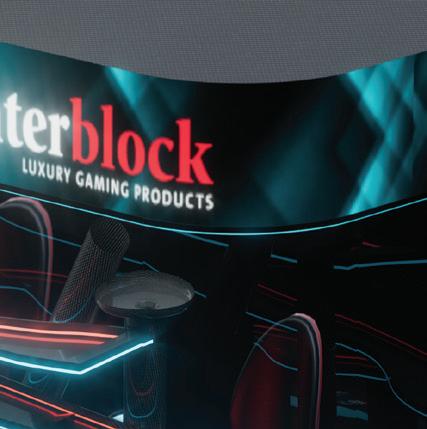


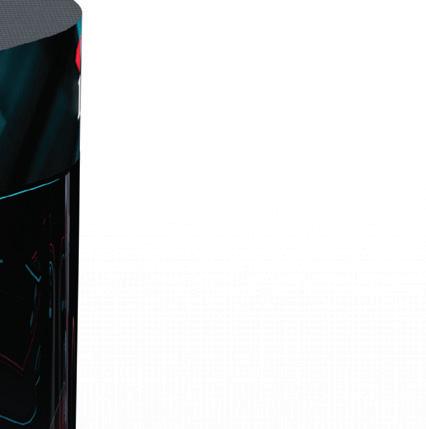



















































































































Data.Bet Head of Esports Bogdan Holovnov underscores the importance of diversi cation within esports betting
Do you believe diversification is the key to beating the seasonal lull often suffered by esports providers such as yourself?
Generally, it is common in the industry for providers to expand their offerings with a wide range of disciplines and betting options. This helps mitigate the effects of seasonality and ensures there are consistently available events for users to engage with. At Data.Bet, we offer a wide variety of games, both popular titles and more niche ones. By providing such a wide content coverage, we demystify the risks associated with seasonal lulls because our users have access to a broader spectrum of content. This approach ensures there is always something entertaining for our users, regardless of the season.
What kind of measures does Data.Bet have in place to ensure its offerings remain diverse during slower periods such as the summer and Christmas breaks?
We have a comprehensive approach, which employs several strategies. We cover tournaments from Tier 1 to Tier 4, ensuring a constant stream of matches and betting opportunities.To maximise each event’s potential and provide a highclass experience, you need to have a deep understanding of both top and regional gaming and betting specifics. Our team has extensive experience in implementing and managing new disciplines, and we are always the first to do this.
We also deliver an opportunity to bet on single matches from popular streamers, creating a more personalised and distinctive user experience. Data.Bet also offers a line for events generated through show matches and exhibition tournaments involving retired players, bloggers and media personalities. This not only keeps our content fresh but also attracts a wider audience.













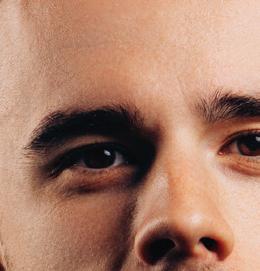














As the esports industry matures, what kind of technological innovations do you believe may help combat the issue of the off-season for operators moving forward?
It is really hard to predict since the lack of content due to seasonal breaks is a main issue not only for esports but for traditional sports as well. This happens simply because of the human factor: professional players need time to rest as well as re-staff and make transfers. In this concept, it is easier for esports to find a solution due to its full digitalisation. In the future, there will probably be more AI-generated content that covers the lull during breaks.
Additionally, the implementation of virtual sports and new markets based on existing tournaments can help maintain engagement during off-seasons. These will become more sophisticated as technology advances, offering even more ways to keep users entertained year-round.
Do you believe hyper-personalisation and deeper integration between iGaming and esports sectors could lead to more consistent seasonal metrics in the future?
Hyper-personalisation does not really help with this issue. It’s more about engagement and retention. This can be done by customised notifications about upcoming matches or new betting options based on a user’s past preferences.












Deeper integration, on the other hand, is a great opportunity not only to enforce the bridge between traditional betting and esports but to increase the number of events. In recent years, iGaming has also become more common in sponsoring esports teams and joint tournaments that draw audiences from both sectors. These collaborations not only increase brand visibility but also provide unique opportunities to engage with the esports community in new ways and create more content for bettors.
What kind of specific innovation can we expect to see from Data.Bet in this and other related areas over the next 12 months?
We are constantly improving our mathematical models to provide even more sports and offer a broader and higher-quality line. Now, our team is exploring further integration of AI to generate new and engaging content. We are going to enhance our coverage of both esports and gaming in general. As for other areas, Data. Bet is continuously launching new features and product updates for our clients to provide an unparalleled user experience and transform their pages into all-in-one platforms. Recently, we released Scoreboard widgets, which will soon be supplemented with Pitch Tracker. In a few months, you can expect a feature that redefines betting opportunities for more proficient players. So, stay tuned!





















































































































CATEGORY SPONSORS




























































































































































































































